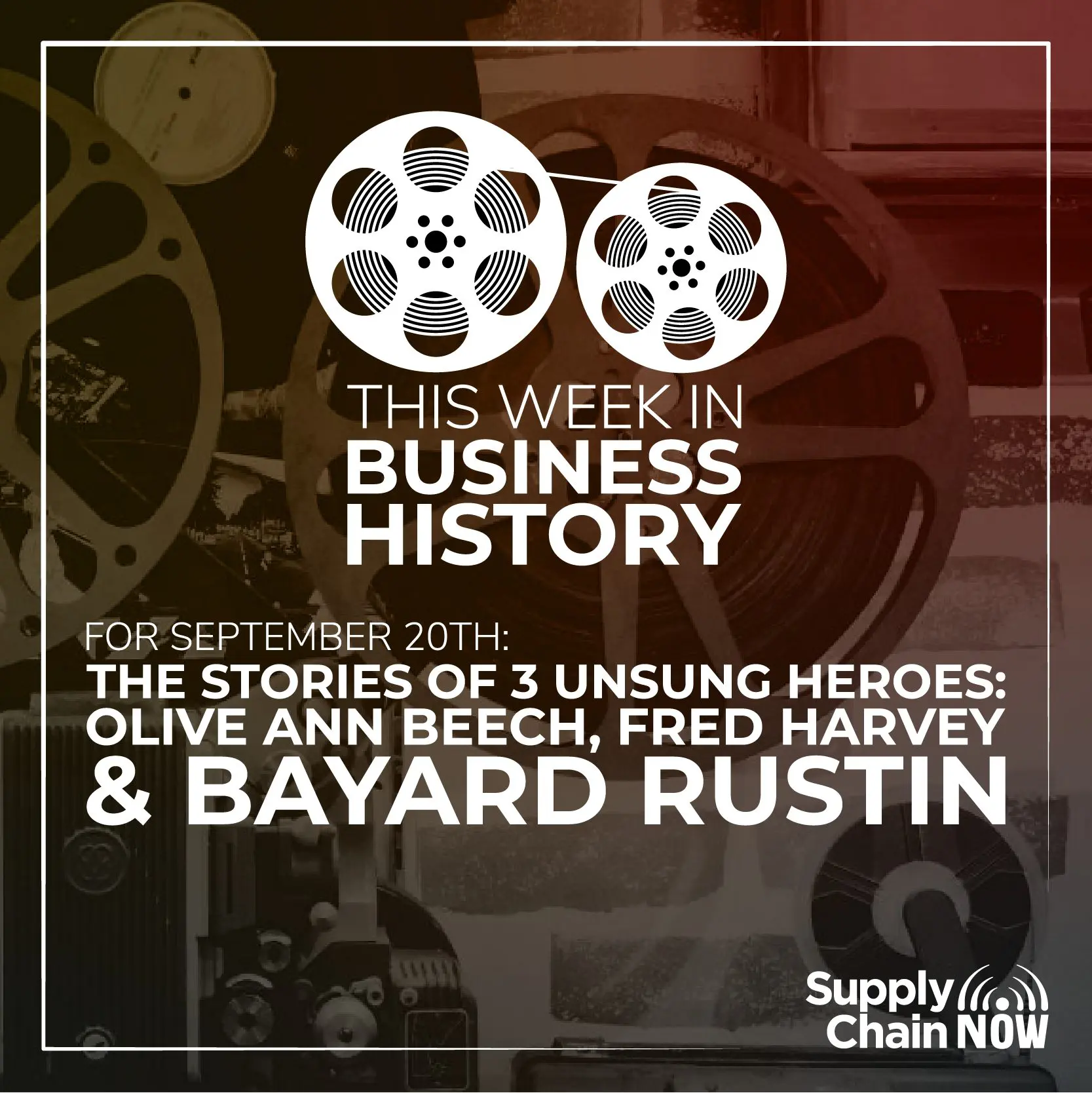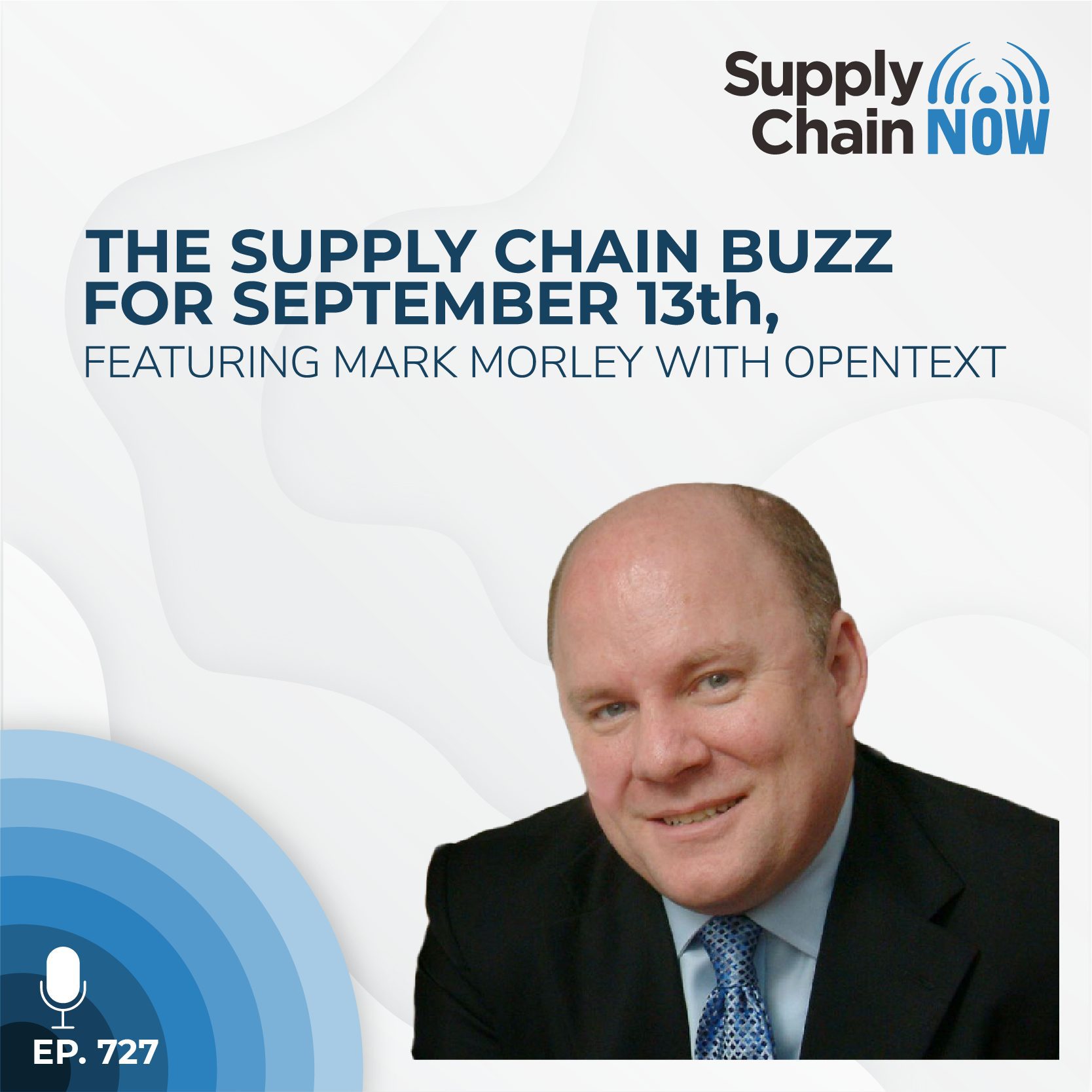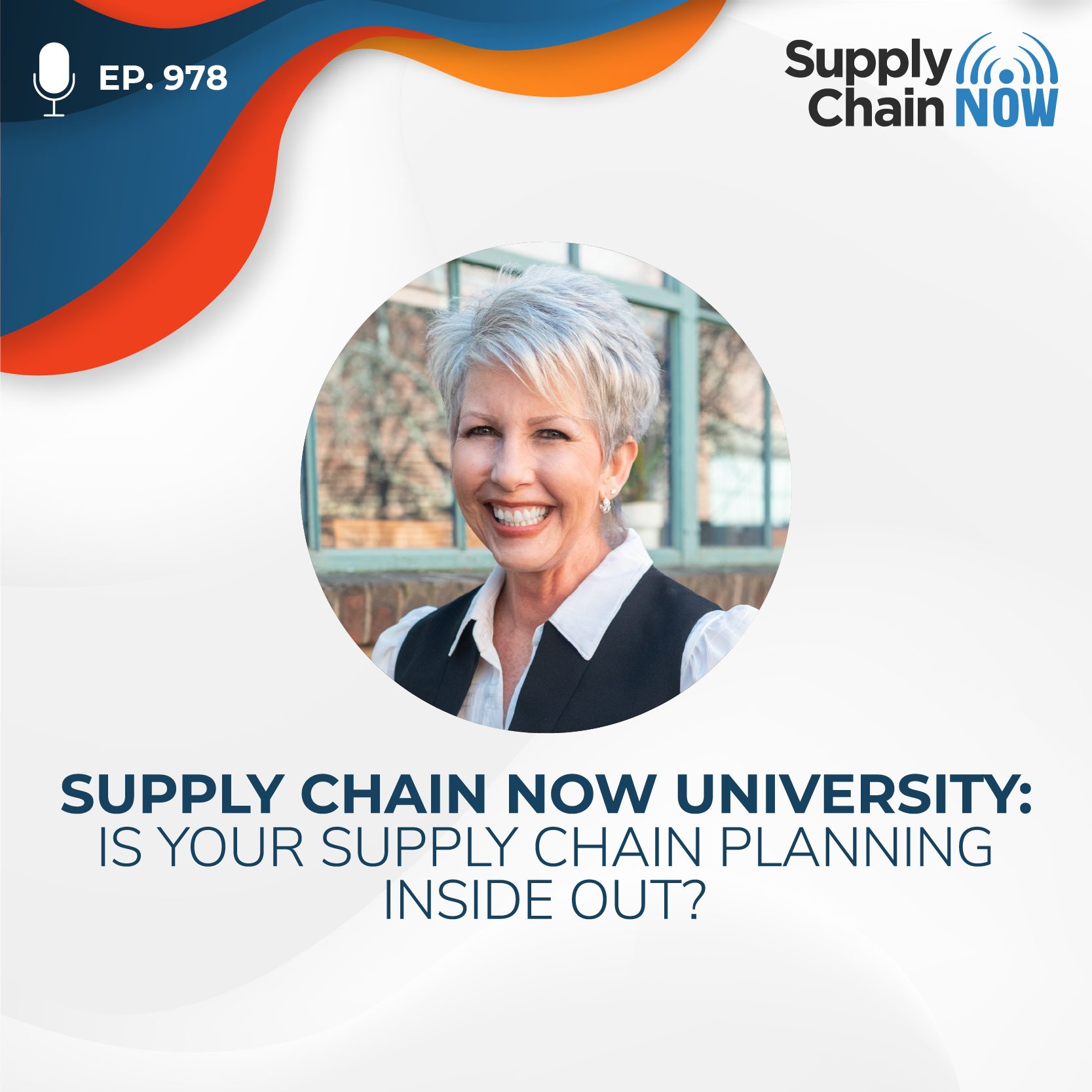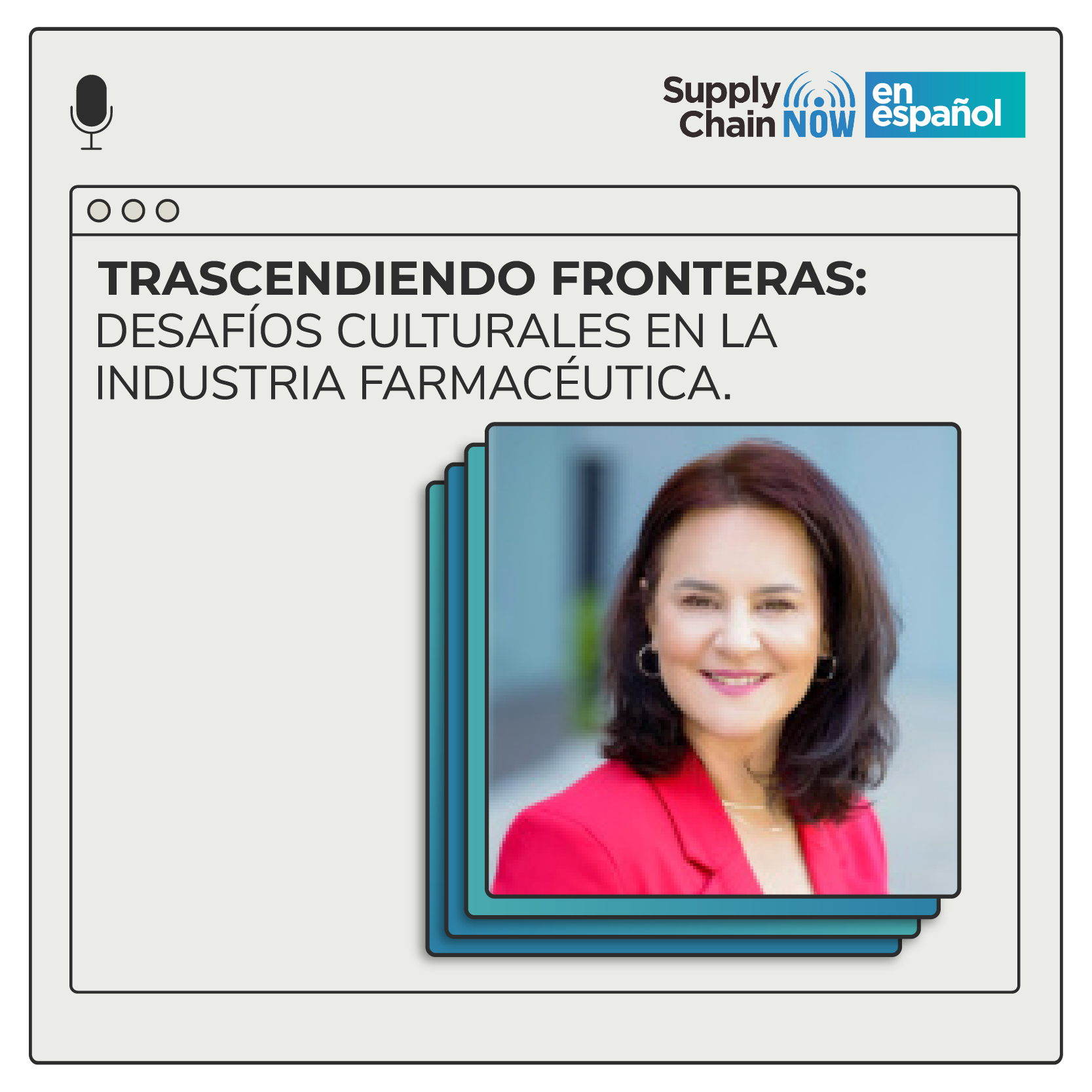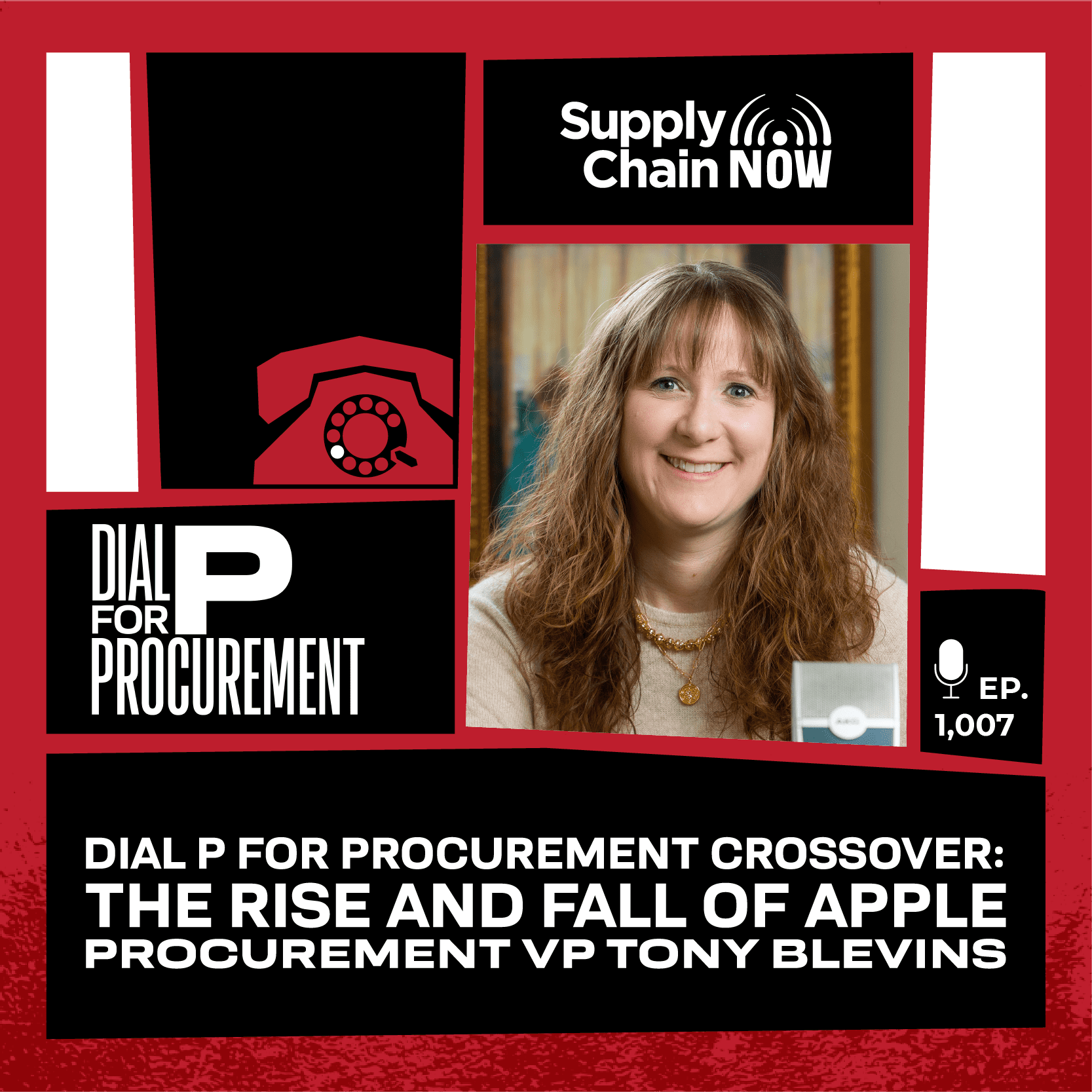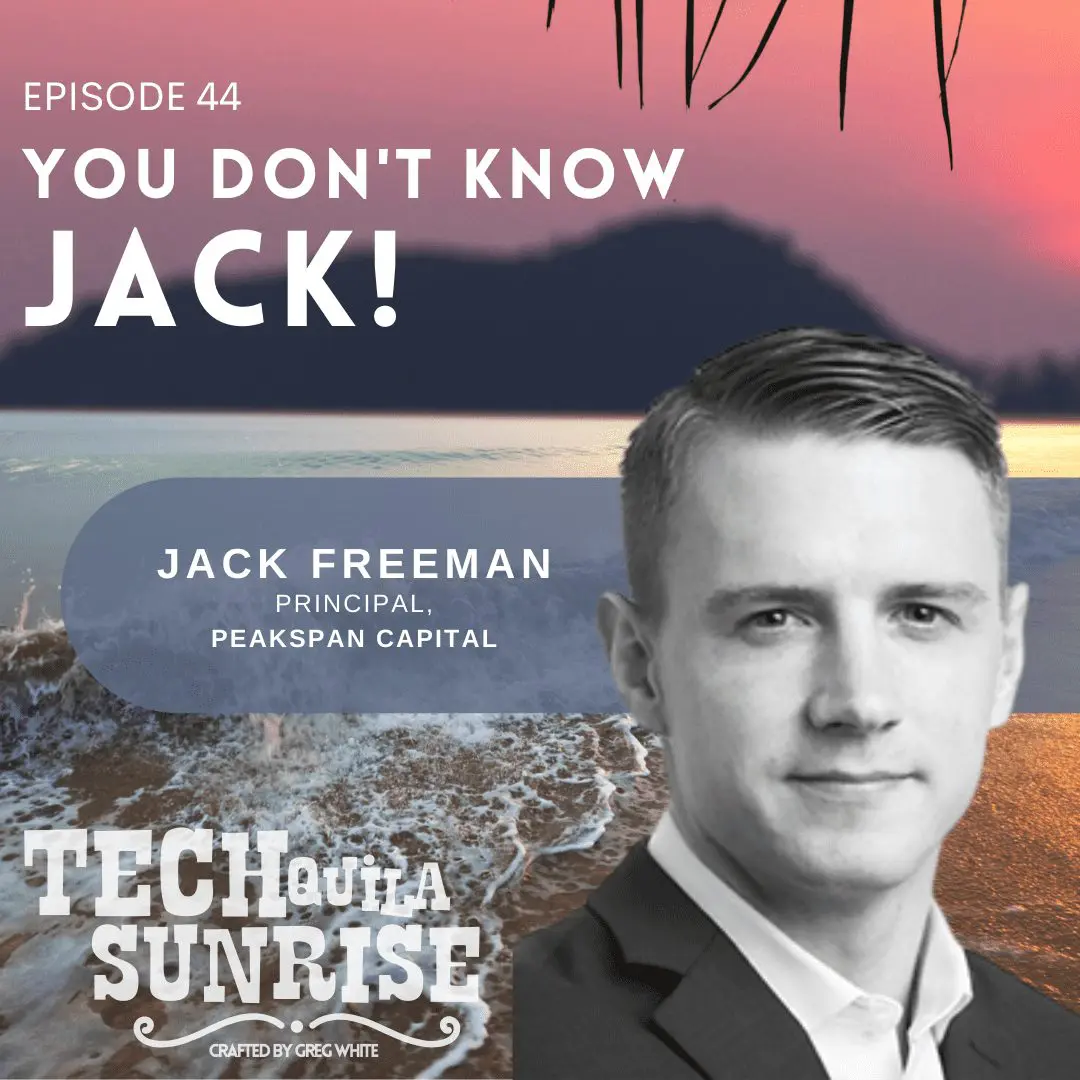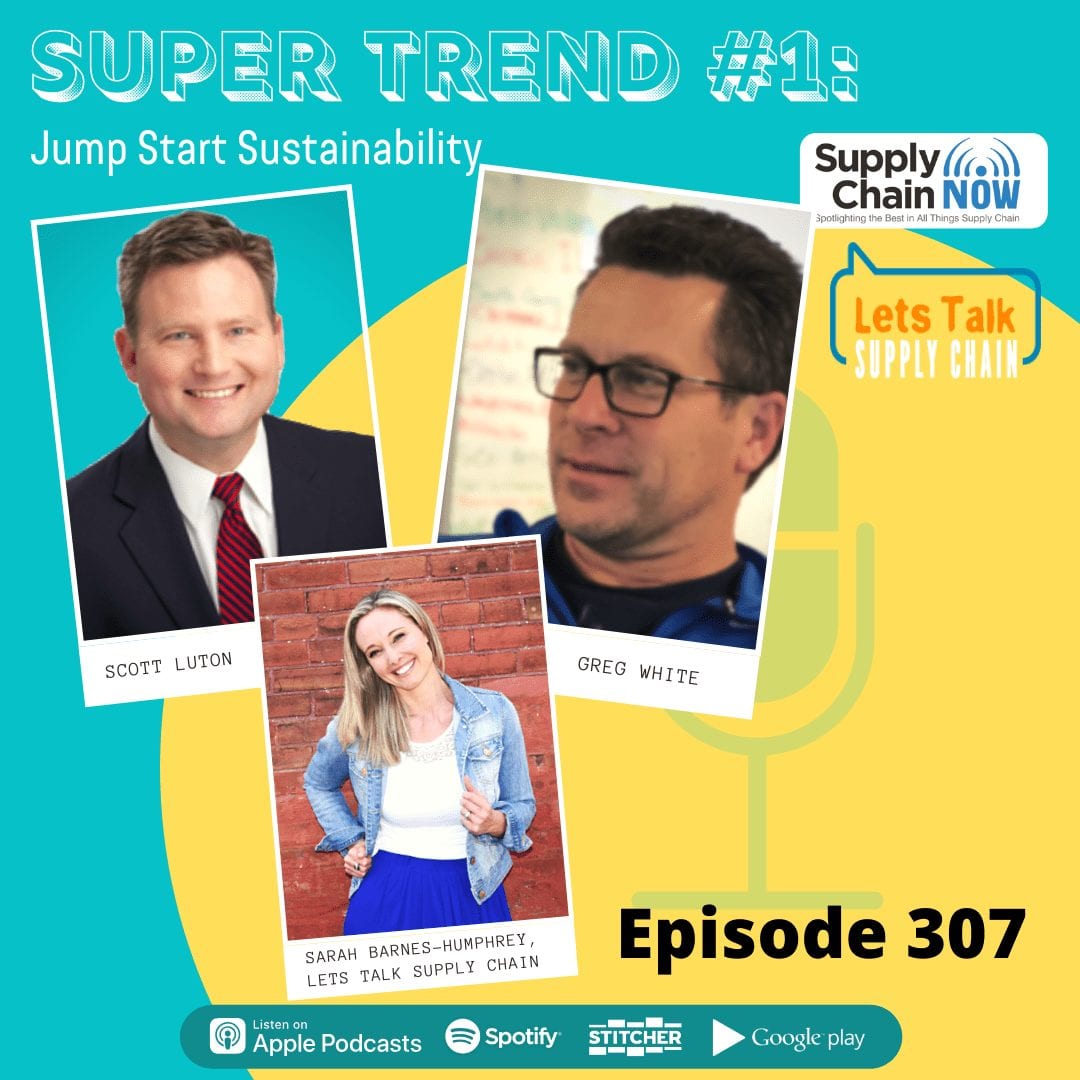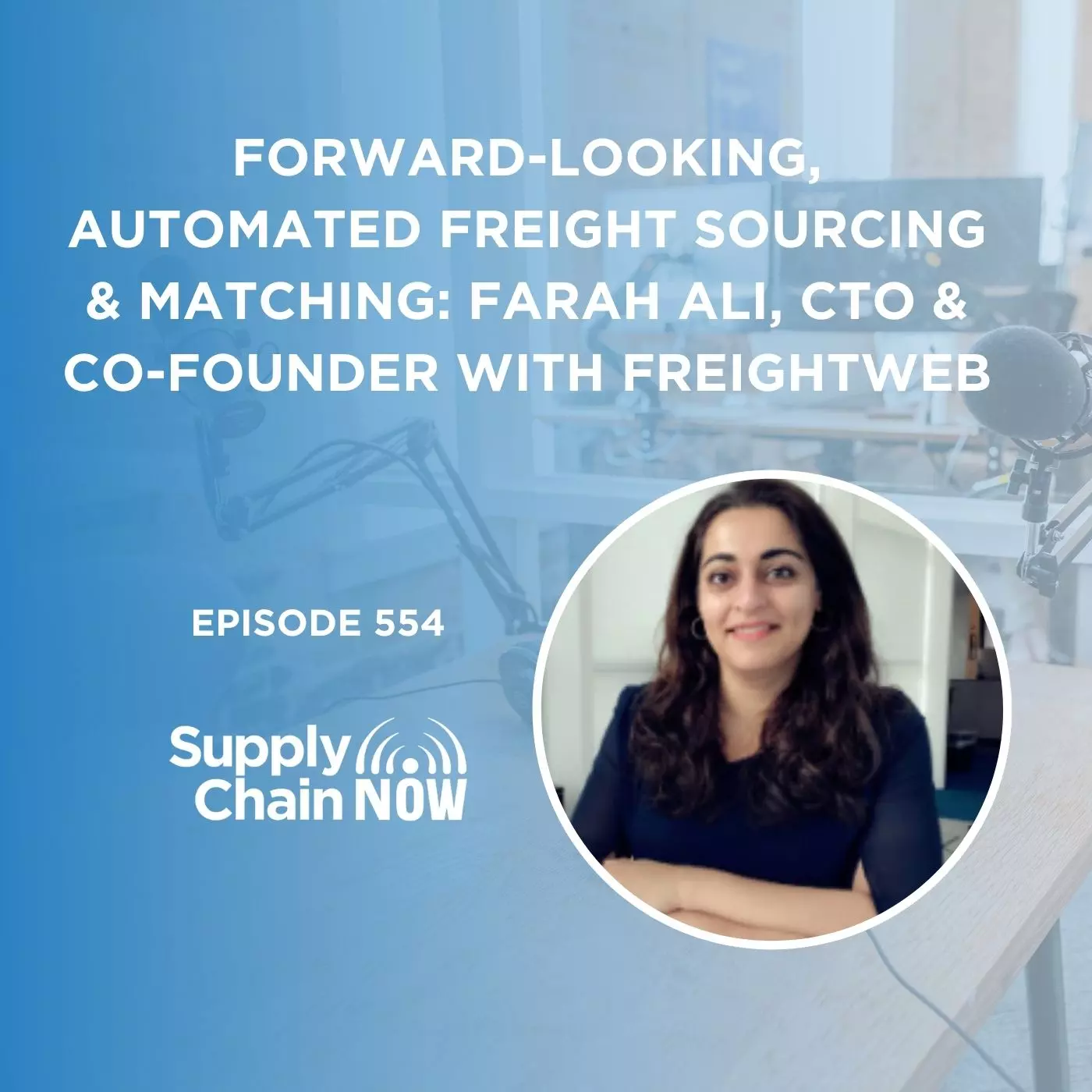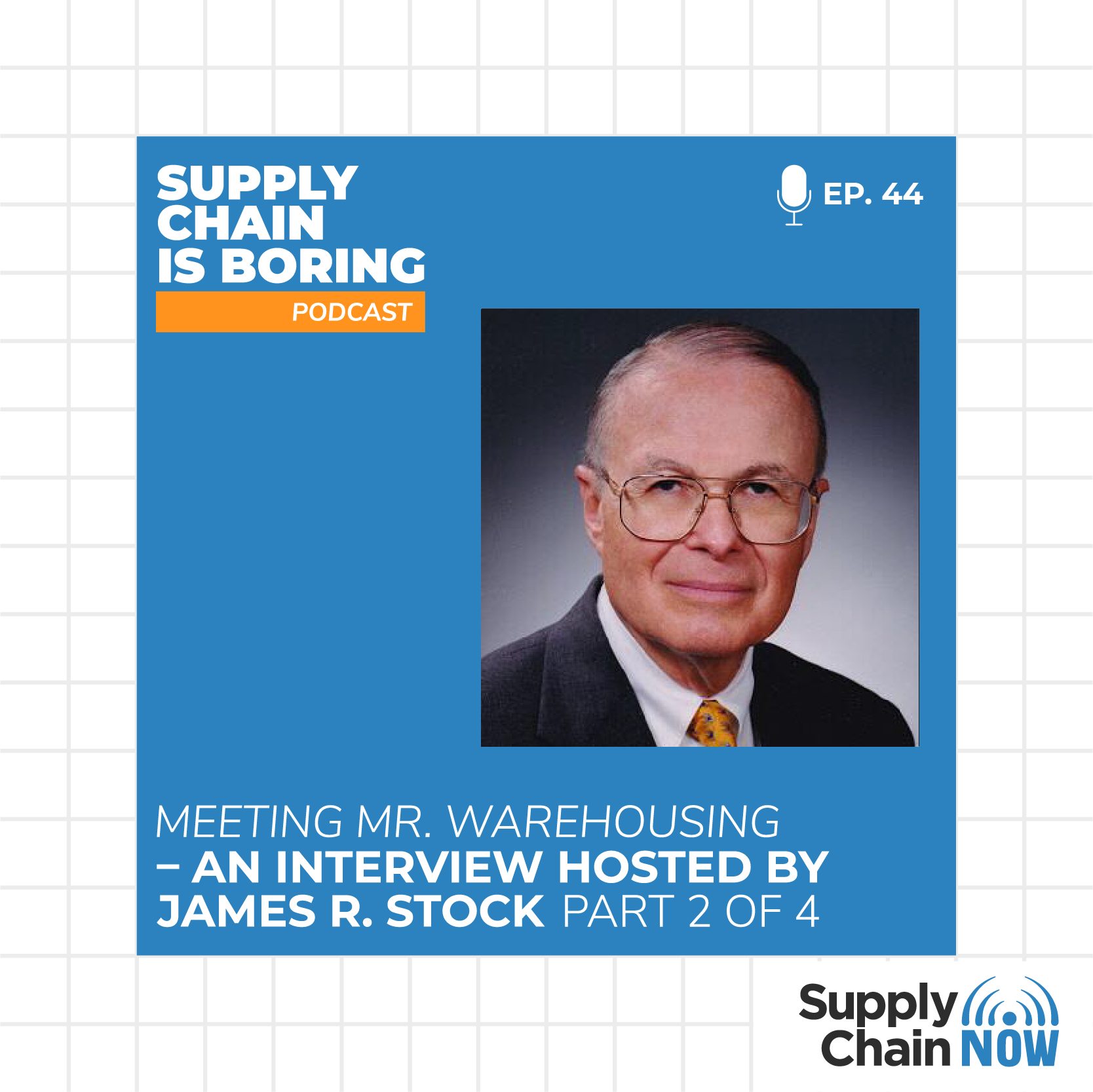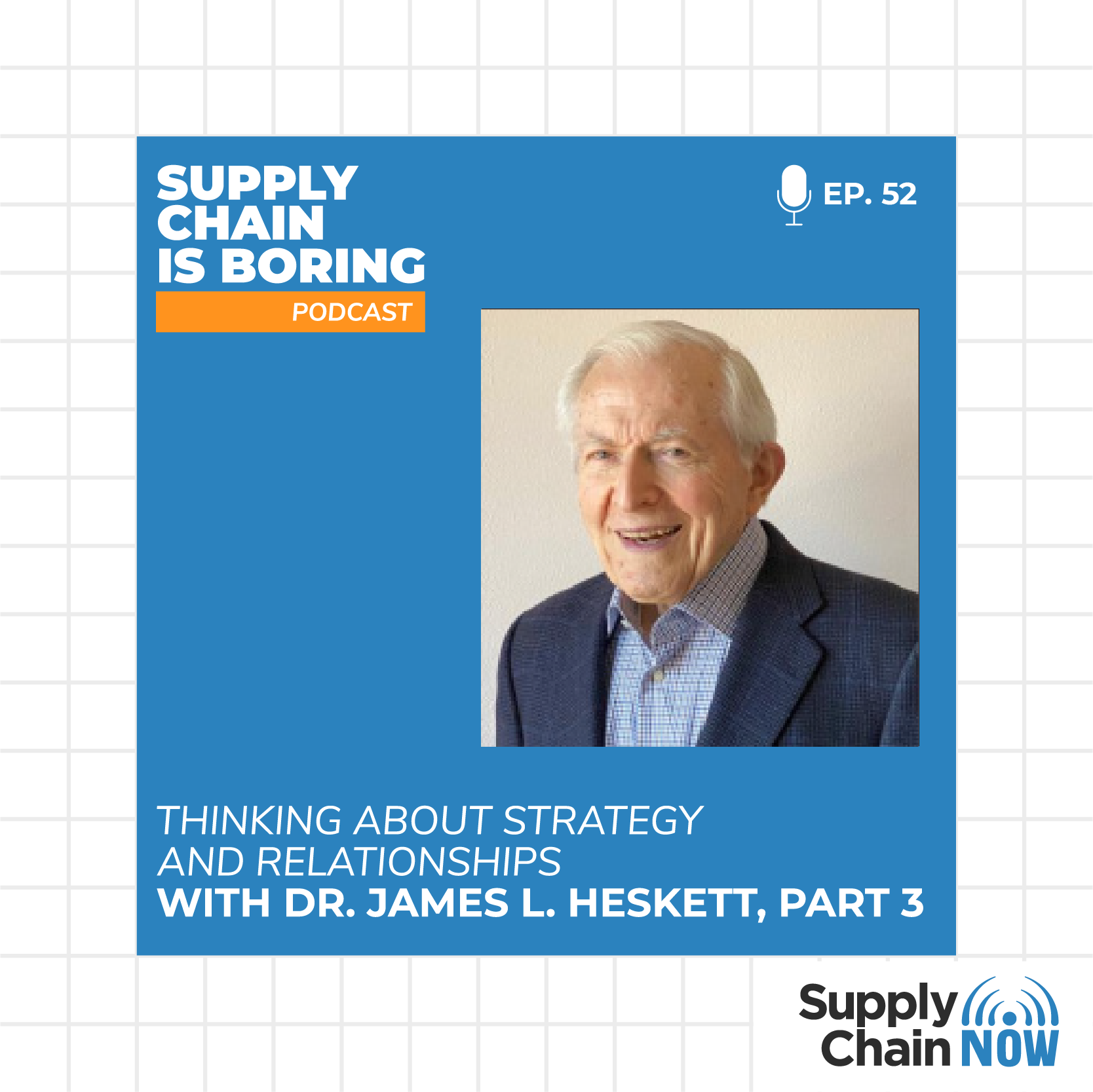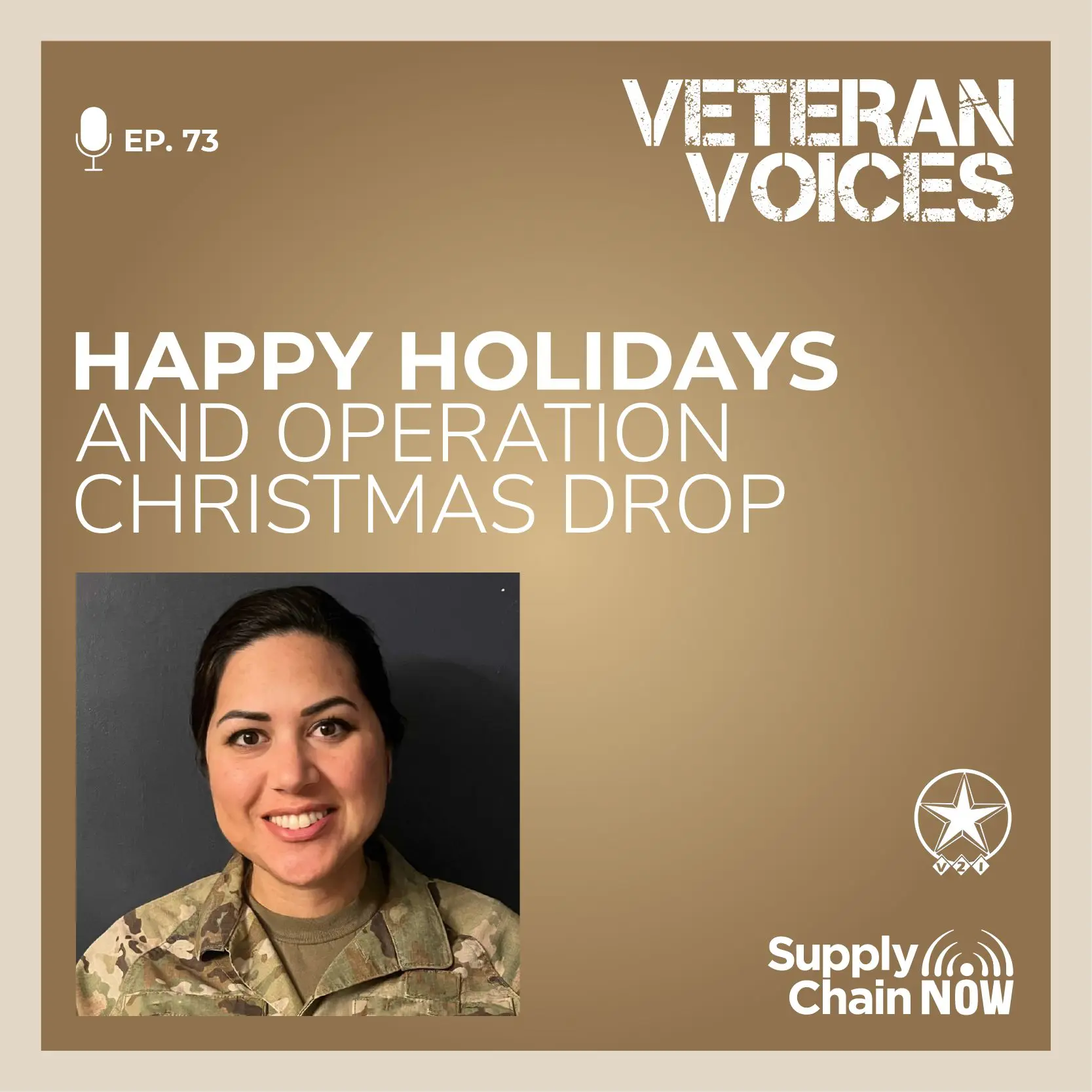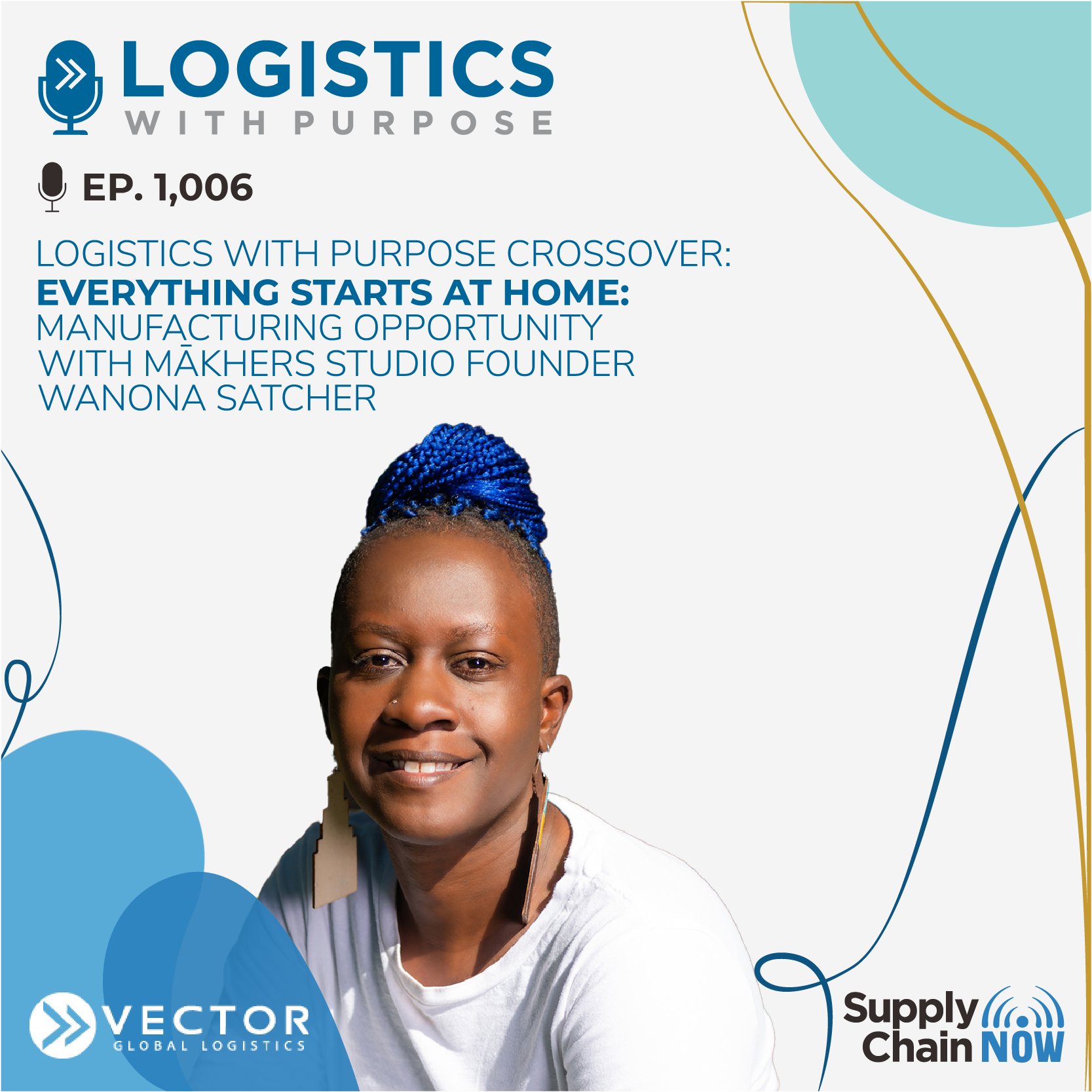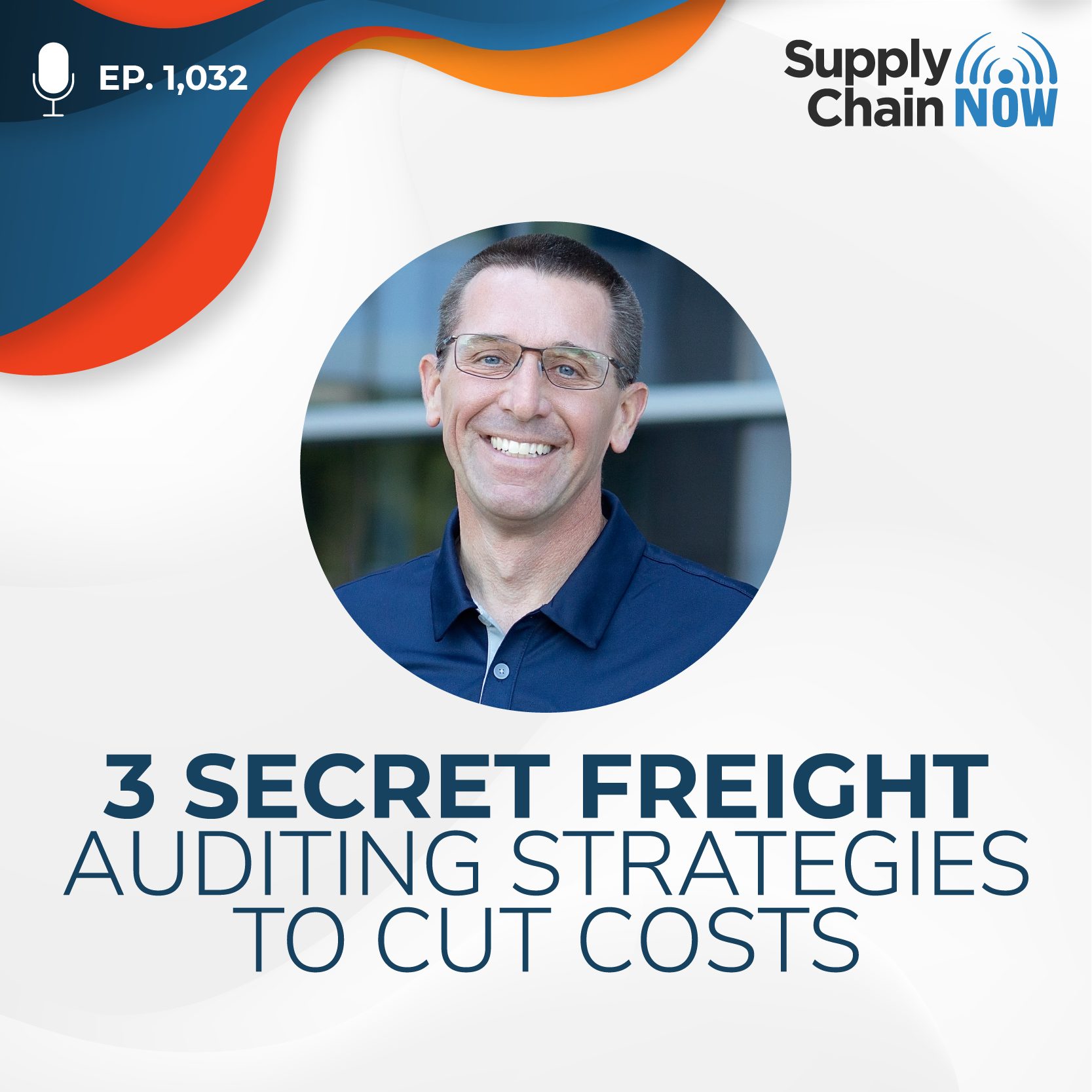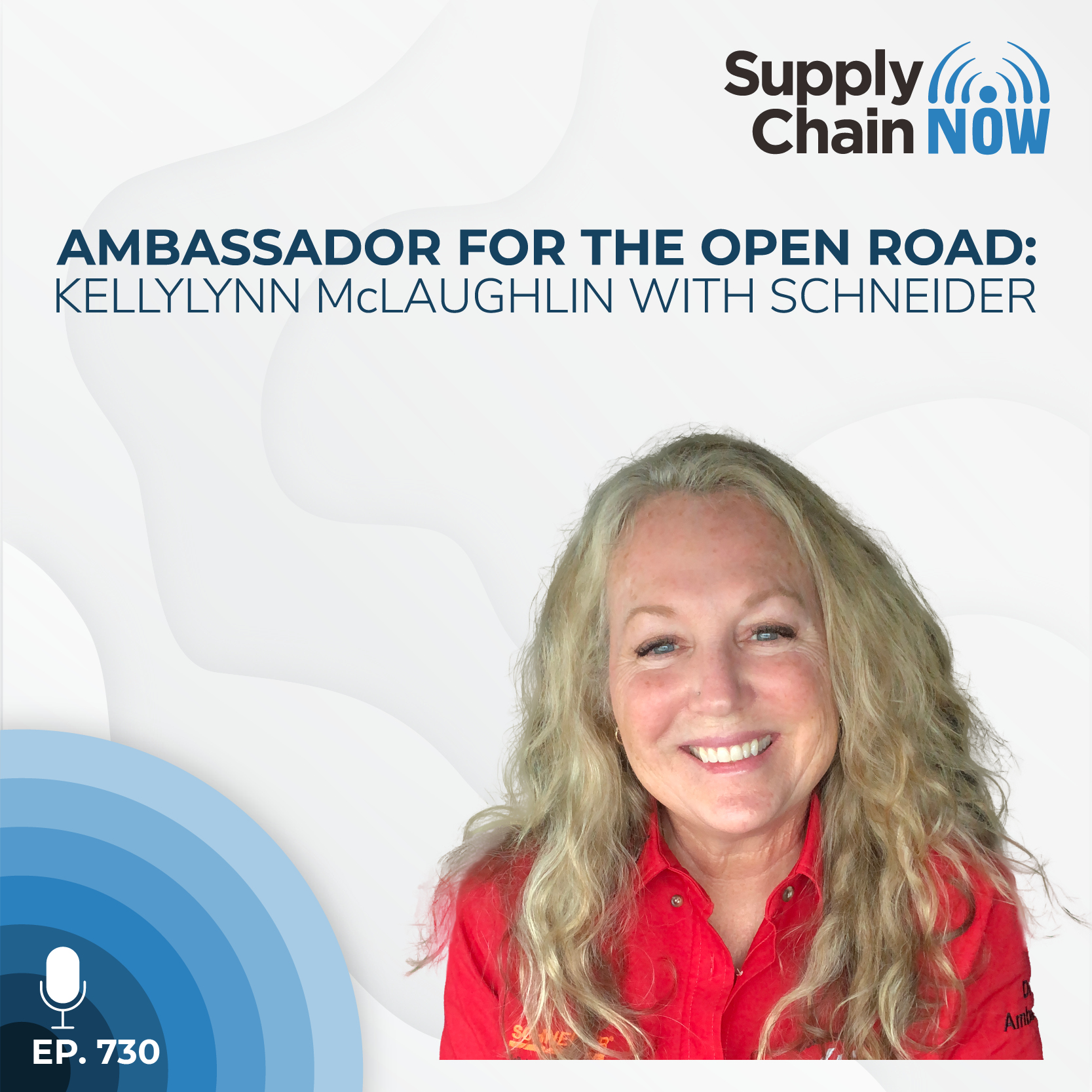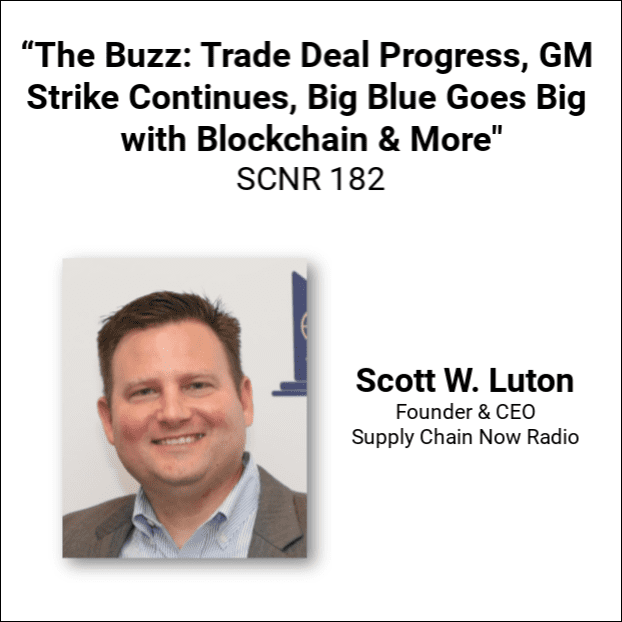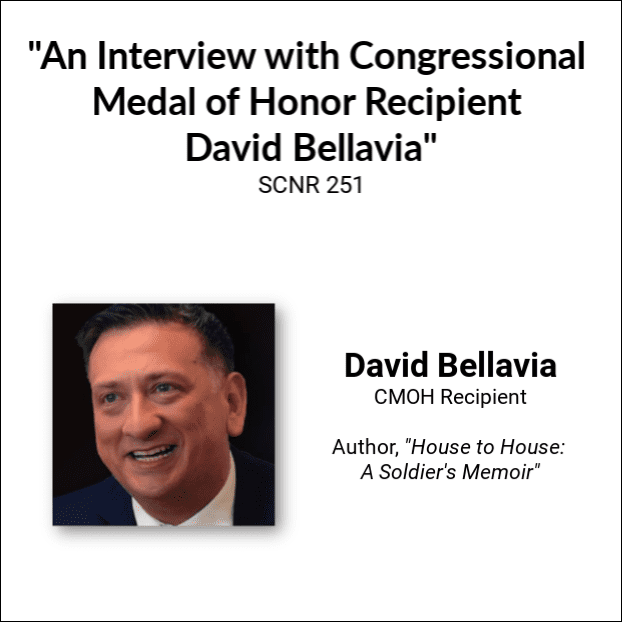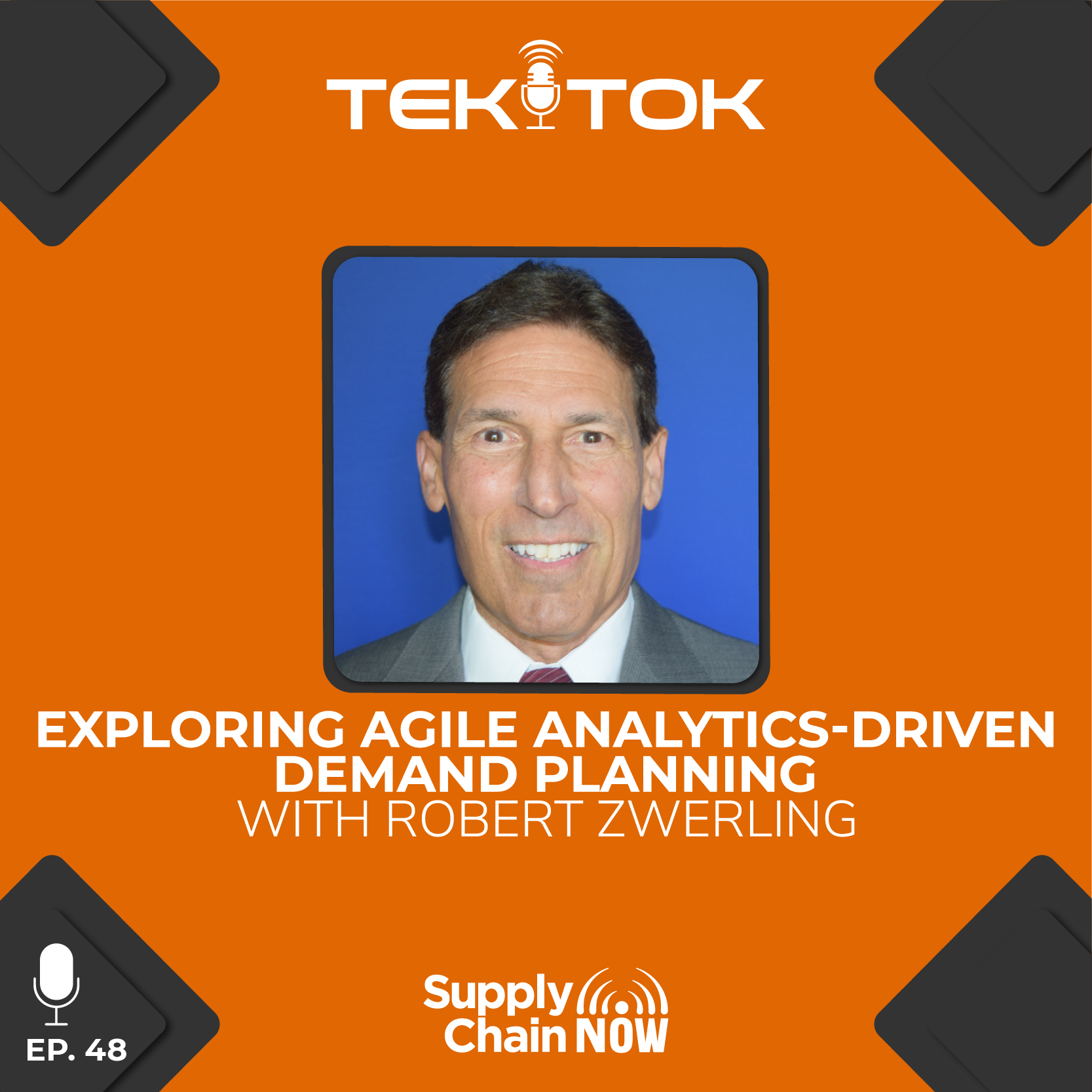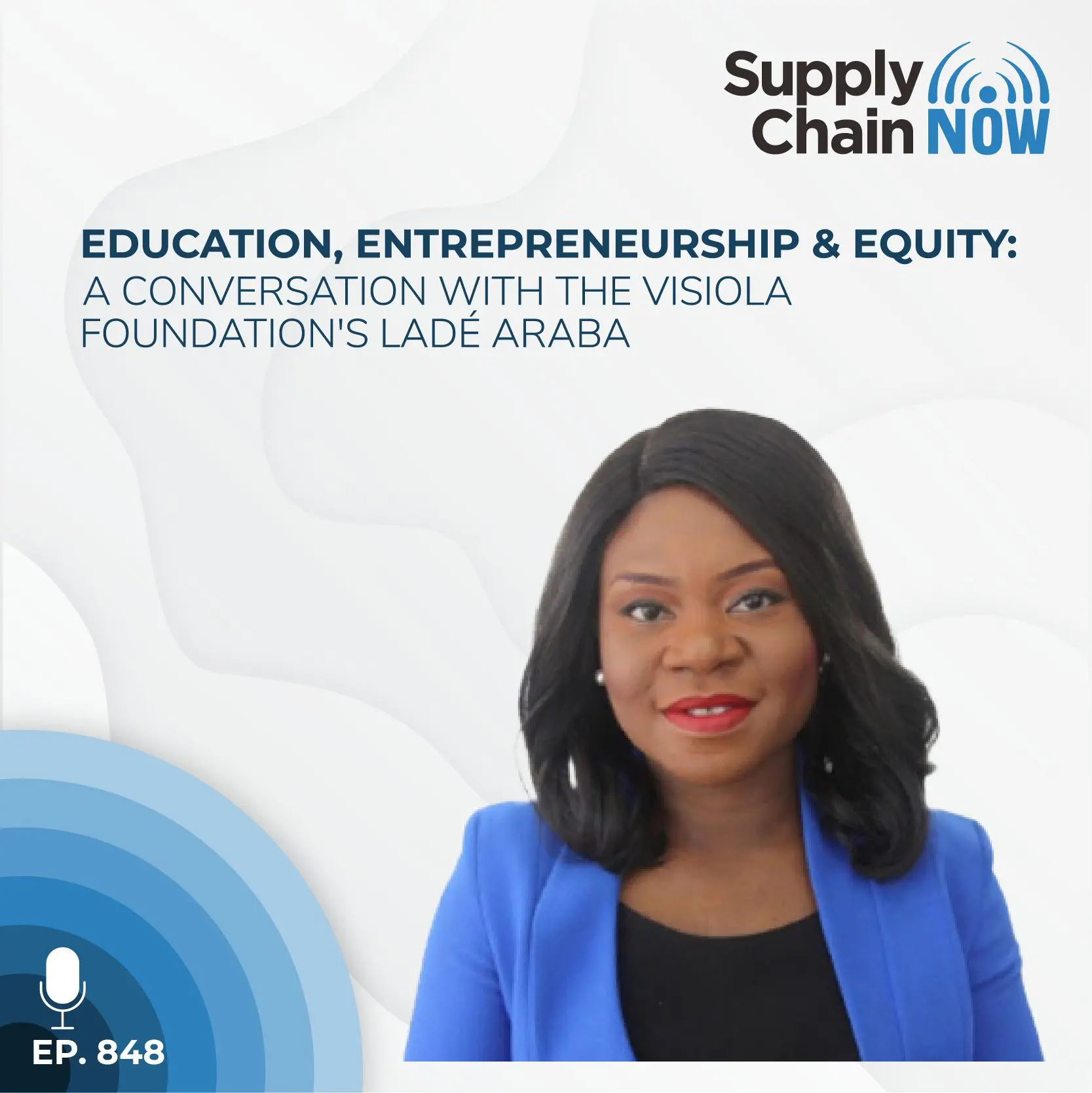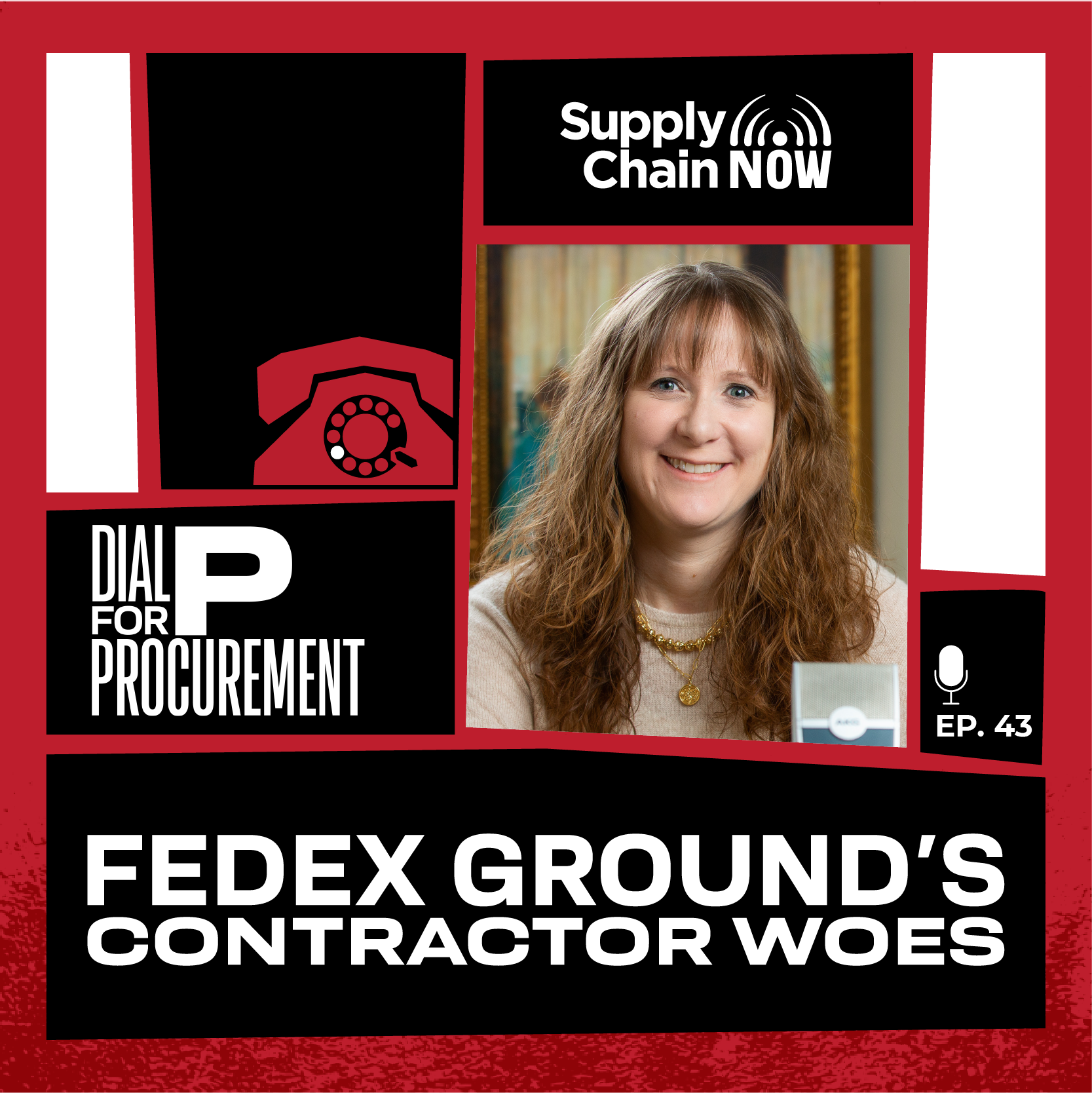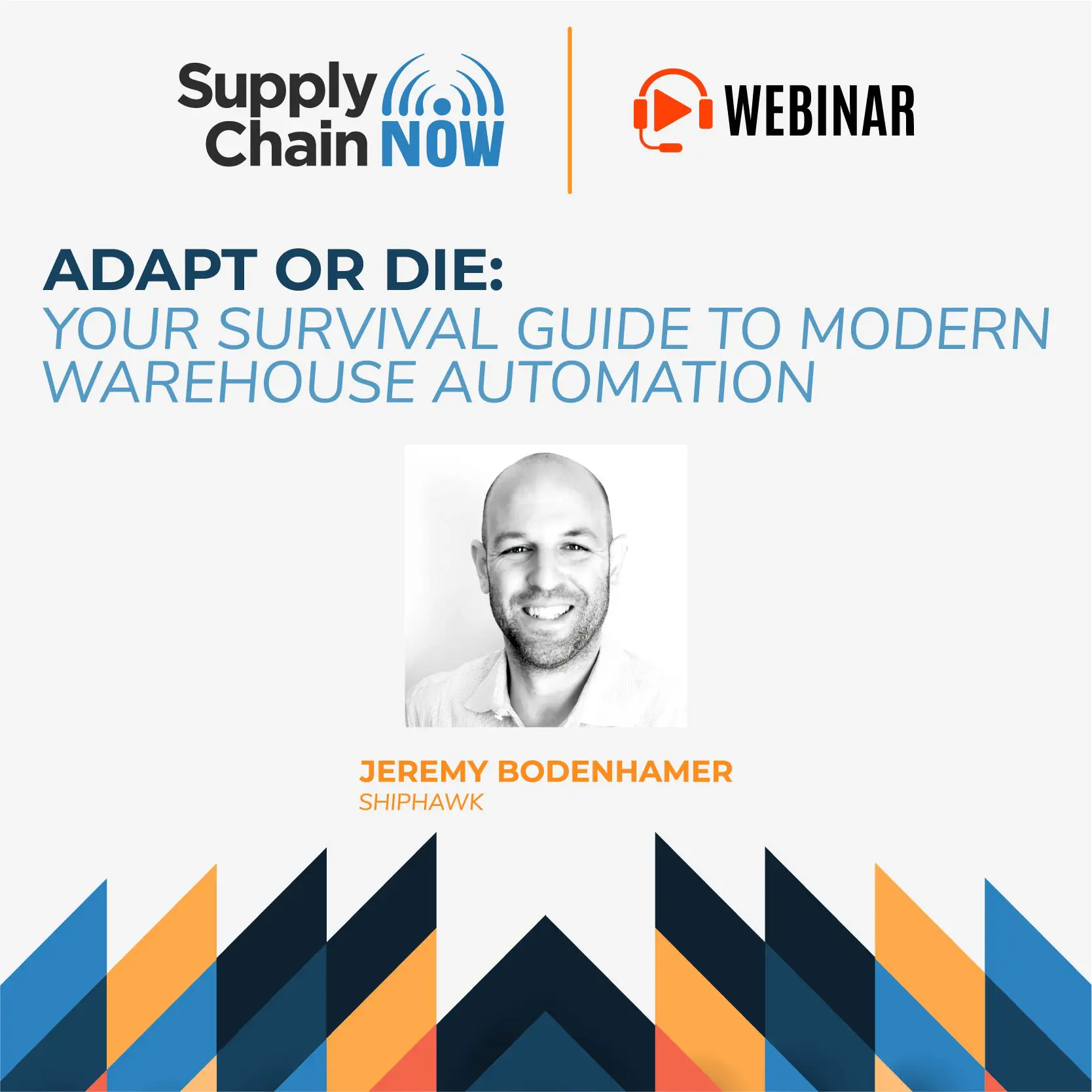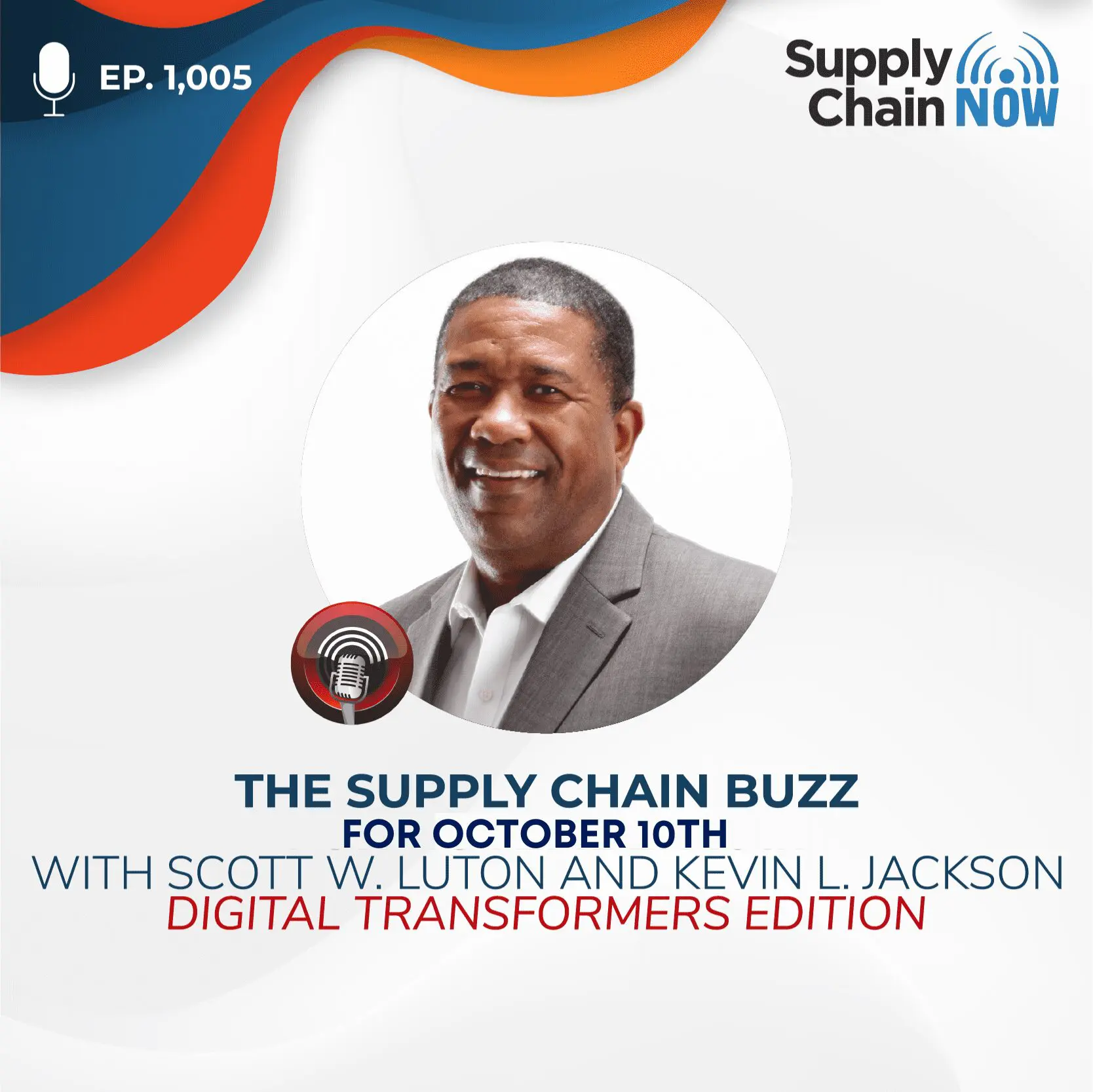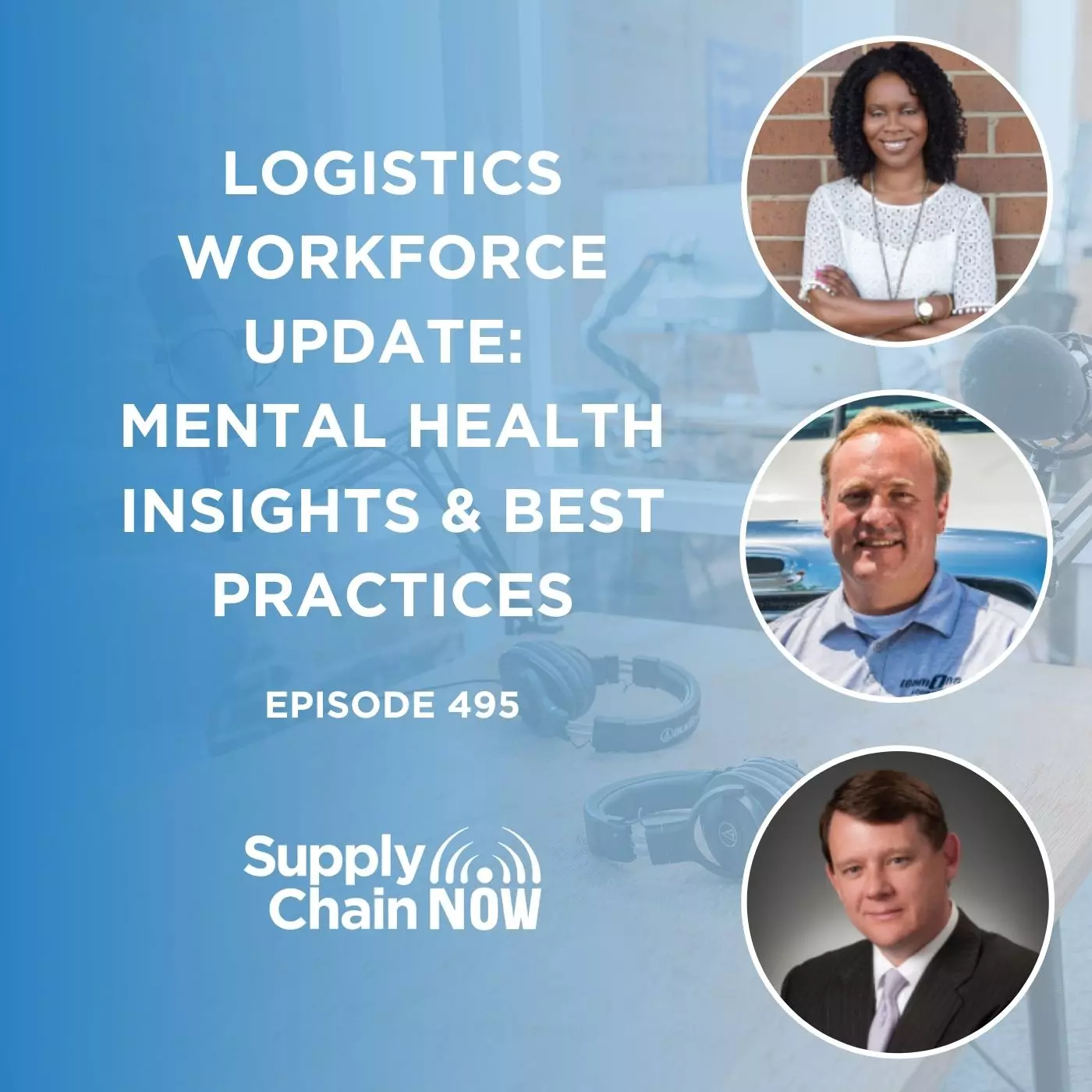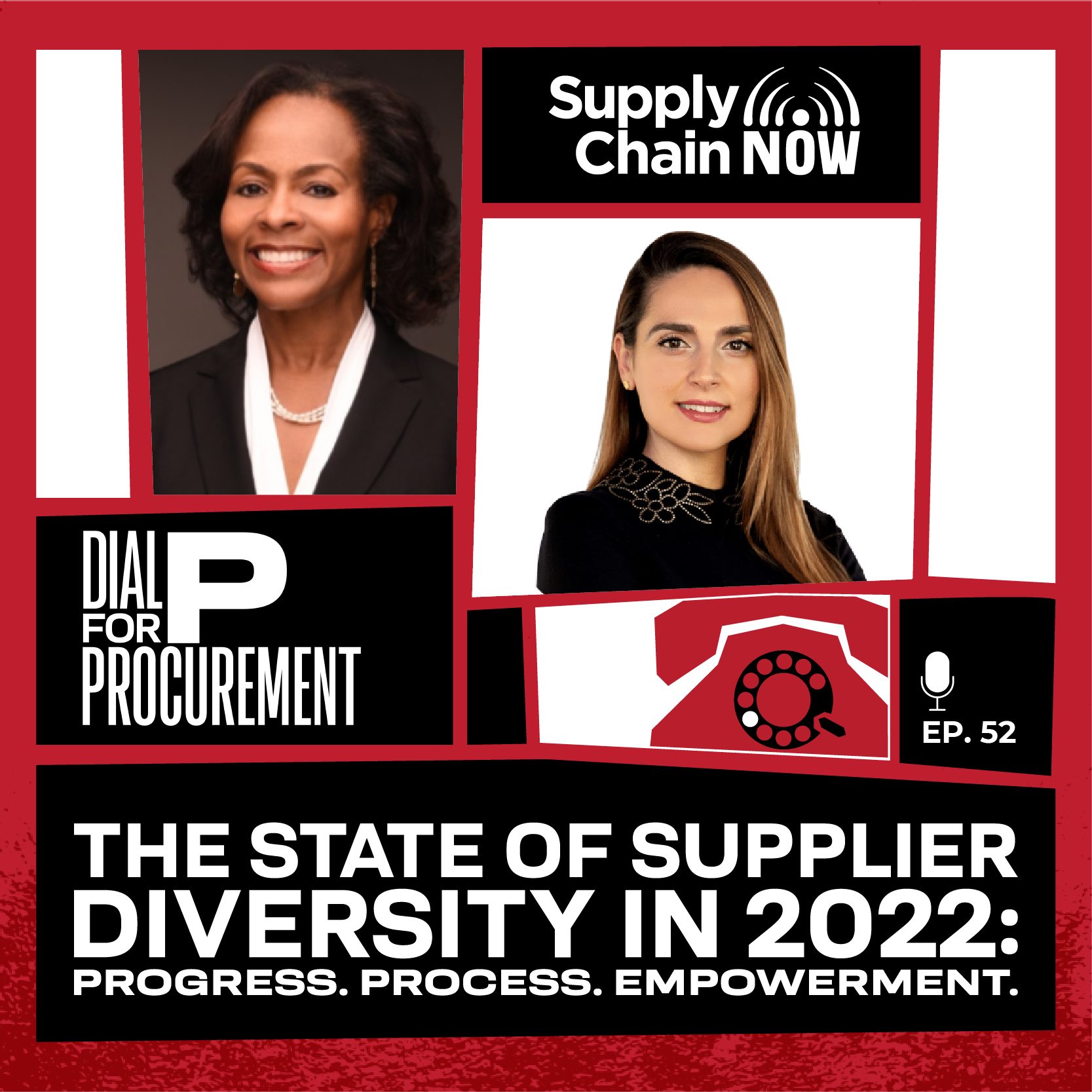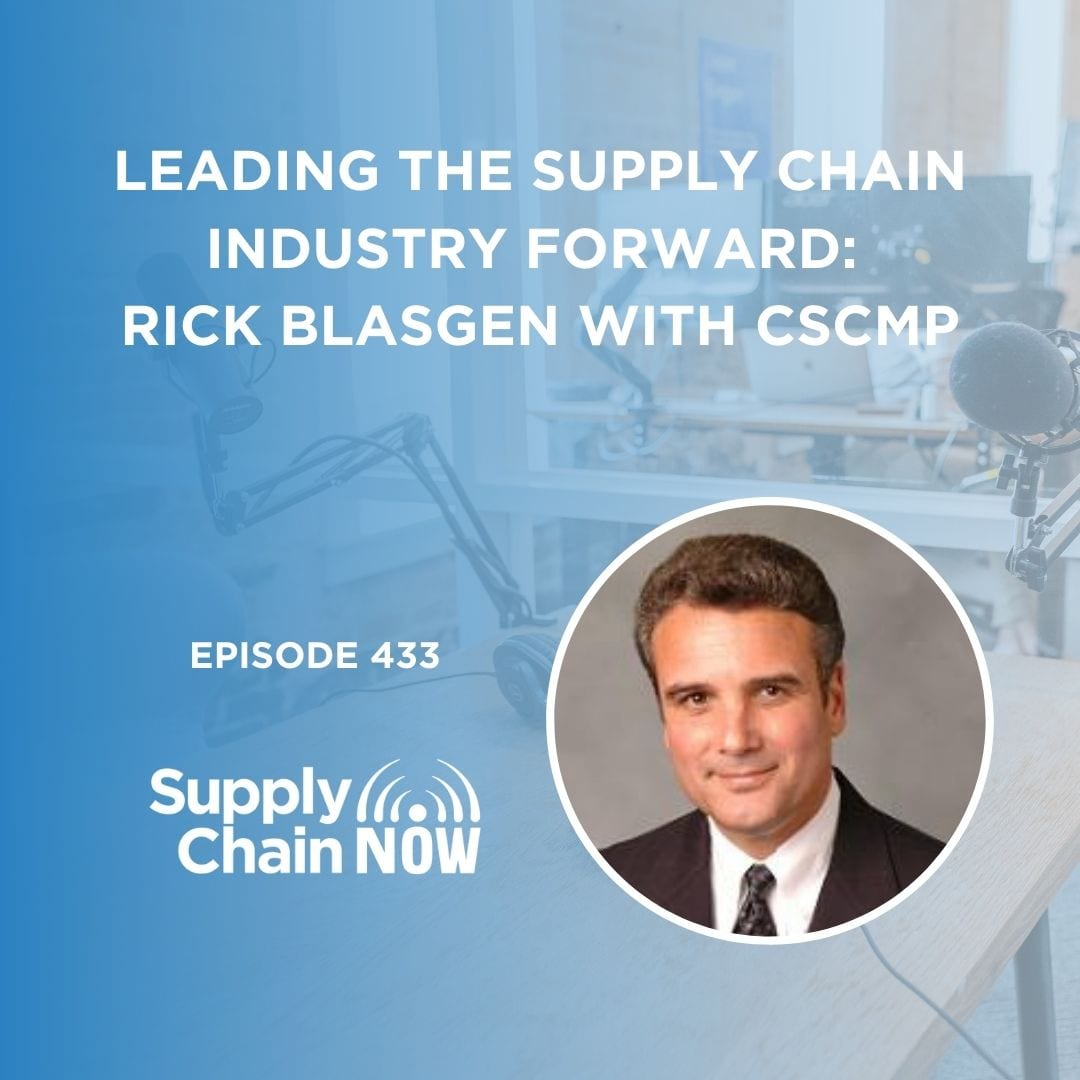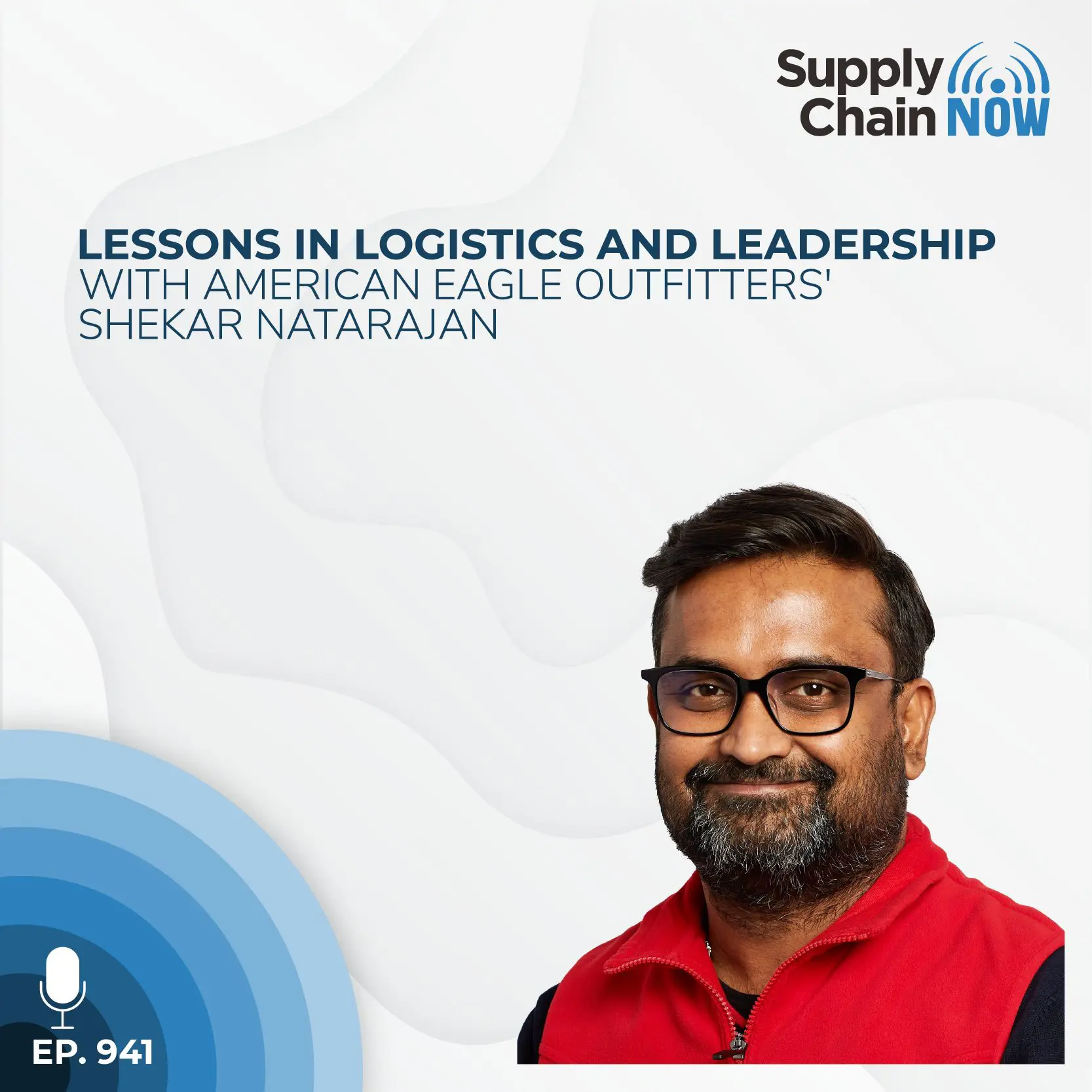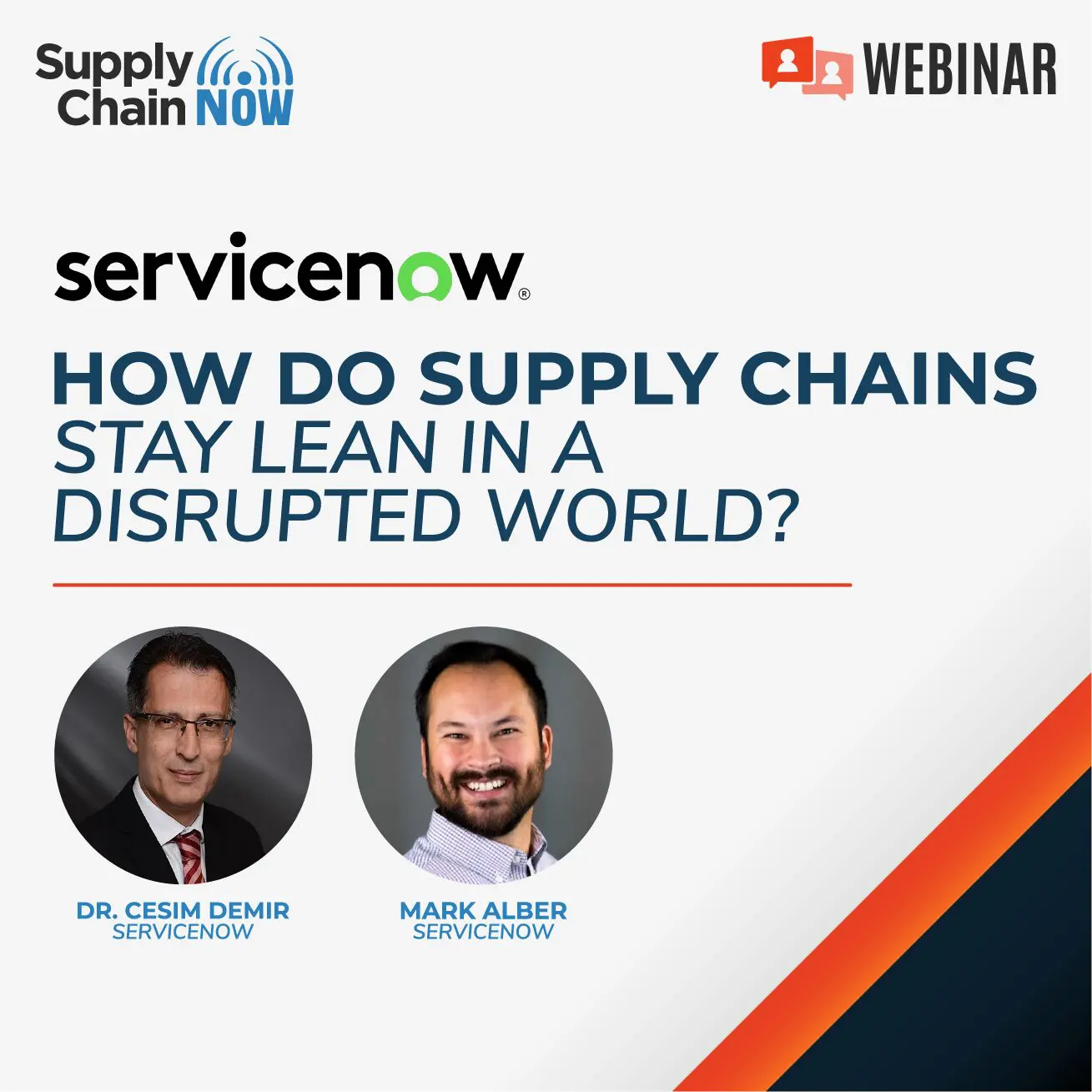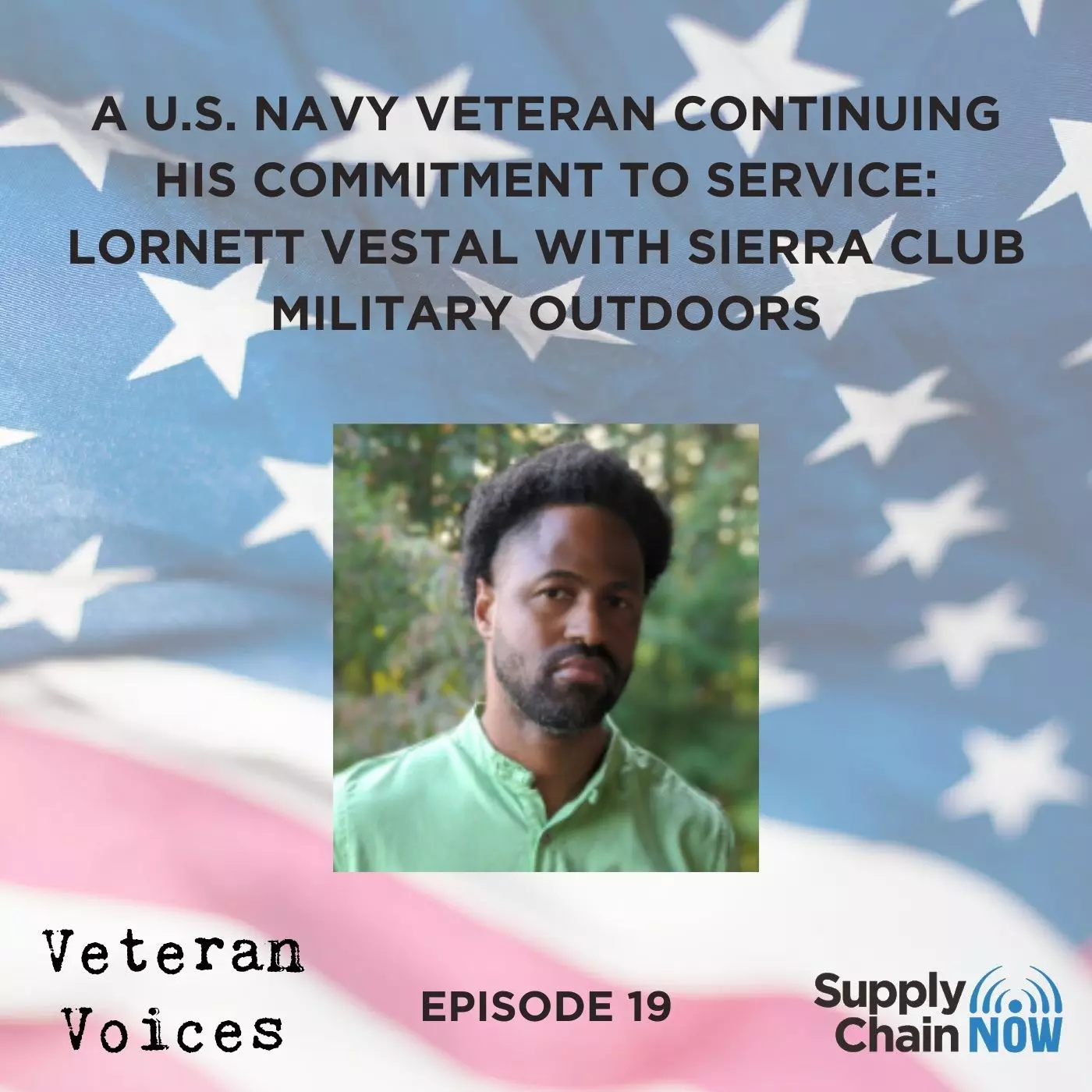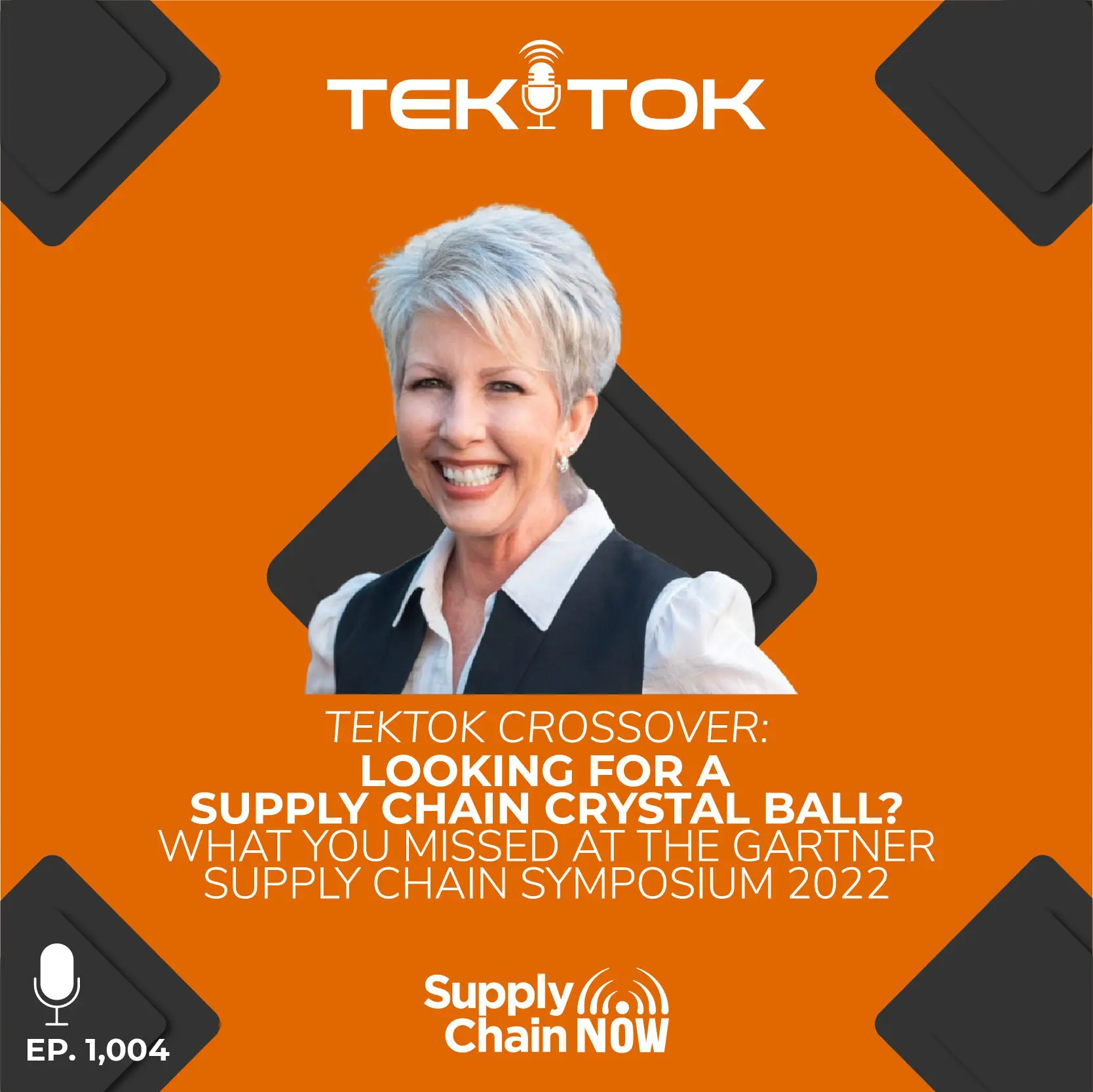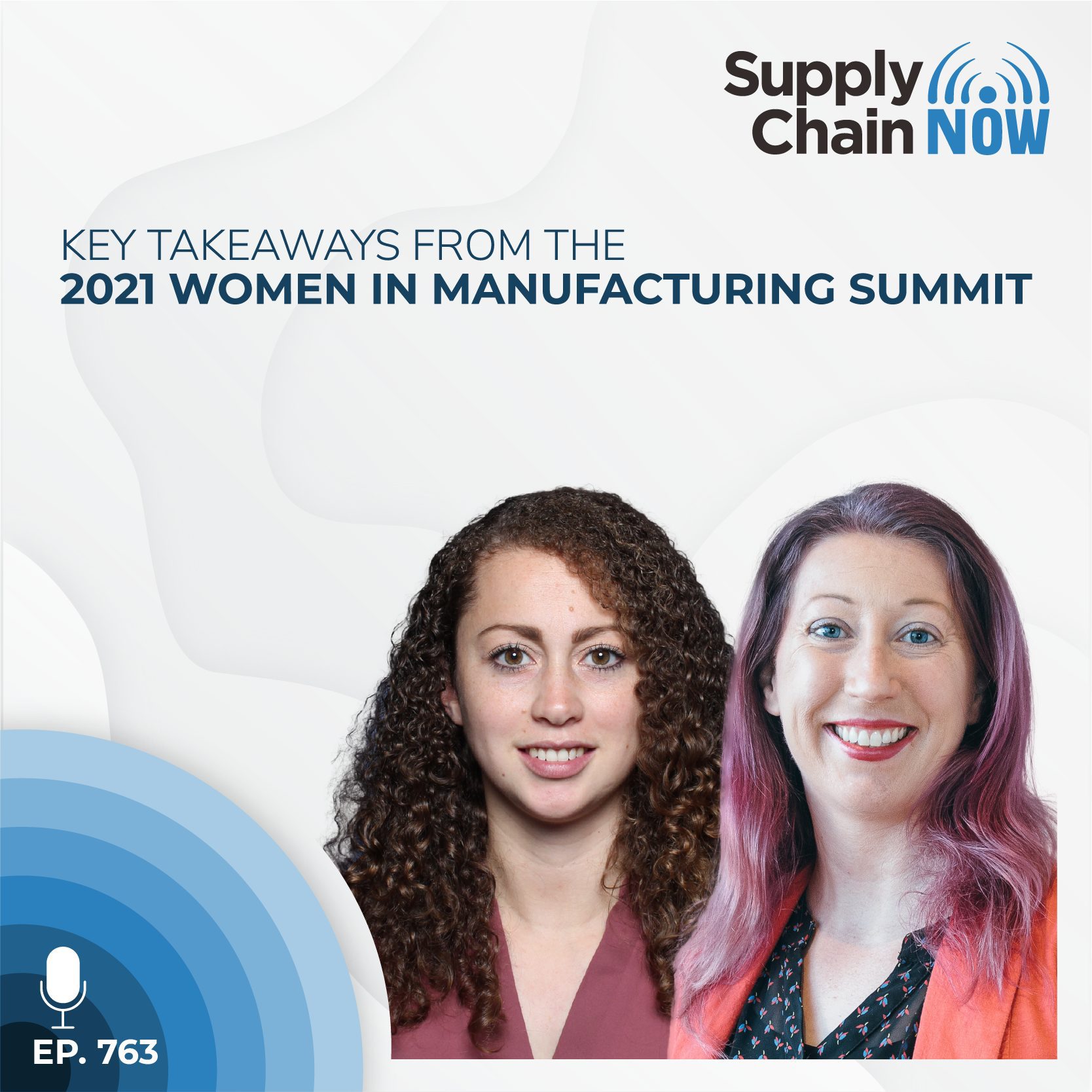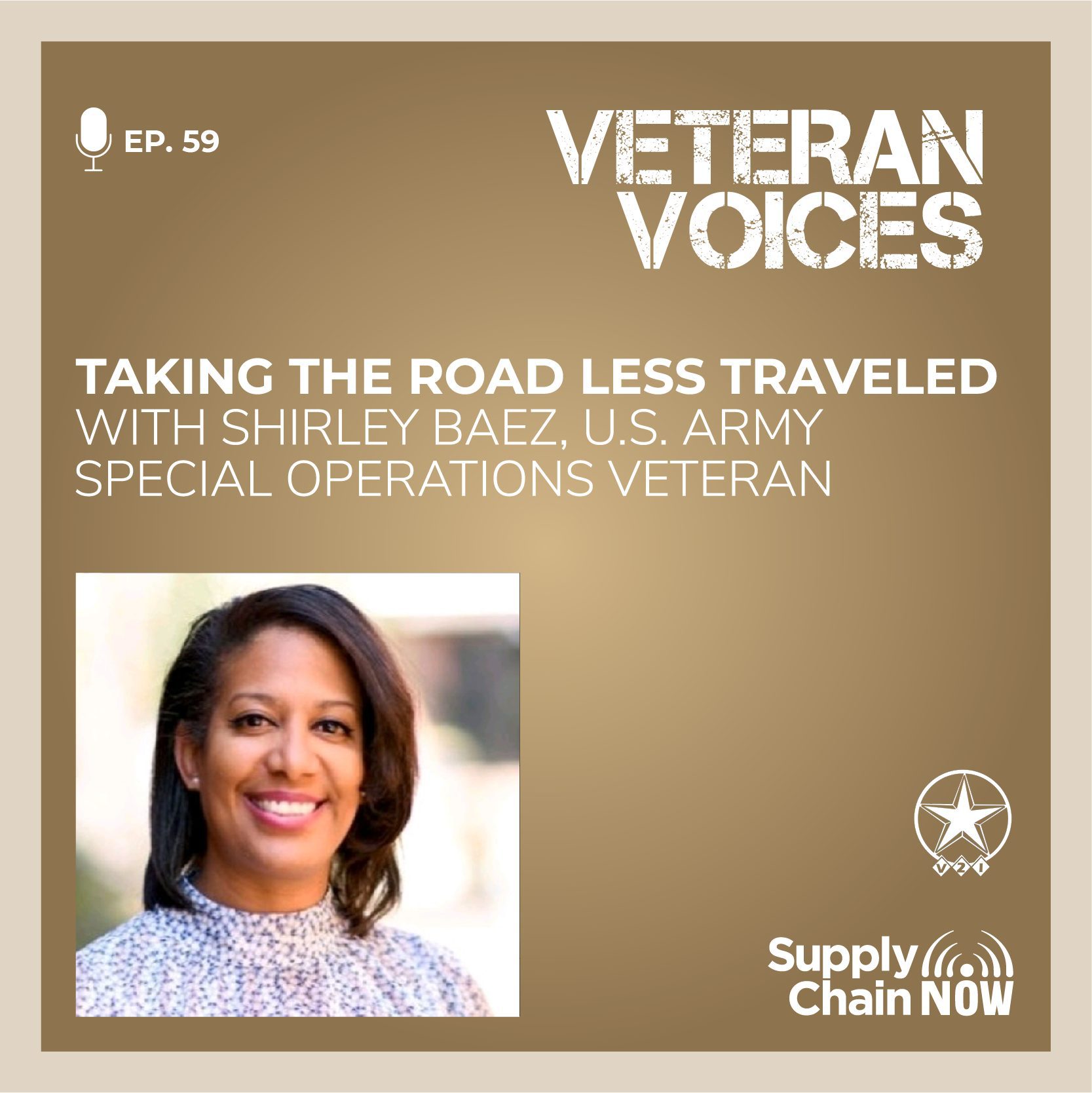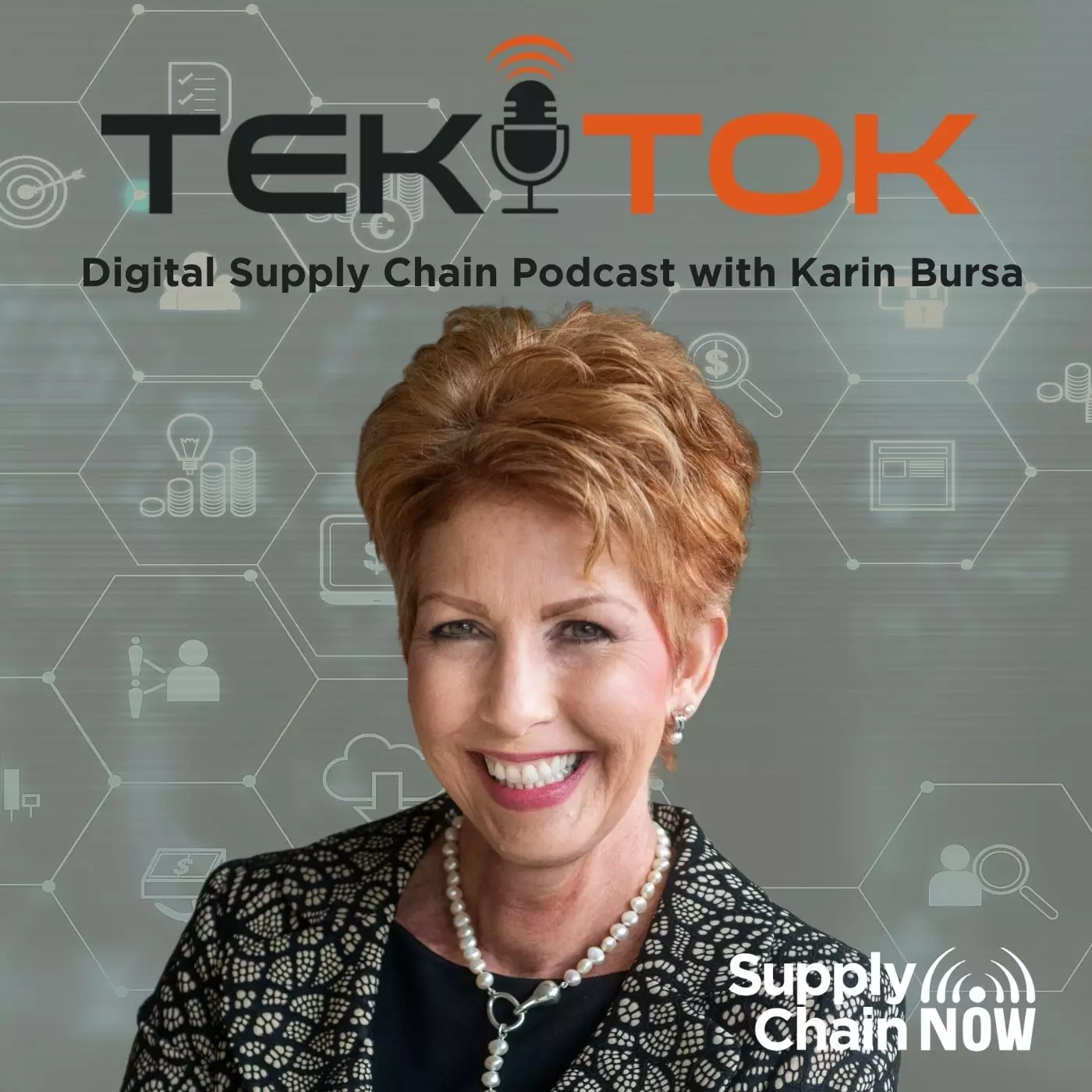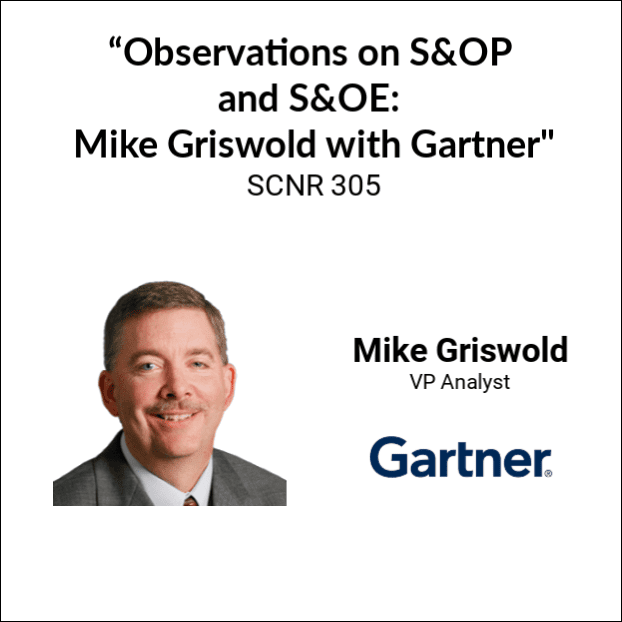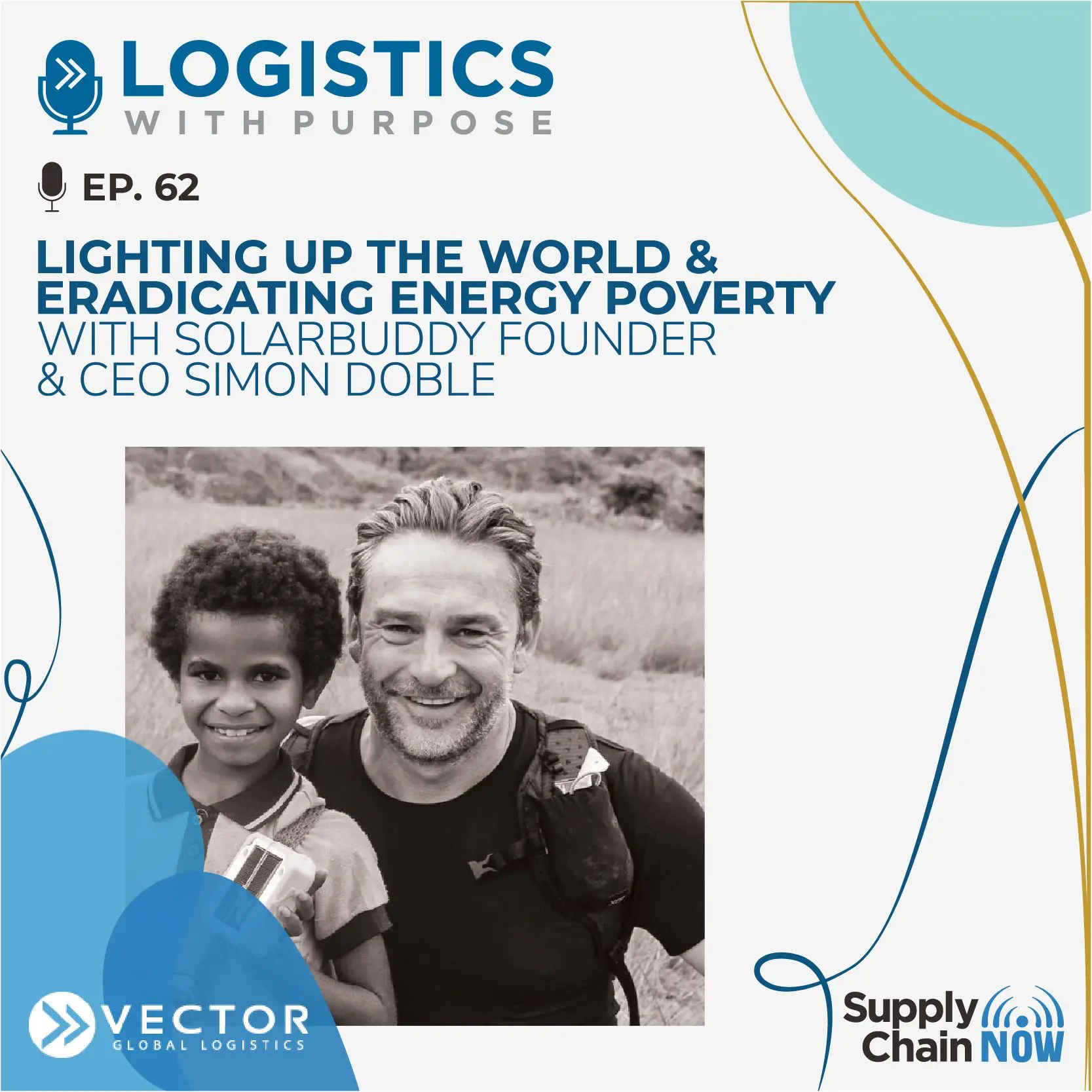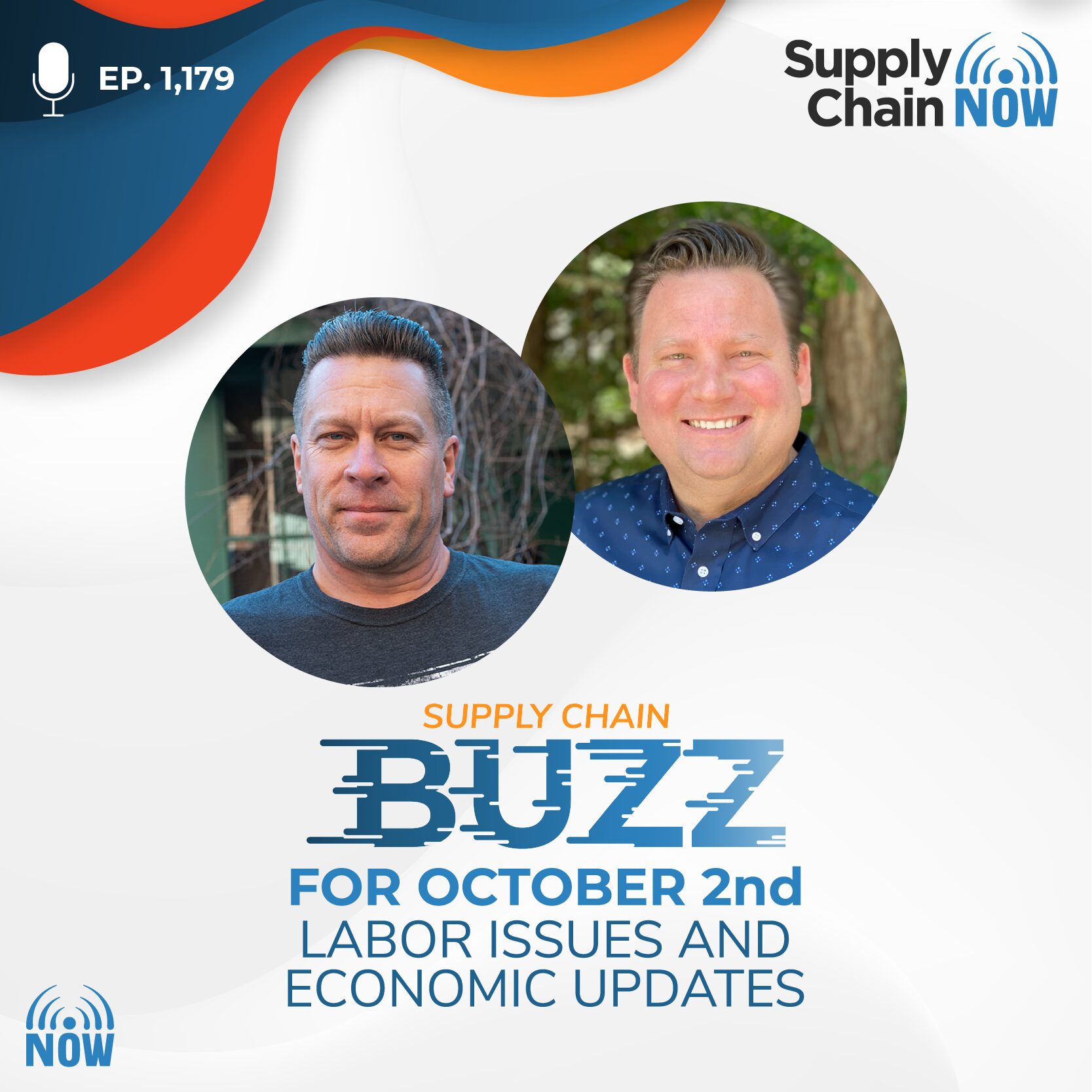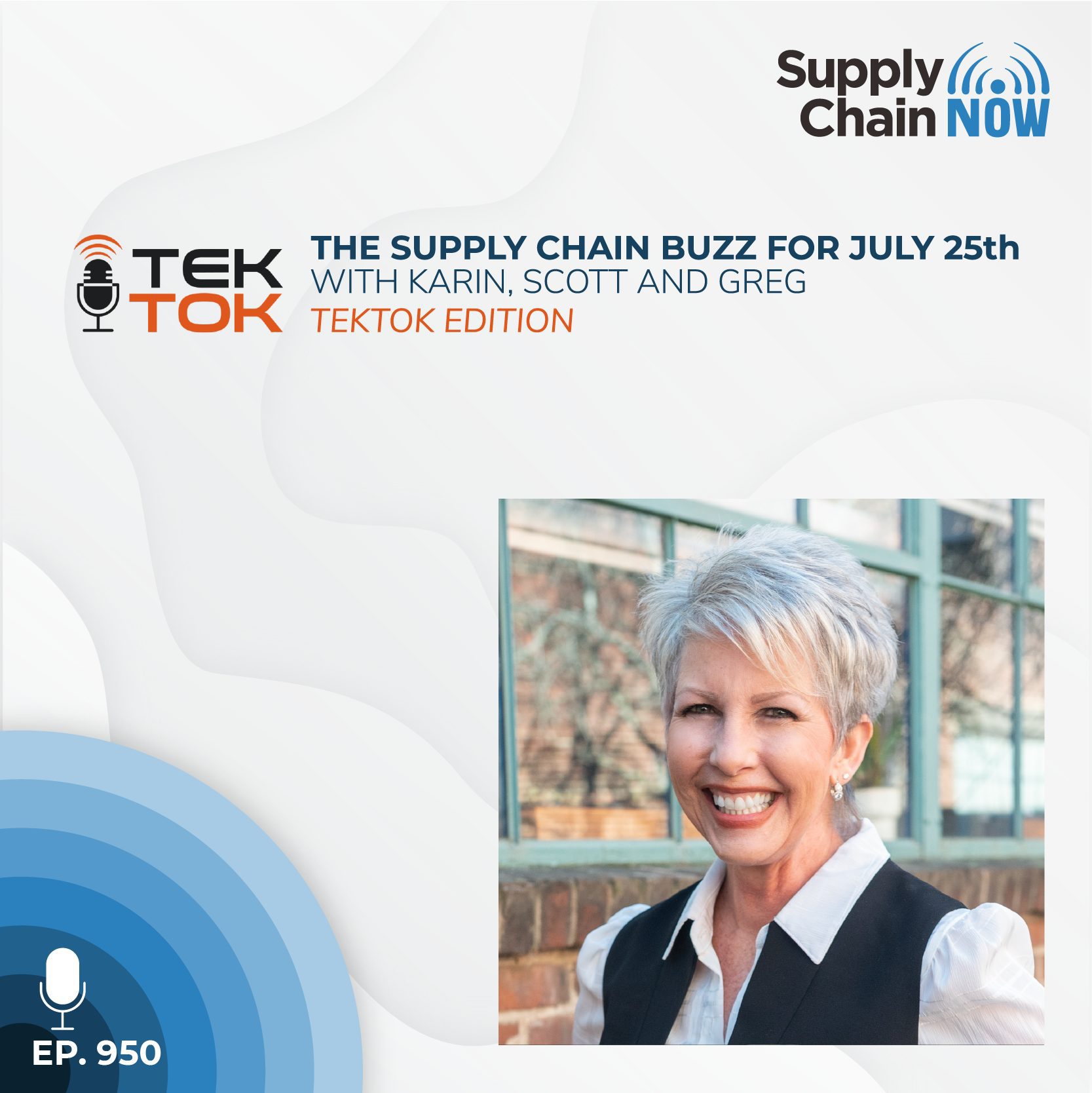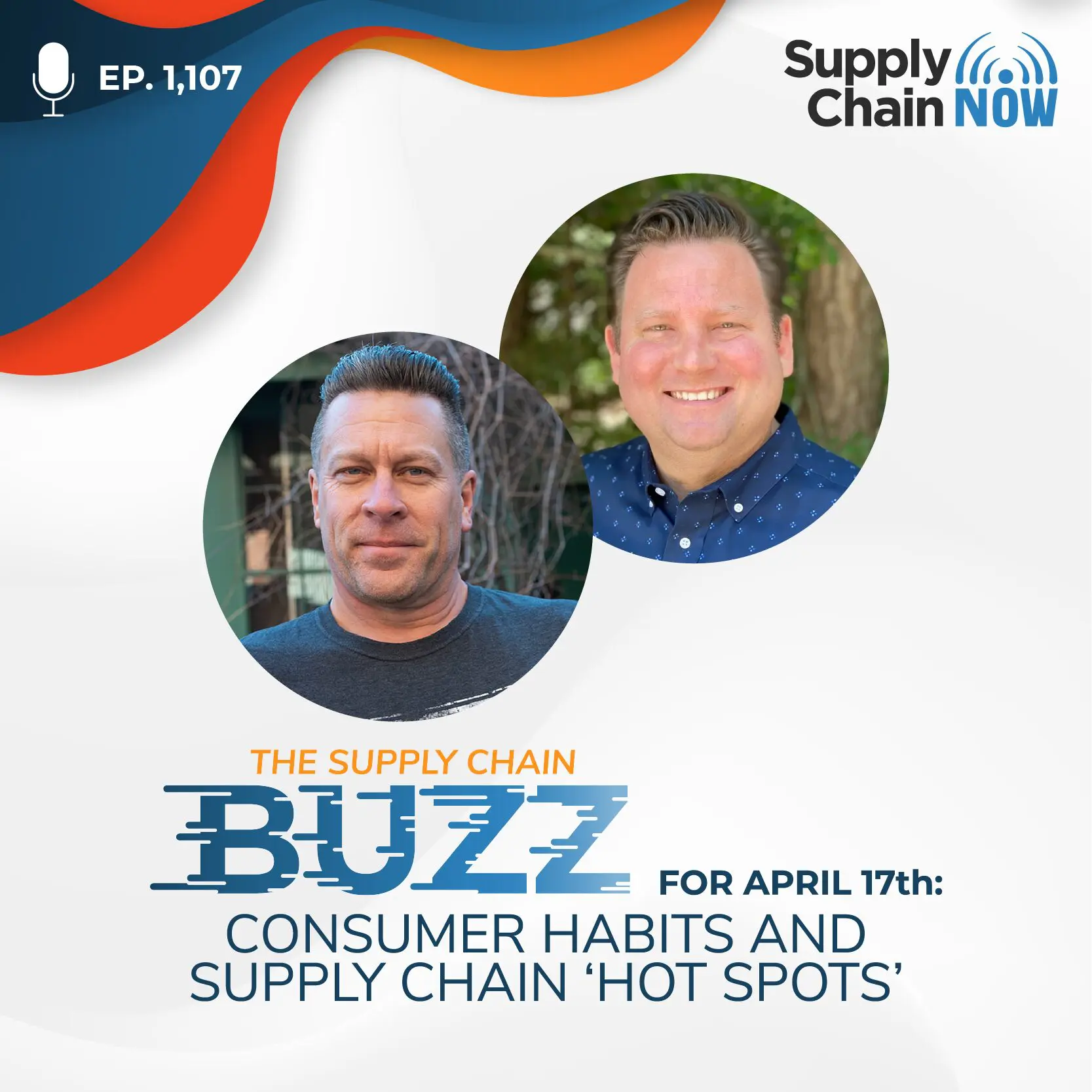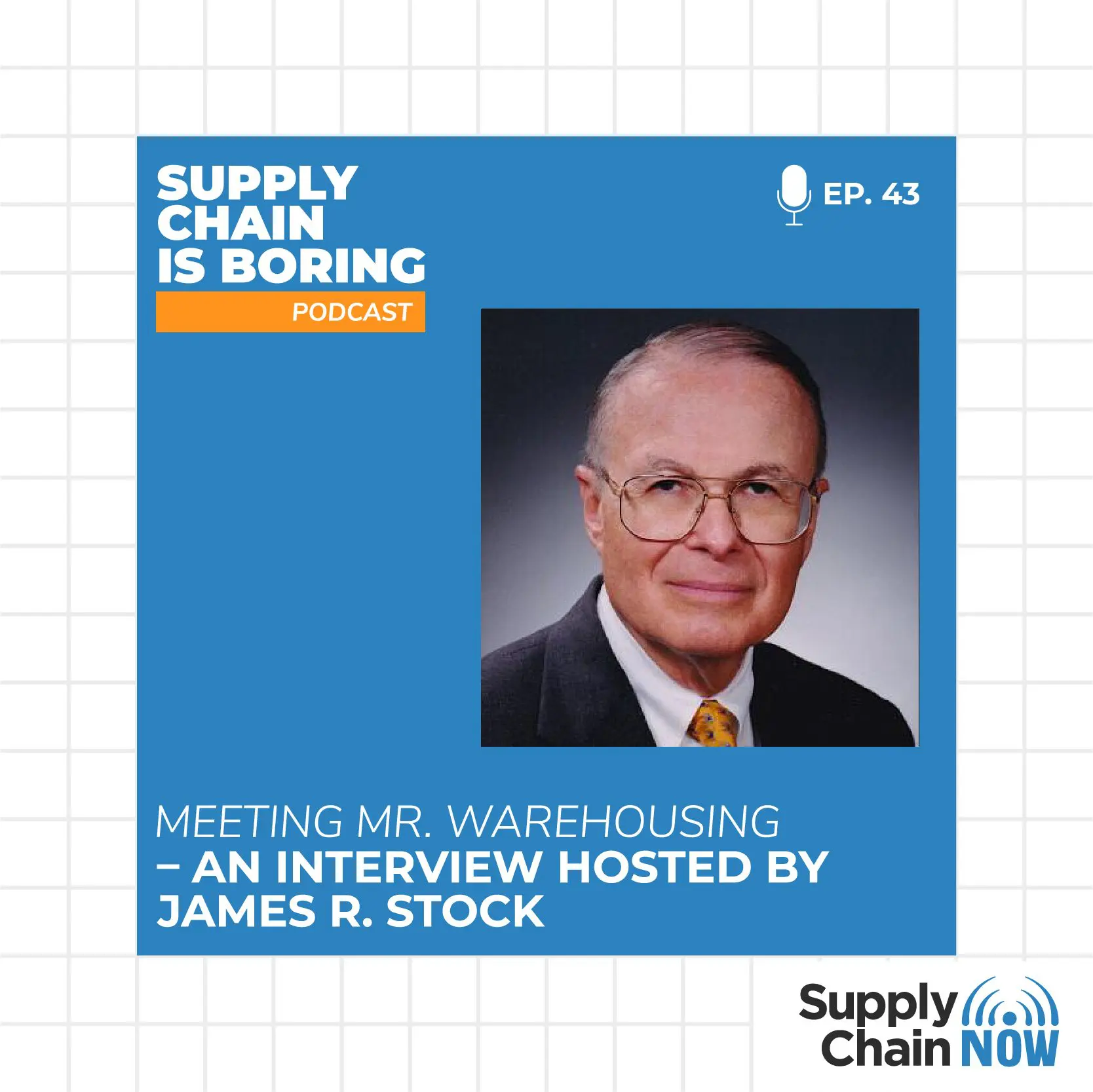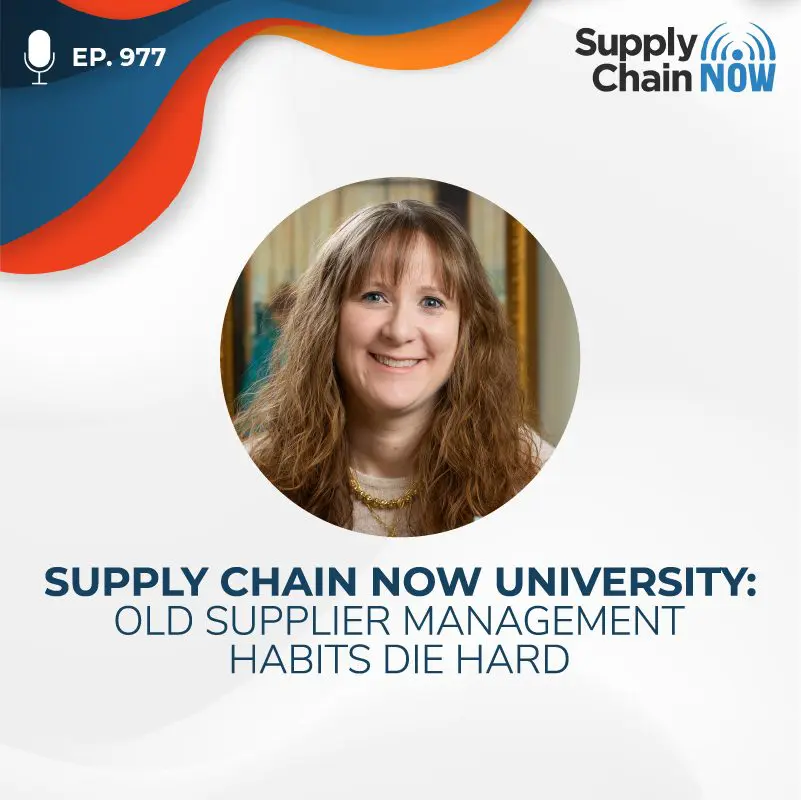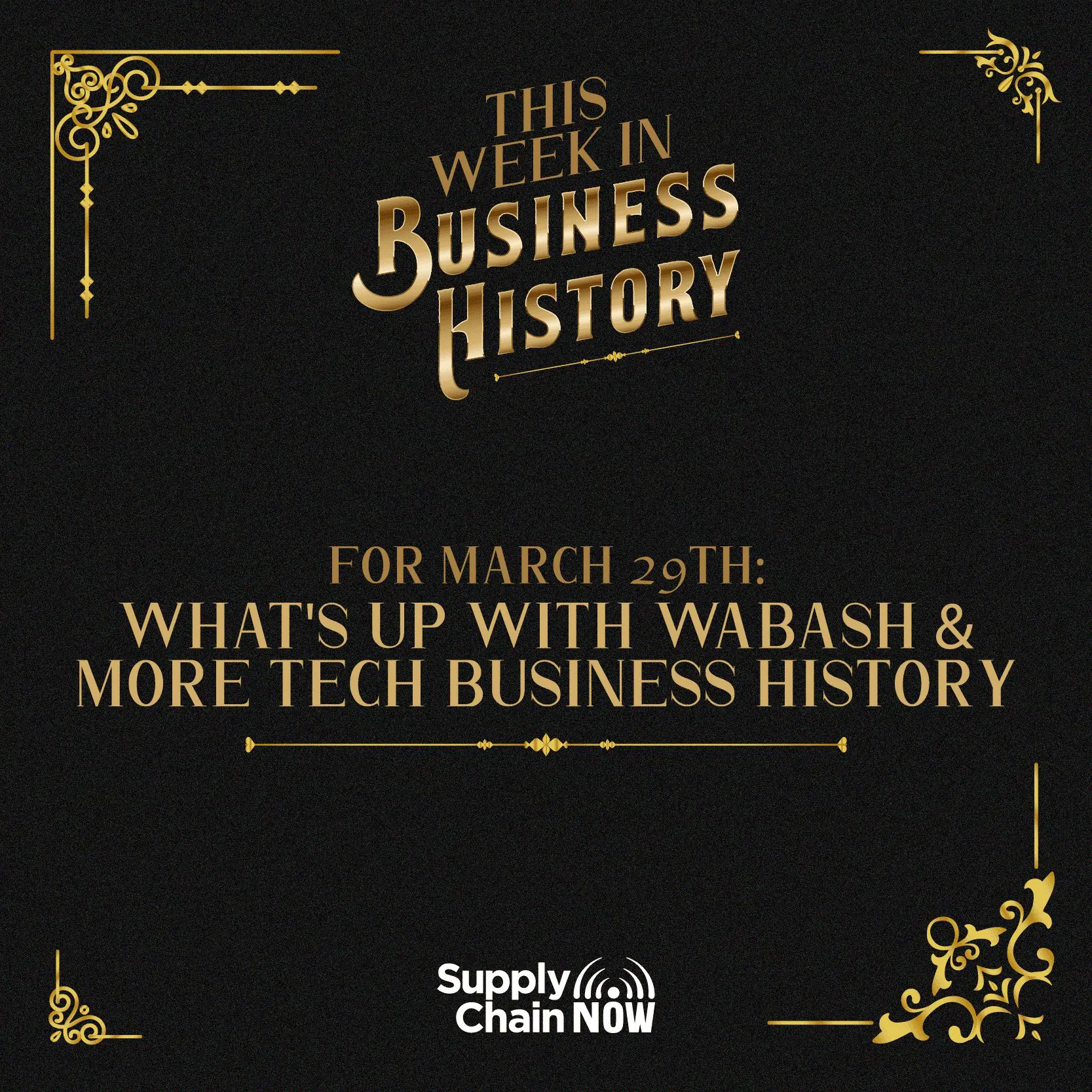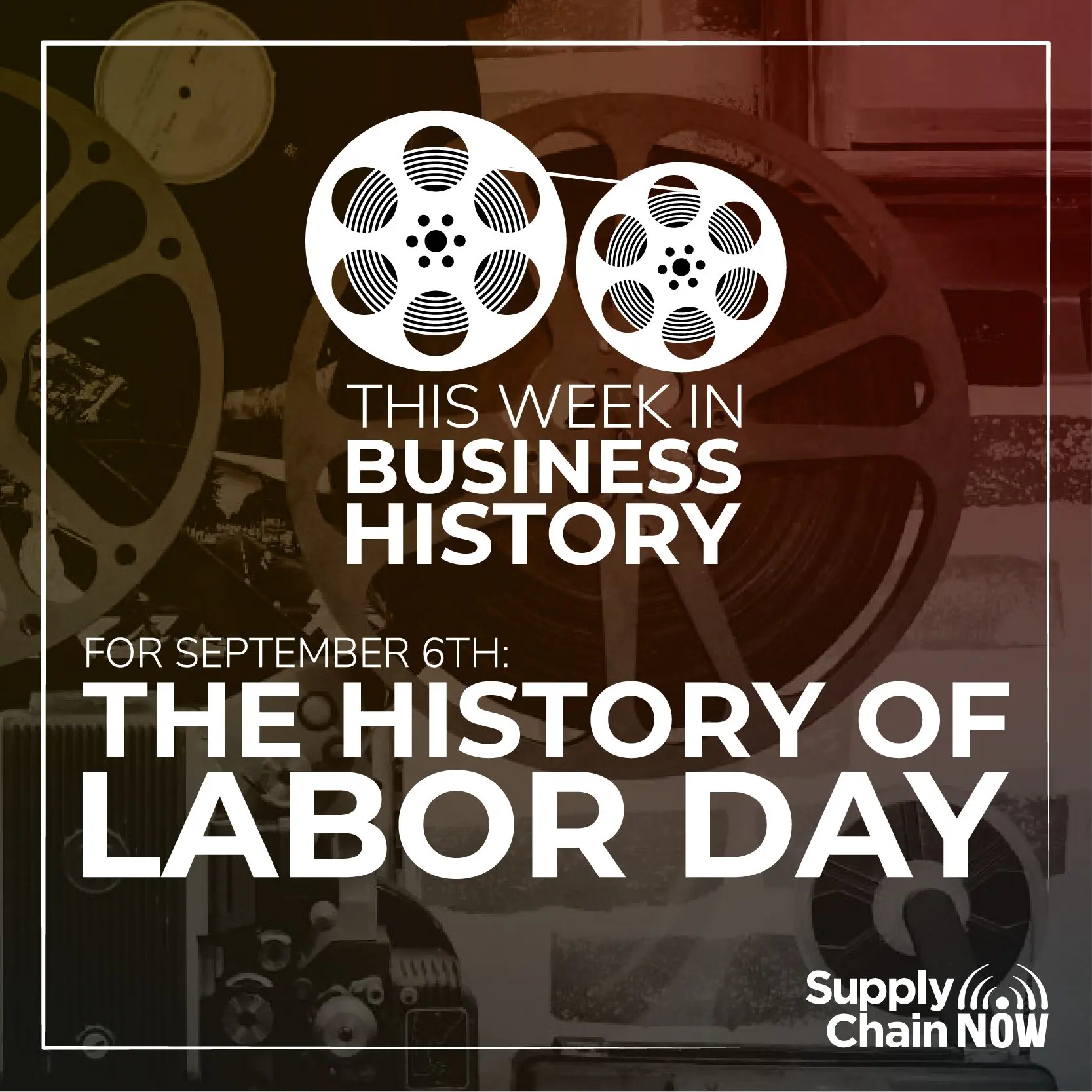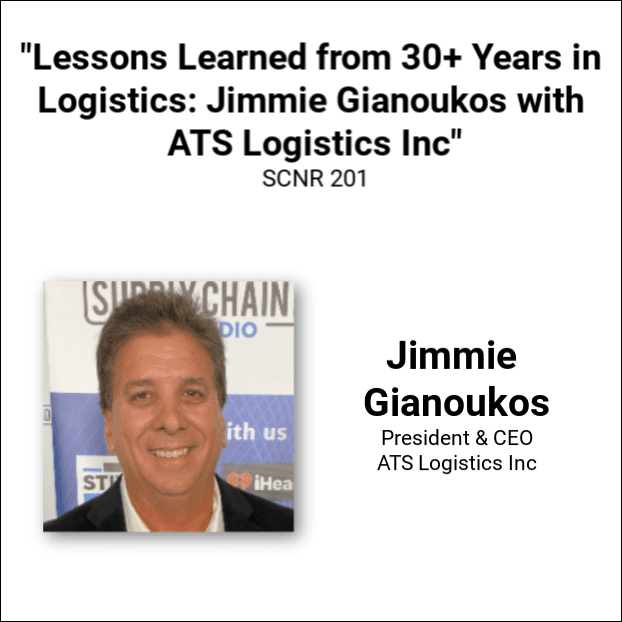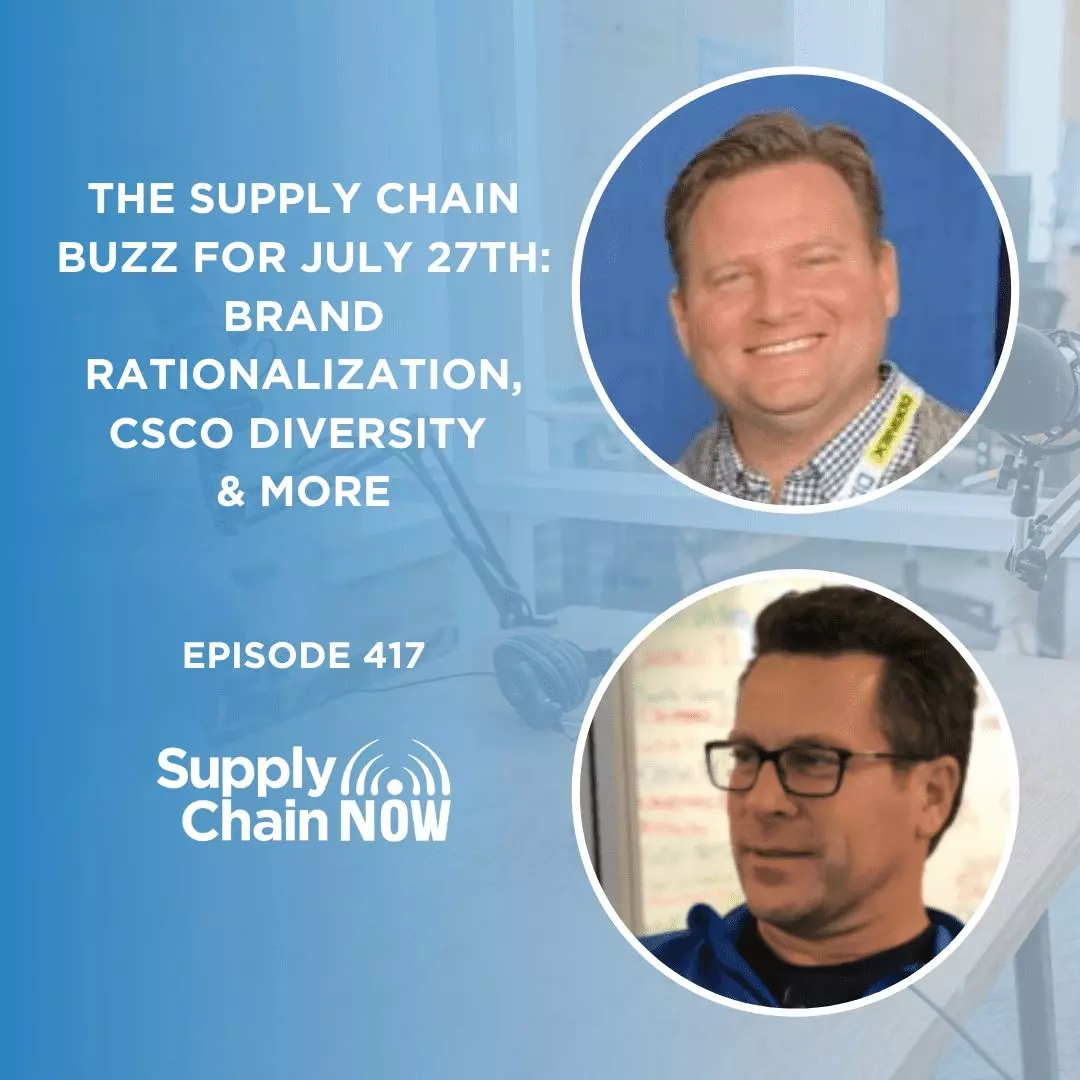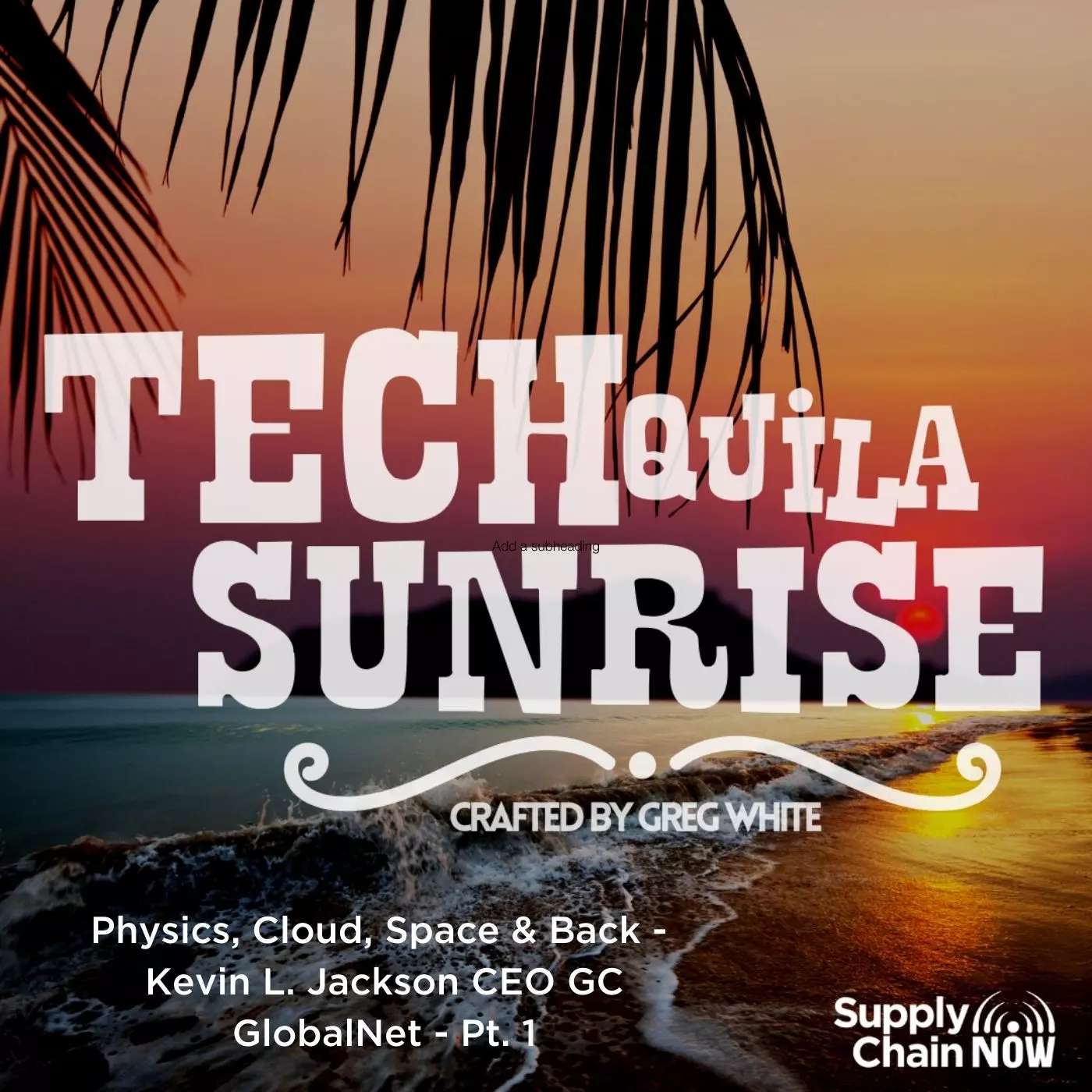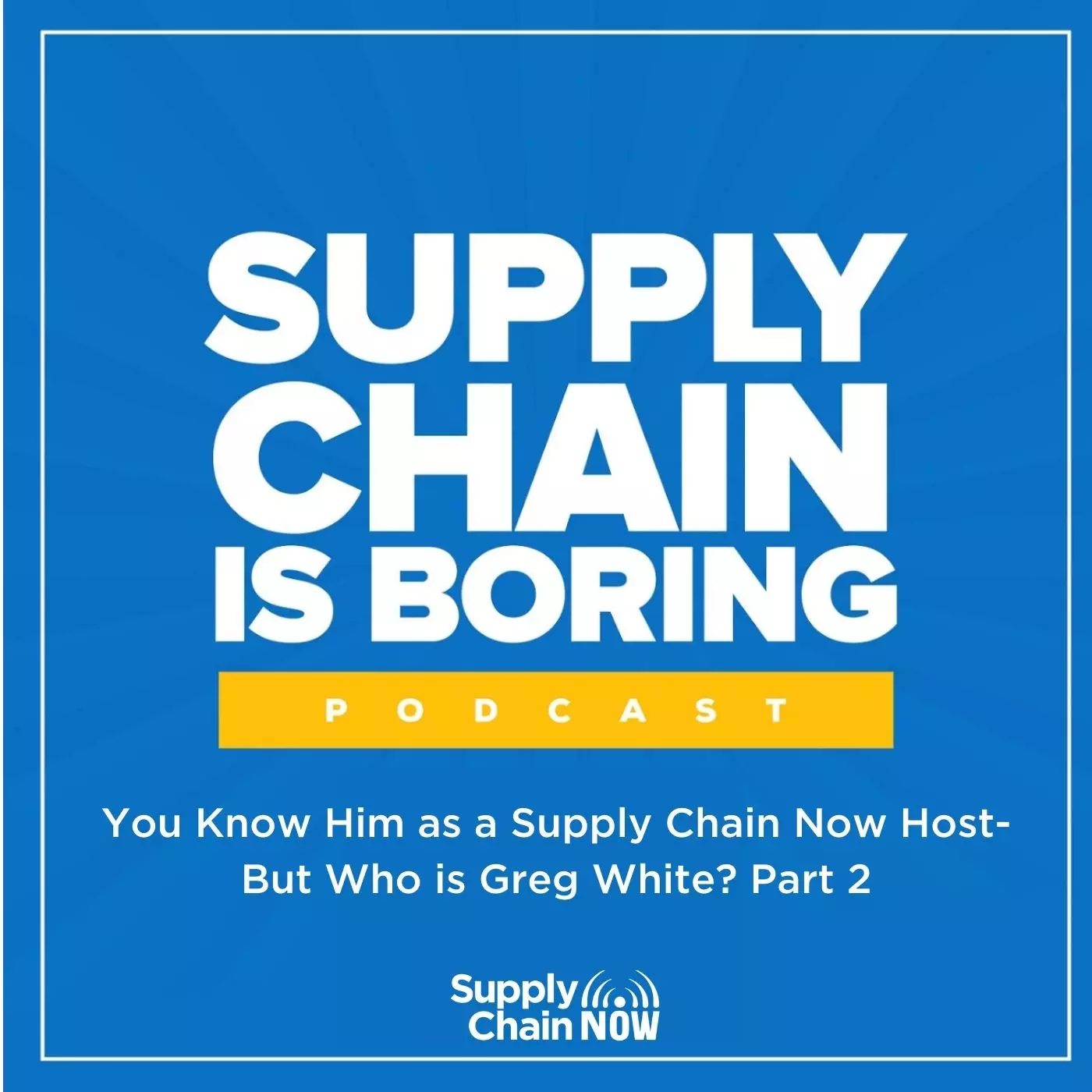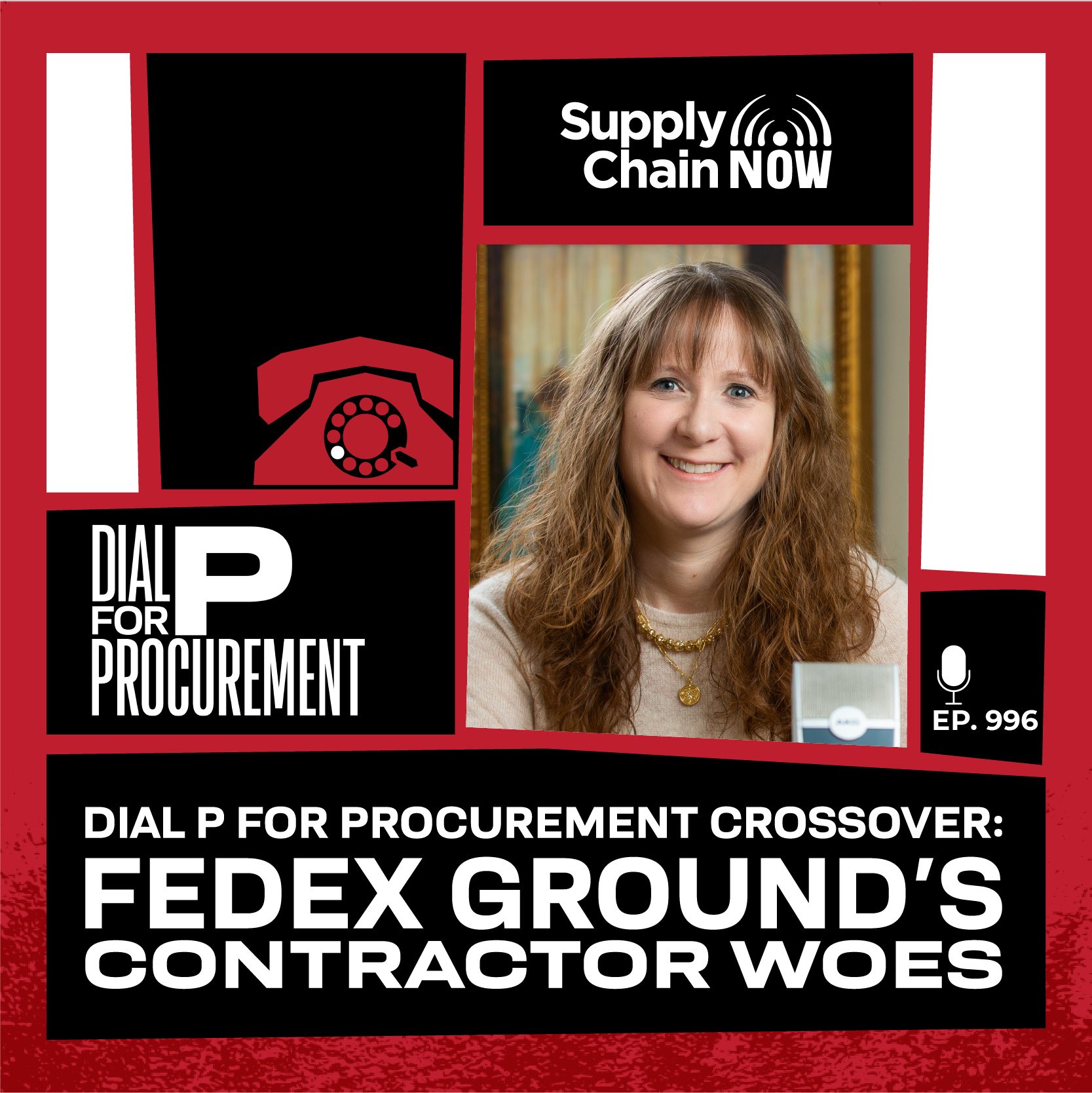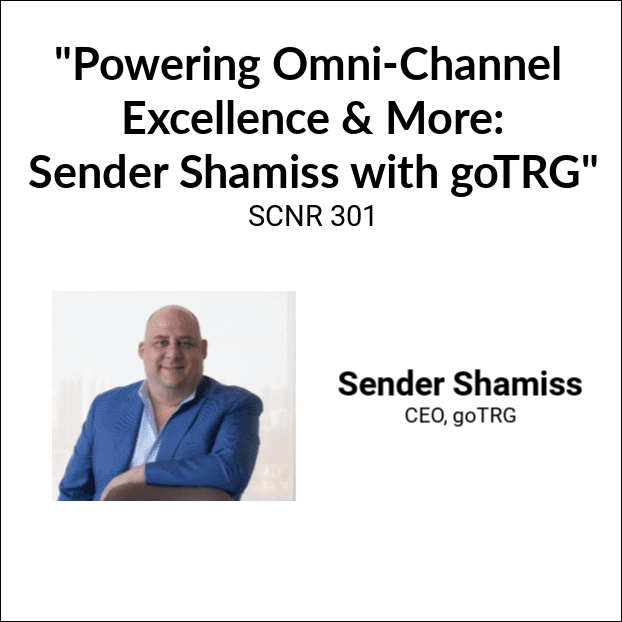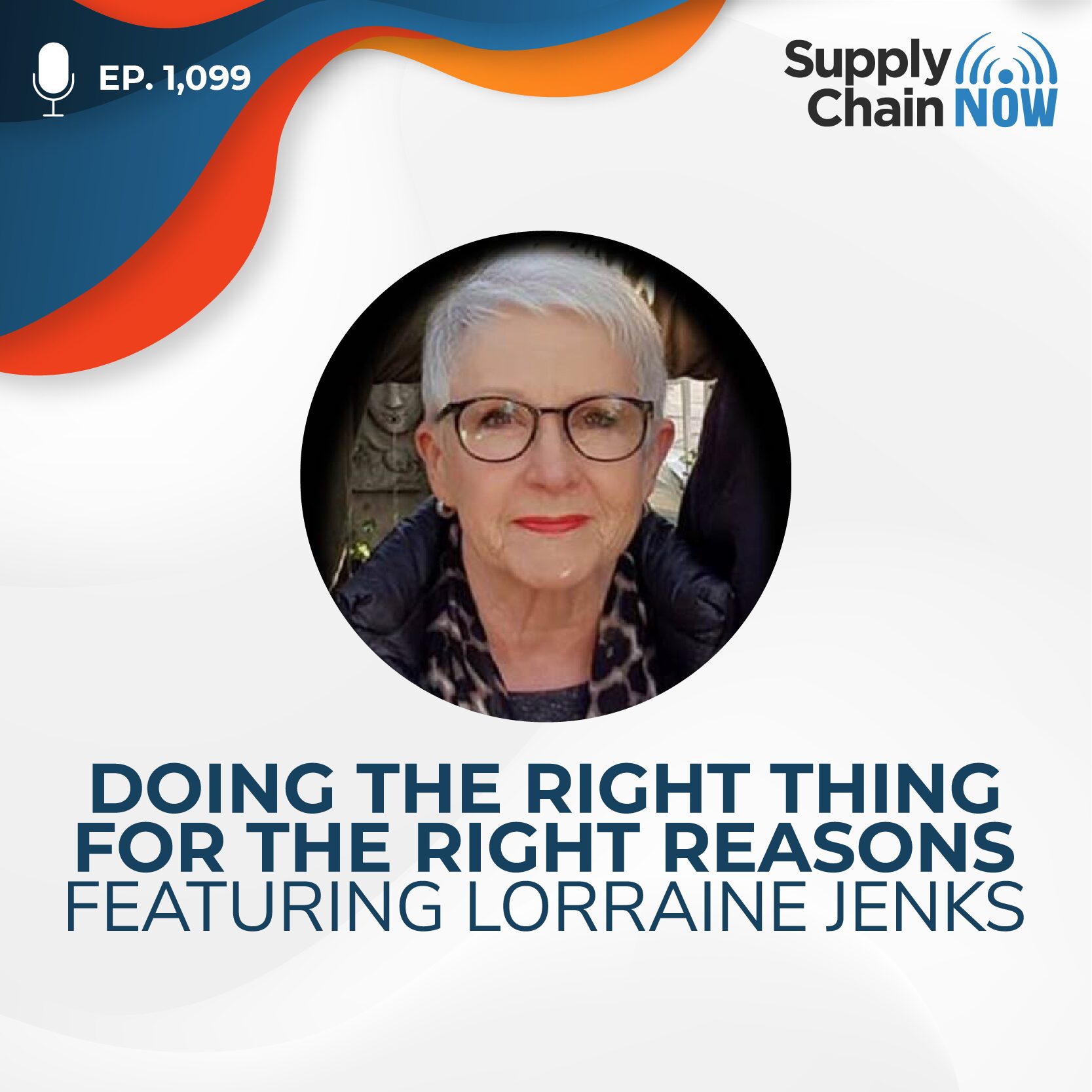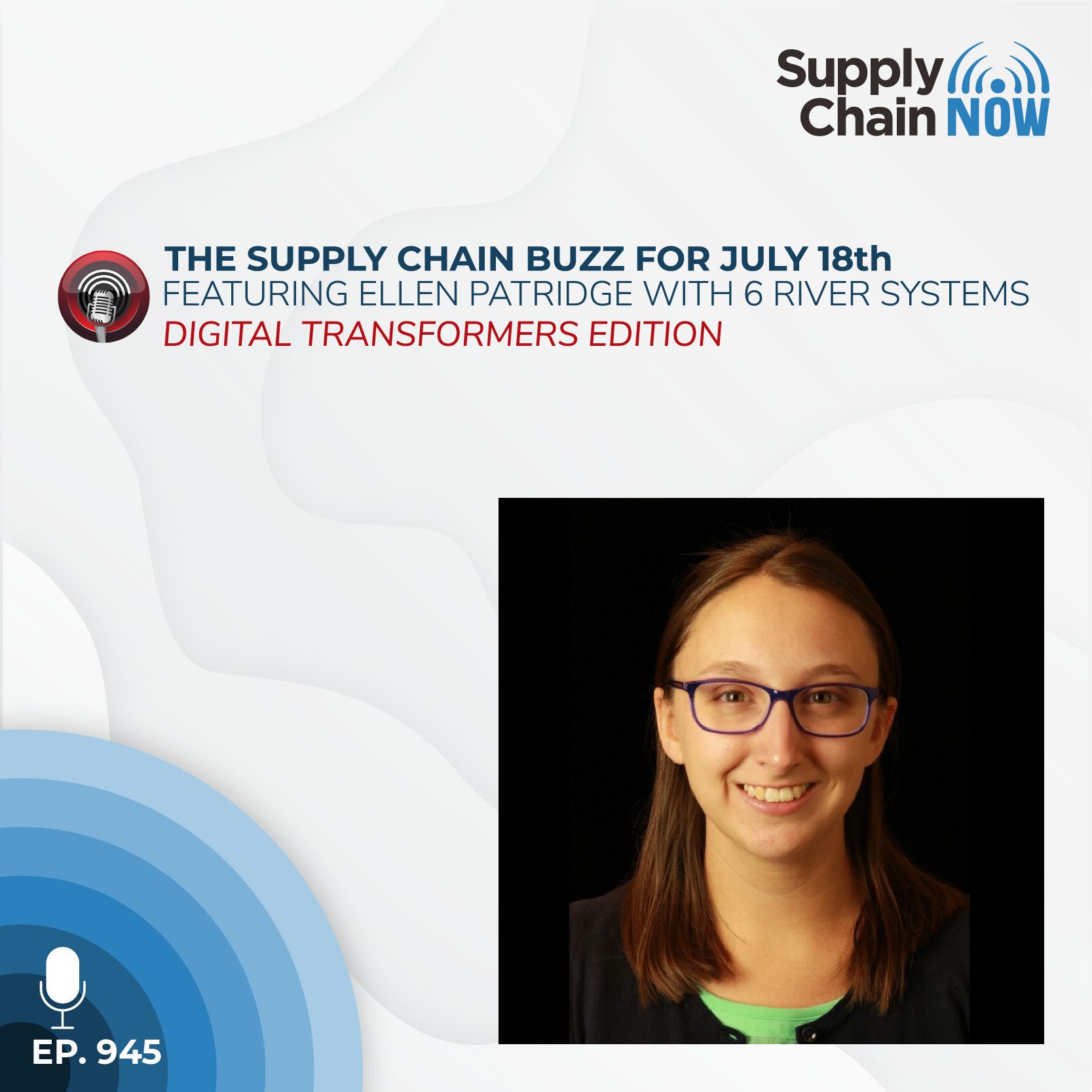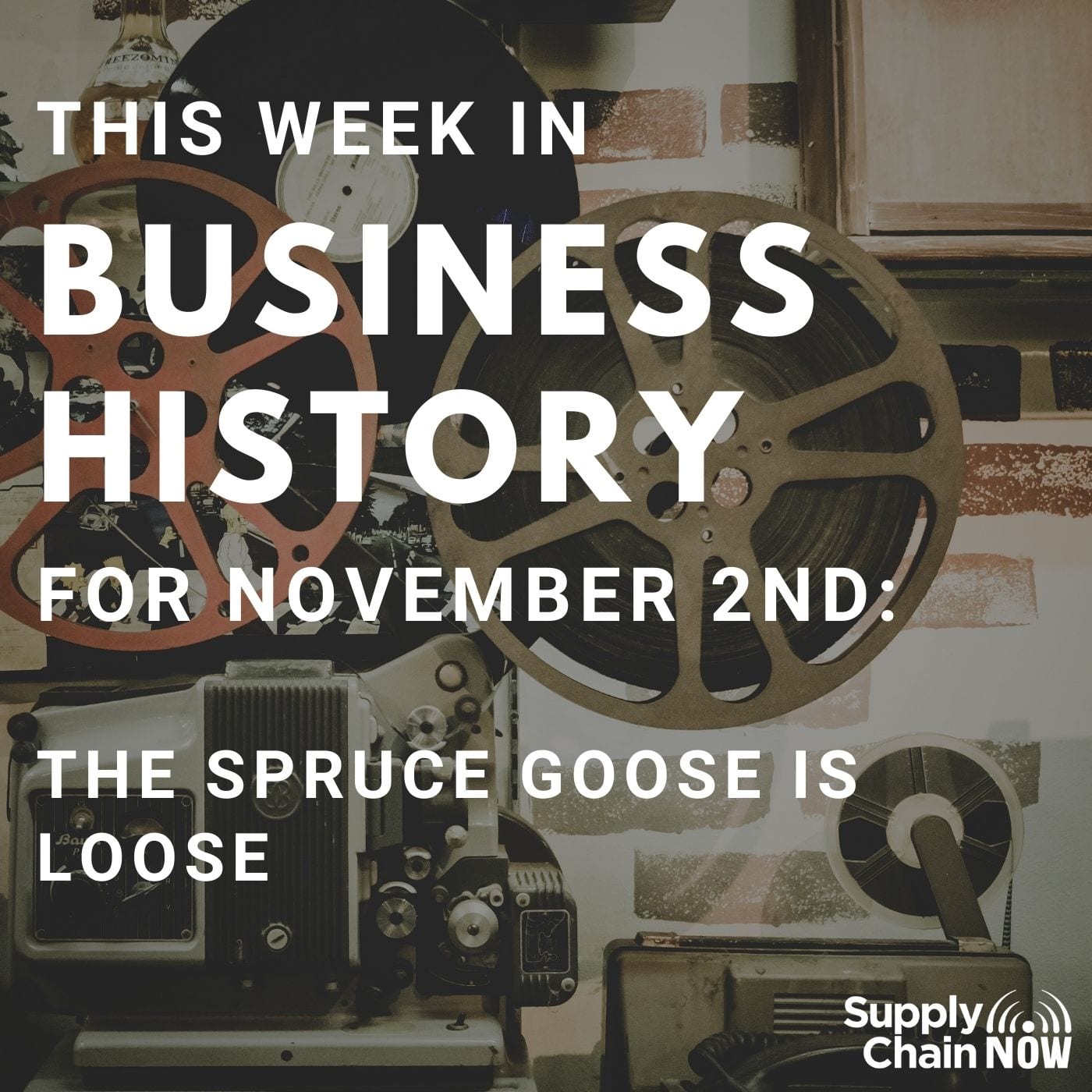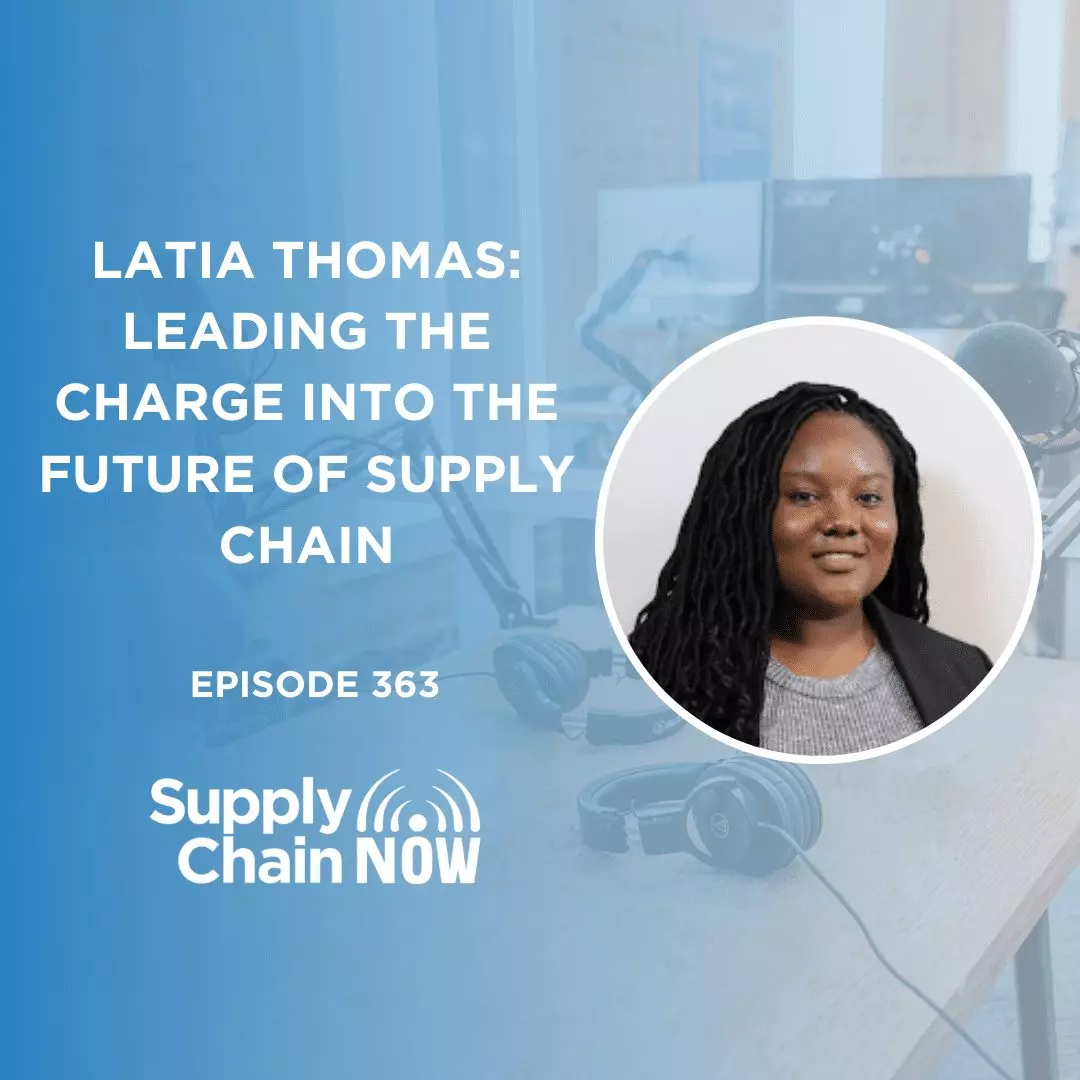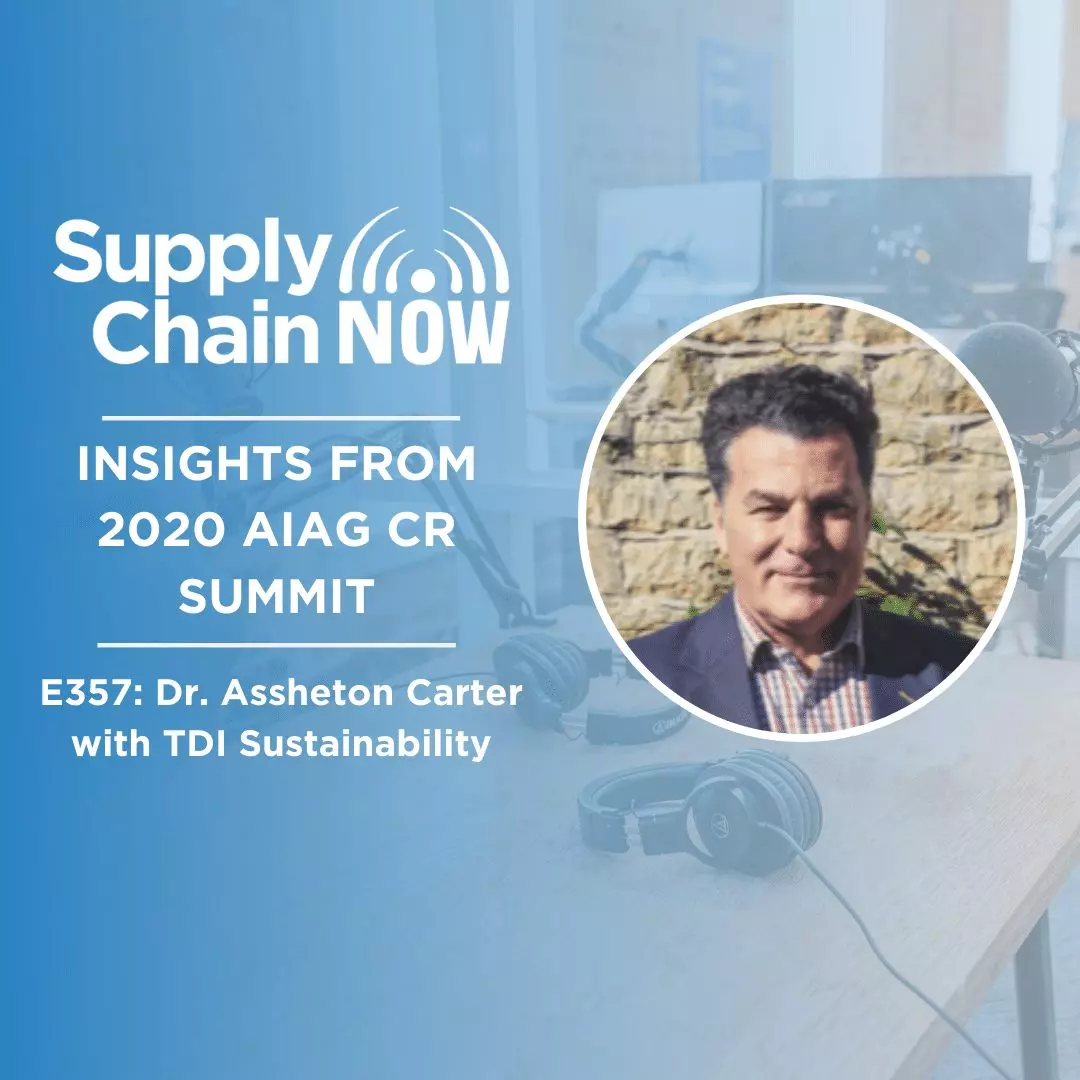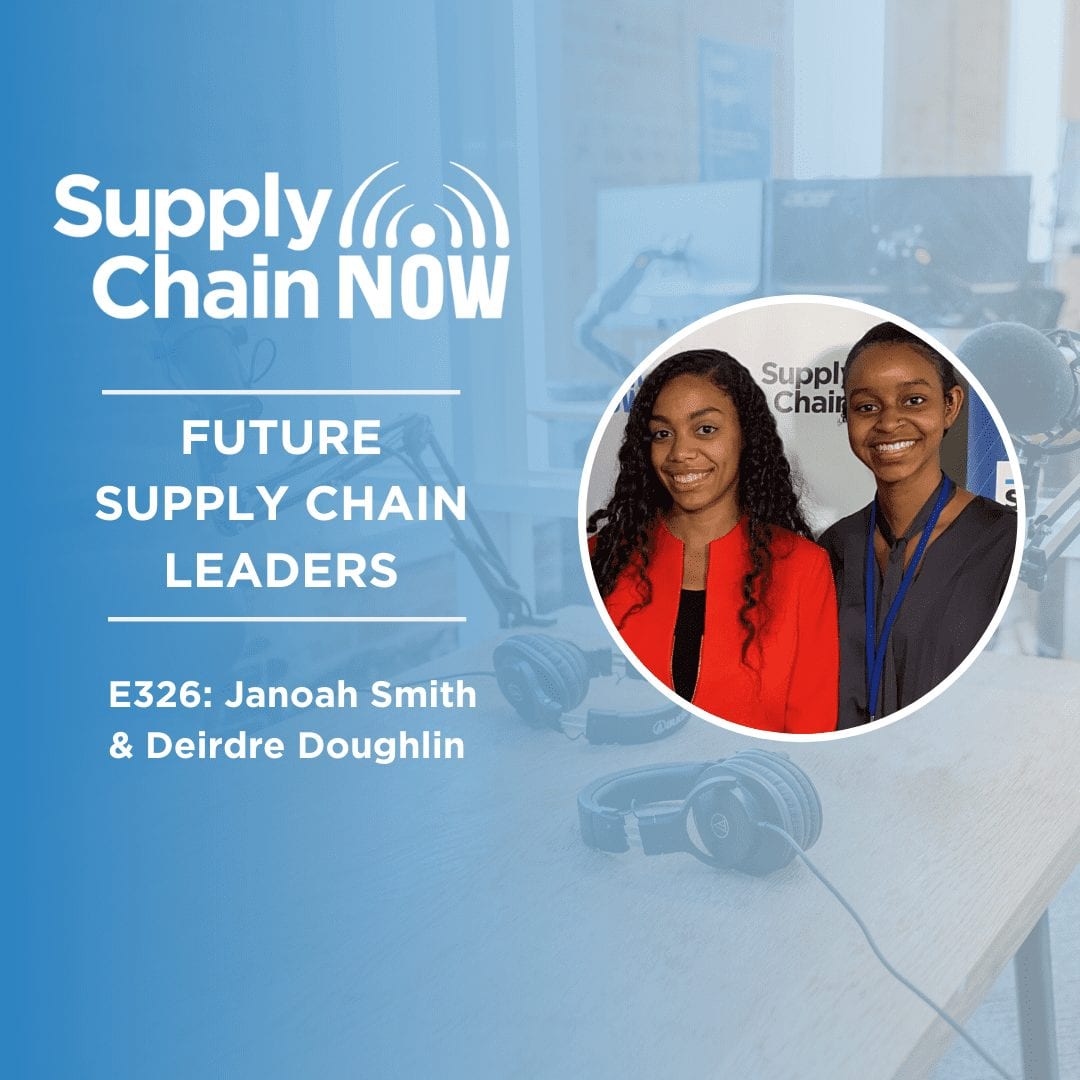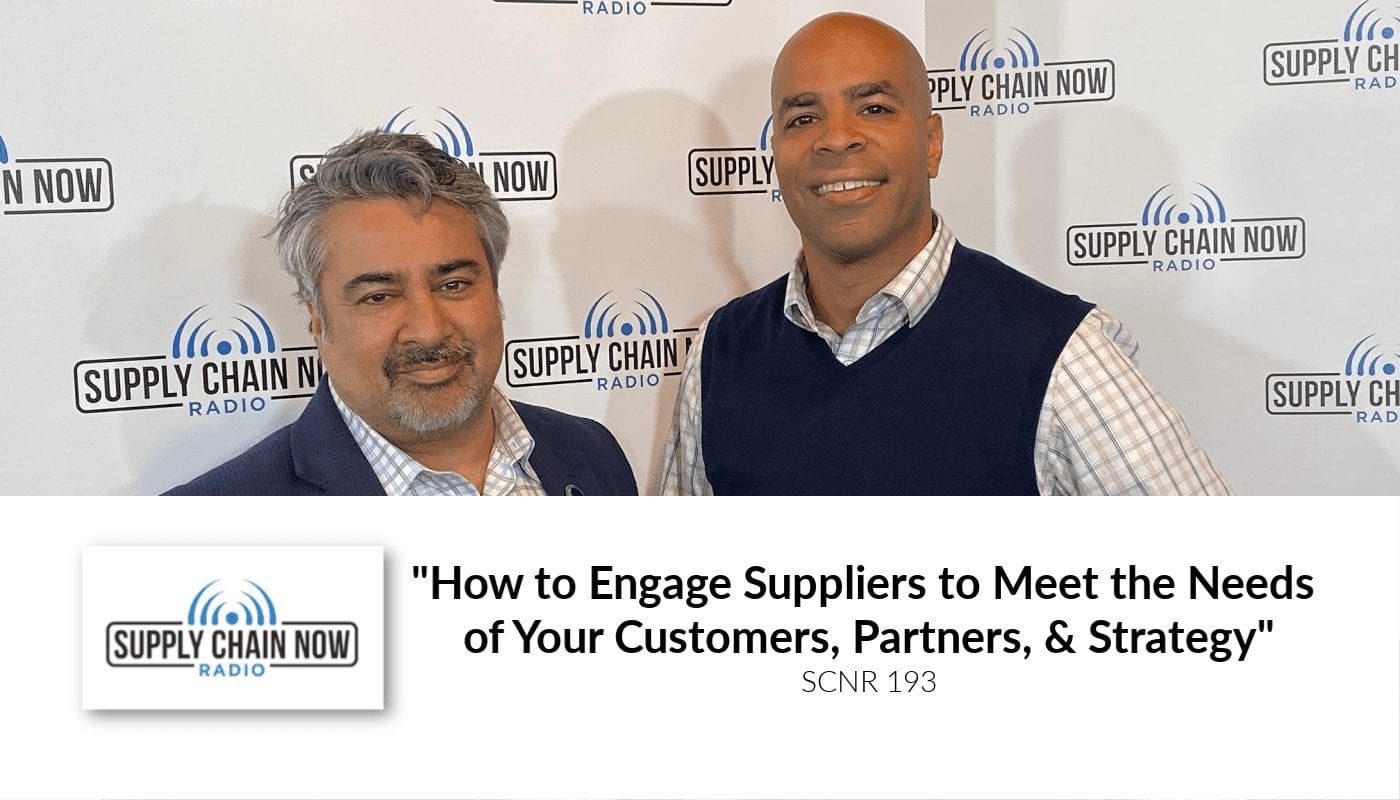
Episode Summary
In this episode of the Supply Chain Buzz, Scott Luton and Greg White welcome Raj Verma and Jonathan Townsley to the Supply Chain Now Studio.
Episode Transcript
[00:00:08] It’s time for Supply Chain Now Radio. Broadcasting live from the Supply chain capital of the country, Atlanta, Georgia. Supply chain. Now radio spotlights the best in all things supply chain the people, the technologies, the best practices and the critical issues of the day. And now here are your hopes.
[00:00:36] Hey, good morning Scott Luton here with you, Liveline Supply Chain Now Radio, welcome back to the show. So like all of our series on Supply Chain Now Radio, you can find our replays on a wide variety of channels Apple podcasts, SoundCloud, YouTube, wherever else you get your podcast from. As always, we’d love to have you subscribe so you don’t miss anything. So real quick. We want to thank all of our sponsors that allow us to bring best practices and innovative ideas to you. From Spend Management Experts to Verusen. The Effective syndicate Vector Global Logistics Supplychainrealestate.com anymore. You can check out our sponsors on the show notes of this page. Let’s welcome in my fearless co-host, Mr. Greg White serial supply chain tech entrepreneur, trusted advisor to many, esteemed guru to some.
[00:01:19] Wow, esteemed guru. Is that a promotion? It is. Yeah. Hey, it’s great to be here.
[00:01:25] I love this new studio. How do you do? Right. It feels like it feels pretty homey. You know, and we got plenty of space here. I can hardly reach these guys across the table.
[00:01:37] And you’re speaking about our two feature guests. Yes. Let’s talk about them.
[00:01:40] So, Jonathan Townsley Raj Verma, welcome to you both. Glad to have you here in Supply Chain Now Radio. Thank you, gentlemen. It’s a pleasure to be here. Thank you very much. Looking forward to it. Yeah. And it’s been really interesting learning more about their background. We’re familiar with Jonathan. Jonathan has collaborated with us on a previous webinar that was really well received a few months back when it was about 107 degrees here in Atlanta, all about procurement and procurement, leadership and whatnot. And then, Jonathan, you brought Roger here today. And as we come to find out, Raj, he’s a radio guru. He’s a goober. Yeah. Yeah. And did a radio show in Atlanta. Owen on sports. Yeah. Collegiate athletic. Yeah. College football. Okay. And so this can be ga both can fit right in. I’m looking forward to getting the getting secrets on your show.
[00:02:32] So but before we get there, Jonathan and Rod and then today to our audience, we’re gonna talk a lot about the ever evolving world of procurement leaderships on the best practices. So the initiatives of these gentlemen are leading to help organizations get better and change way they do business and engage or supply chain base and really just get thought leadership. Ω, Ω, Ω the space in general. So looking forward to that. Before we get there, we’ve got some interesting news stories lead off with. We’re bringing back out of the claws at some of the top things known supply chain now, right, Greg?
[00:03:05] That’s correct. And we are the lead off back by popular demand. Yes. I’ve had two launches in the last two days where people said, where are my three top things for them? Well, yeah, sometimes those three sometimes it was 17. Right. Today I’ll be three. It’s gonna be three. That’s right. We’ve got to give the people what they want. That’s right. That’s what we do.
[00:03:23] Absolutely. I like that. All right. So lead story news was made last week. IBM announced a big development in the blockchain space. According to Computerworld, Big Blue announced last week that their launch an IBM Sterling Supply chain suite. So, Greg, as you may know, the service is built on the foundation of Sterling B2B network and the sterling order management. Right. And amongst other things, it enables real time order tracking and shipment optimization.
[00:03:54] And one other quick note. When IBM acquired RedHat, you know, six months ago, eight months, whenever that was. We figured that there’s something really big in the works. Right. You don’t that’s a that’s not any small move. So this seems to be one of the big projects that might come out of that acquisition.
[00:04:12] I think, you know, they’re going after a 50 billion dollar market. And and to do that, they they have products that were previously branded and delivered independently. IBM, Blockchain, IBM, Watson, Supply chain. And then their I.T. offerings, they’ve brought that all under the Sterling banner to create one integrated toolset for addressing that. So big companies will have a place to go where they can leverage all of those things. So all of those. Previously marketed and delivered separately. I’m sure they can still be delivered separately, but those as a tool kit is a is really, really powerful. It’s good to see Big Blue. Mm hmm. Right. I mean, there’s still one of the biggest companies in the entire world, but that you don’t hear about them because they’re I think their CEO still wears a suit.
[00:05:04] So we don’t talk about CEOs like that. Right? No mock turtleneck. Yeah. Right. They don’t have a mock turtleneck or they were a Purple Rain T-shirt there.
[00:05:14] They’re busy making business happen, right?
[00:05:16] Yeah. Really? And and they are a great solution for the biggest of the big. And you know somebody you know who. Who could have greater resources in terms of science and technology to be able to pull all these technologies together. Yeah. Right.
[00:05:31] So it was it’s funny, though, you mention, you know, the IBM culture, right? Yeah, the culture with the suits. So I think one of the reasons that are kind of behind the scenes is in this new age of millennial apps and fast moving, they want to be projecting that they have a number of smaller firms that are moving at a much quicker pace than just the old IBM or the old G.E. or the old Westinghouse. It’s just that perception in the marketplace.
[00:05:53] Yeah, yeah, you’re right. But and they are making things happen. Yeah. Or the big players in the marketplace.
[00:05:59] Well let’s let’s let’s hear from one research director for IDC in someone else’s take on this on this development. So he went on to say how IBM is not unique in offering a multi-tenant cloud network for supply chains. But the company obviously has advanced a-r and blockchains components of the service more so than other vendors. Right. And he also was quoted as saying, quote, I think companies can leverage this with some other supply chain apps that they already have. So they don’t need to rip and replace stuff. Right. The value of any blockchain will be square of the number of users it has. So how you make those connections is really important that this certainly moves it forward in quote. And he was alluding to as it made some his acquisitions that they’re gaining a ton of users that, of course, powers the rest of the network. So it’ll be really interesting. Interesting to see where IBM, what’s next for this giant suite.
[00:06:52] Sterling had a massive following even before IBM. Bottom, right. I mean, they were a major, major player in terms of OMX and and B2B marketplaces. So, you know, there they are doing the right thing. And that’s you know. You agree. Simon, I don’t I don’t I think I think I think that there it is proven every day, if you ever watch sports, that that IBM’s predominant solution is a I not even blockchain blockchains relatively commoditized these days. And and there are lots of ways to approach it. I mean, literally open source ways to approach it. But when you blend the advanced A.I. that that IBM has and the other business problems that they can solve and the way that they can integrate that into solving those business problems as well. It’s hard to match. I mean, I’m pretty well-versed in what’s available out there from it from an supply chain technology standpoint. And this puts them, I think, head and shoulders above.
[00:07:57] Well, so quick programing note there on that last sentence, you just Sheer you’re gonna be kicking off a new technology Cathy Almquist series here in Supply Chain Now Radio.
[00:08:05] Yeah.
[00:08:05] Wherever one will get to learn exactly what I know we’re going we’re going to explore the boundaries of my knowledge. Vulcan by email exac.
[00:08:14] Well, we’re looking forward to that as we all know. Sydnor to the table technology. Supply chain doesn’t happen these days without a heavy emphasis on technology. And this is really a neat development and we’ll see where it goes from here. But you’ve got a couple a story.
[00:08:25] Yeah, a couple of your sleep. Couple interesting stories. September retail sales were up depending on how you compare it. I love when we get statistics as as the great Mark Twain said, there are lies, damn lies. And then there are statistics.
[00:08:40] So depending on how you compare it, depending on how you compare it, retail sales were up 4.1 percent against the previous month, August and on or off three tenths of a percent. So sorry. Off three tenths of a percent compared to August, but up over September of last year.
[00:09:00] So a little bit of a mixed signal, which we seem to be getting from a lot of things in the marketplace. I mean, I think people think things like the the stock market is down, but it hit another record earlier this week. People think we have a you know, we talk a lot about the transportation recession, which is true. You know that that’s undeniable. But at the same time, it’s more of as I think we talked to the president of Roadrunner Freight Rice. You know, it’s more of a excess capacity because they built expecting the same capacity that they had in 2018 and 2018 was a boom year. So we’re still getting a lot of of. Mixed signals in terms of the economy here, I don’t know. I mean, I think retailers what I’ve read is that retailers believe that this year’s peak season will be higher than last year. Definitely in around three in around the 3 to 4 percent range.
[00:09:58] And we in a there’s a majority of analysts a degree, and they are predicting that we’ve covered that in previous shows. So that’s good news. And we we’re only good news. Right.
[00:10:07] I love I love it when analysts predict things, as Rod knows, having been in the sports world, there’s nothing better than being a predictor of things because you’re never held accountable.
[00:10:16] Exactly. You move off your money. Nobody.
[00:10:19] It’s interesting because I know we’re going to an election year and there’s not about a political discussion. But, you know, with the current turbulence within the trade discussions that are happening and the intersection of the election, and then you’re taking a look at some of the tariff deals, that’s a unique Propp unique time that we’re living through. And then, you know, we’ll talk about it later. But I I spent usually my fourth quarter talk. A number of number of CEOs and CFO is in terms of their cash management going into next year, who’s holding on to cash was not right. And as we’re all aware, the biggest thing is turbulence and versus being the status quo, having that equilibrium effect. Yeah. And sometimes they don’t care who’s in office and what’s being done as long as they can forecast, well, 18 months out.
[00:11:05] So I think for us it’s how stationary the markets and what’s coming out of D.C. is. Over the next three to six months I’m going to get Gage what twenty twenty looks like.
[00:11:14] Yeah. Excellent commentary. We’ll put Jonathan in the comments or around the season and you want to break out your crystal ball and give us your prediction since there’s no one.
[00:11:26] Yeah. I swear I’ve never been successful in any of these types of predictions, so I just stay away from it. And let let you experts take it. Thank you very much. Let us embarrass ourselves.
[00:11:36] Hey. So he’s here. It depends. Are you shorting or are you. He’s the one making money. Where? The one making him. There you go.
[00:11:44] So you led off that segment with one of your favorite, Mark Twain quotes my favorite, Mark Twain, quote, is a man who carries a cat by the tail, learned something he can learn in no other way.
[00:11:54] I think we have it. So. So he’s clearly carried a cat by the tail, not to not to make predictions.
[00:12:02] I made a visit to Hannibal and saw the Mark Twain a state and learned quite a few of those quotes. So. Yeah, yeah. But that’s one I hadn’t heard. So I’ll remember that.
[00:12:12] It’s so universally applicable. I’ve found so. But especially is not. Nor Gregg.
[00:12:19] I have one more. Yeah. So you know that we we really believe in sustainability in in the supply chain and we’d like to promote that as much as we can. Additionally, to quote one of our Supreme Court justices, I like beer hand. And so so I saw this article and I thought it was fantastic. Carlsberg and a delicious Danish beer is debuting a sustainable paper bottle. So how about that? So, yeah, I don’t know.
[00:12:51] Yeah. Yeah. I don’t know. I mean, you know, I eat it.
[00:12:54] I eat it Teds a lot and they use sustainable paper straws. And instead I’ve just learned to drink like a grown up from the edge of the glass because I can’t stand up.
[00:13:03] I’m an accidental environmentalist. I don’t really use straws since I’m twelve. So you got a pilot. That beer. And tell us about, you know what I think or bottle. It’s going into prototype. So obviously they’ve got some work to do.
[00:13:14] For the record, we will prototype any beer that anyone would dare you, son. Yes. We will officially taste it and get you back. Feedback. Yeah. So.
[00:13:23] They have two different prototypes. One’s lined and one’s online. So they’re going to book. But even the line one is lined with recyclable materials. So. You know, again, the Danes leading the charge in terms of innovation in in sustainability. Mm hmm. They love doing that. It’s you know, I mean, it is they are on the outer edge of all things sustainability. So fantastic that they do that. And I can’t think of a better beer. Yes. I can’t think of a better excuse to drink Carlsberg.
[00:13:55] Will they be unveiling this at Davos? Maybe that’s their BD or something. Right.
[00:14:01] That’s so they they have not set a date for release yet, but they are you know, it’s part of their ongoing initiative.
[00:14:11] Paper bottles, medic and faxes, some beers. This Lu, it’s work like that.
[00:14:16] What’s a fax machine? Yeah, maybe a carrier pigeon. I don’t know. Yeah. Honey Express. Right. Drone. Yes. All right.
[00:14:25] Anything else from the news desk and Mr. Greg White? What more could we need? That’s after that. Wrap it with beer. Yeah. Well, we’ve got two very interesting guests here today. Looking forward to diving in to their personal journeys and they’re in their thought, leadership and insights on and really not just procurement, but. But. Supply chain the greater supply chain in general, so we’re going to start Jonathan Townsley as we went to kind of paint a picture for our our audience of our our guests, tell us more about yourself and your your personal and your professional journey.
[00:14:56] Thanks, Scott. Thanks, Greg. I’m Jonathan Townsley and I come from the great city of St Lewis, but I’ve lived everywhere throughout the world thanks to some great opportunities I’ve had with large companies like Ingersoll-Rand and Eaton and even working with some smaller companies based out of St. Lewis and elsewhere. So I’ve been able to meet other people from other cultures, learn how they’re doing business and enjoy their food, enjoy their drink, which is always great. I come from a bit of a diverse background and that yeah, I I have a Russian wife, so we get to go to Russia quite a bit, which is always great, especially if you if you like vodka and if you like history. I mean, it’s a great historical culture, beautiful architecture. Yeah, absolutely impressive and fantastic. I actually was raised in a sort of a mixed household. My my father of Serbian descent, mother of Lebanese descent. So it got a lot of great food in the house. But we always had some super staples like White Castle and.
[00:16:04] And thank you for supporting Wichita, Kansas. Yes. Yeah.
[00:16:08] You can’t you can’t really go without that. That’s that’s a more so. But I really have enjoyed where we’re procurement and supply chain is going now. And it’s really helped me to get closer to my global roots and to meet more people and help them succeed. So it’s been a fun time.
[00:16:28] And currently, you don’t like consulting with a variety company, is that right?
[00:16:32] Yeah. For the past year now, I’ve been working on various consulting assignments in the financial tech space, in the retail space. And what I’ve learned, even though these are different industries. I’ve learned that the people that are going through procurement change and procurement initiatives, they really want to find new ways of doing business, new ways of creating value and getting closer not only to their customers, but also helping their their employees and their team members learn and to grow so that they could ultimately do better themselves.
[00:17:10] I love that. Hey, can I ask just for our listeners? Can I ask just a really foundational question? So give us your definition of procurement.
[00:17:18] You know that. You know that it gets it off.
[00:17:21] It often gets mixed up with purchasing or sometimes inventory planning and replenishment. So I just like make sure everybody’s on a clear footing here.
[00:17:30] Yeah. So, you know, people ask me that all the time and they say, well, what what is supply chain? What is procurement? The first thing they say, are you sending out a purchase order? I said, well, yeah, I have done that before. And they ask me, are you moving something in a warehouse? I said, Well, I’ve done that, too, but that’s really not what it is. Actually, it’s about change, especially in today’s business. It’s it’s doing something outside of what you normally would do. Sending those purchase orders and moving a piece of material from point A to point B, it really is getting closer to your customer, getting closer to your teammates, figuring out what’s important to them and helping them to execute it.
[00:18:14] Yeah. Love that. Love that. You know, I think it’s so important to keep a broad. You can’t pigeonhole things, especially in the Indian supply chain these days and especially with the role that procurement leaders have globally. Right. Every organization out there, especially in the in the retail space, which one the sectors you mentioned are looking for ways to get more value out of their their Indian supply chains and in a progressive view and procurement like can we just laid out there so critical. Right. It’s not about doing business the same way we’re doing it in 1962 or 1992 even. Right. So I took that away from our webinar that you that you were featured on. And really great to have you in studio Sheer in the same perspective. So a switch gears here. Raj Verma. Let’s dove into more about your personal and professional background.
[00:19:04] I appreciate. Thank you, Scott. You bet. Greg, really appreciate you here. Great to hear. Jonathan. So after hearing Jonathan’s exploits, I feel like, God, I’ve never moved anywhere.
[00:19:13] Thank you for making me feel that next time. God, please introduce you first. Sorry.
[00:19:19] I almost feel like a boring, boring people. Boring.
[00:19:21] I’m like the I-75 kid, grew up in Michigan, spent a stint in Ohio, then went down to Florida for grad school, kept moving south and I realized I-75 ends in the ocean. So I had to start moving north.
[00:19:33] Did a stint in D.C. and now in Atlanta. My path in the corporate career world is kind of take on many, many different junctures.
[00:19:44] And for all you kids listening, there’s more than one way to get ahead. So even though your parents tell you you go to Yale or Harvard or Princeton, trust me, you can go anywhere. Yeah. So ironically, I was in real estate back in the early 90s. So really different path, you know, but cut my teeth in real estate, in homebuilding market, tanked. I was in central Ohio. So what do you do? You start opening up business books. What if somehow I got an A? There was a small company called MCI. You guys may have heard about it. It was going through some troubles and it ran into somebody who wanted to kick off a telecom splinter company that was going to potentially do get into online. We’d even know what online was. They said, hey, can you do marketing? Okay. Sure. That led to going into business school. So when I got into business school, I always had a thought they’d get into consulting, you know, take a look at McKinsey, Boston, Bain. Hey, get out there. Change the world. Then there’s this thing called Six Sigma. Mm hmm. Yeah. I had a guy by the name of Jack Welch had usurped from Motorola. I can say that now, since I don’t work for Jack.
[00:20:44] Yeah, nobody works for Jack. Right. No, exactly. I can be careful. I know he might be still. Yeah, but that doesn’t mean he’s reached his company. So you’ve been added to the list. Yeah. You’re on the list. Trust me. Have a listen. Sheldon Reiser.
[00:20:58] So I signed up for this thing called Six Sigma, not knowing what it was other than, you know, derivation from the mean. And so I was in the G Six Sigma program and they said, hey, how would you like to go to Fort Myers, Florida, and deal with something called freight logistics? So I’m like, okay, I don’t know what supply chain, freight, Logistics and Six Sigma. All three things I’m learning by the fly. So so that was my entree into this world. So I ran freight Logistics and negotiations with a number of the largest carriers and for every mode you can imagine for G E for a while. And what I learned is. I thought I was a great negotiator. But the reality is you got this, you know, 500 pound wrecking ball behind you. And we could give offline discussions and how those negotiating events went and see how much they brought me to Atlanta to G here and running interact. And, you know, from there I joined one of my my suppliers in the early 2000s to help build a BPO than a managed service practice within Supply chain. And then just recently from that majority company met Assis.
[00:22:10] We launched a spinoff startup called Koper Care and very excited at the number of his X procurement guys got in and we saw a gap in the marketplace. And we’ll talk about this later specifically as it relates to spend management and getting more suppliers to the table.
[00:22:24] So we launched a tool that hopefully one day. Greg, I’ll be honored. Now, since we’re in a town that if if you’d give us your feedback on it, but basically it’s focused on the tail at the Fortune 500 level and it’s to mitigate risk.
[00:22:39] You know, from that standpoint, we can get into more and more details later.
[00:22:42] But we’ve been doing for about three to four years and that has taken me now from where I was on the other side, you know, being with corporate America now being a supplier, a consultant and advisor to a lot of the firms and. Right. And from a personal perspective, it’s even though it’s allowed me move around our headquarters here.
[00:23:03] So my family is centered here and, you know, growing up in Atlanta and they’re they’re hardcore Braves and Bulldog fans. So they’re a little upset this week.
[00:23:13] I can see a rough week.
[00:23:15] Rough week. Yes, rough week. Well, in the course, Jonathan’s a cards fan.
[00:23:20] So, yeah, you know what? He was he was very gracious. He was very gracious. Almost RLJ the card still playing, by the way.
[00:23:28] They were put out of their misery.
[00:23:31] Well, he was very gracious. And you will hear what was in the studio earlier this week and also very gracious. But yeah. Tis the season, right? Moon and World Series. So Raja σου procurer when the Jerai launch platform.
[00:23:45] The platform was launched 2016. And we were you know, it’s it’s interesting, there’s a fine line between spinoff and startup, right. So just kind of even a little bit of background messes, which is a technology services provider that also offered all of a sudden because of me and a few others, we started getting the procurement supply chain space, you know, because of our relationships with a number of the firms. And we started going down, spend management and providing advisory services, then full suite of strategic sourcing.
[00:24:15] And then all of a sudden we’re like, oh my God, there’s this gap in the market specifically on tail spend that’s nobody’s touching. And I have relationships with the large players, SRP or Oracle, a Ryba coupon, all the money we’re gonna get to it.
[00:24:28] 18 months we’re going to get to it. Eighteen months. We got to get to it. HMTX and we go at this pace. I’m going to be it. I’ll be retired by the time I get through it. So took some seed money from the parent and some other investors.
[00:24:39] And a few CEOs got together, said, hey, great, there’s nobody doing this. There’s nobody doing doing tail management. So launched our platform. We have gone live with a number Fortune 5s and a few private equities. We roughly have three and a half billion SKUs on it and it does both product and service. Three and a half B.
[00:25:00] Bill Bai’s as in. Yes, exactly. So so define tail default.
[00:25:08] I’ll give you the business terminology. That tail has many definitions into Webster’s dictionary. We won’t go there. So tail span, not a sports show you can’t get away with.
[00:25:18] Go. I take it away. You’re talking about Danish beer earlier and the swinging pads.
[00:25:24] So tail span as defined by chief financial officer of cheap procurement officers. Is that part where 90 percent of your traditional suppliers make up roughly 10 to 20 percent of your spend? So if you take a look at the growth curve, because the traditional focus in Fortune Five and we can even go further, Global 2000 is their strategic partners, those ones that focus on providing the goods and services to help me get my product out the door. Right now, if you take a look at Jake GM, we’re both favorite Ryder But-But Royte area. They know down to the incremental penny that’s in that car. Right. I mean, digga, whether it’s a Chevrolet Corvette, whatever they have. They know down a penny. But then you start getting into the MRO to build it, the factory floor, their operations, then the thousands of dealerships they have in the different locations. You know, you got landscaping, your janitorial, you got facilities, good I.T., you got marketing advertising of all these things. And what traditionally happens is in a decentralized environment, even a when you’re strategic, as you’re trying to be and you’ve added suppliers in your supply chain, eight businesses are more nimble out there these days. They have great ideas and great products, but they don’t have the time to work with the centralized procurement office and the internal line of business doesn’t.
[00:26:38] So what happens? And that’s no fault of our. I want to be very careful. What I’m saying is not a malicious thing when we talk about leakage or Maverick spend her tail. It’s just the nature where water flows. It’s the easier path. So if I’m sitting in the headquarters office, I’m not making cars and I need to go out, get a new marketing agency. We’ve acquired a business and I can’t find somebody that’s got the right pricing or the right type of agency relationship. I might just pick up the phone, give my purchasing heart, boom. I’ve added that supplier or I might be sitting in L.A. I’m a dealership. I’ve got a new dealership, I’ve opened up. I need 50 new employees. What I do, I can’t get hold a guy in Detroit to find out who can supply me here. I pick up the phone and call John down the road. He gets 50 people. Yeah, yeah. What happens over time? I’ve added 100000 suppliers that have not been strategically vetted jerai mitigation of risk. Think about those two things. Today’s environment costs are important.
[00:27:30] You know, when it happens and I’ve done so many advisories where somebody might be in company ABC as a strategic contract, but when they’re all over the platform, all over the country, they’re charging premium pricing.
[00:27:40] And then when you have people who don’t have contract, you’re paying 50 percent more. So the struggle for CFO is is from their standpoint as risk in a global environment where we’re going today. And I was at a risk forum just recently talking to legal and CFO is is that, you know, you’ll hear some people saying, yes, we are strategically sourcing. We have once single source. That’s a disaster. Right. And then if you have a thousand suppliers and you haven’t managed risk because that vendor can go out of business anytime. Have you seen their finances or, you know, talking discreetly? We could be dealing with some countries that have certain regulations and due to their relation, the United States you can’t work with. Right. And they’re part of the supply chain and we’re not even aware of it. So the tail is that mixture of risk as well as hundreds of thousands of suppliers haven’t been properly vetted that we address. Yeah. And through our solution, we make sure that we’re doing with compliance risk and cost savings. And then the final takeaways, which we can talk about later, is how do we provide innovative suppliers in that mix? And they kind of represent the changing demographics of the United States.
[00:28:47] Now, the. Great. So it’s it. All of that occurs for your top suppliers. Not so much with these similar. Yeah, smaller. Yeah. Provide a menu of services or or or the menu of services that the company needs. And as it’s cast about the country or the or the world, you naturally lose control over that. Yeah. That’s great to get it. Get a grasp on that.
[00:29:13] And I think also what Rod made a very good point about was the the risk and the innovation. Oftentimes again procurement is looked at as. Yeah. How do we communicate our orders to the supplier? But if that neglected piece, that could really come up and bite you and really cripple your operations. So that’s that’s very important.
[00:29:35] It’s not it’s not just financial risk. There’s real technology risk there. I mean, when when Target got got hacked, it was through their vendor network and they had not done sufficient vetting on that vendor, you know, in in their cybersecurity.
[00:29:50] You know, that’s a great point. You know, CISOs traditionally look at what’s coming in right in front of them, but they’d know aren’t paying attention their existing customers supplier relationship.
[00:29:57] Right. So I want to shift gears here. And Jonathan, once in the conversations we’ve had is about elevating the procurement function and that that really some of the leading experts that put their hands on a lot of things we just described. How things, Iraj? And that doesn’t annunciate why absolute right? I don’t know what does a great point, but let’s any additional y to that first. And then secondly, the second part of the question is, is how are we how do we go about doing that? Ray, it raising the visibility of the procurement function in the Indian supply chain?
[00:30:28] Well, I think it kind of goes back. Traditionally, we’ve always thought of procurement or purchasing just as the, you know, maybe the offensive line. So it’s kind of a thankless job. We just have to do what we’re told, execute it. That’s it. And go home.
[00:30:49] But over the last 20 years or so, really, the focus has changed. It’s it’s more how do you get involved with your teammates? How do you understand what it is they need, what they value? And a lot of times what I’ve seen and found is that it’s not always a cost reduction. Sometimes it is. Yeah. How do we make sure that there is less risk in our supply chain? How do we make sure we’re getting very good ideas regarding innovation and technology development from our suppliers? Maybe we need to put together a conference or a council and and invite those suppliers in to give us the ideas. So that’s really where I think the whole procurement function is headed.
[00:31:33] As part of the overall global supply chain deep DLF feel that there’s more, more manufacturing organizations that I’ve served in. You know, when we’re going after certain business, we kind of bring the team in a cross-functional team and to look at the bid or look at how we go bad or to look at the components or whatever we had to do to successfully win the business and then make money at it. Do you all feel more and more that procurement is being involved in those conversations?
[00:31:58] Oh, yeah, for sure. And I think it really comes from from a top. You have to have a visionary leadership team, a team that’s not mired in the past, but one that’s looking forward. And how are they creating value? How are they finding value? How are they engaging everyone that’s involved in that value chain? So you really have to start at the top and understand really what’s the philosophy of the leadership team and what they want to do with their business?
[00:32:26] Rash No, I firmly agree. And when you talk about manufacturing, I asked the question, is somebody making their product organically? Are they not working with people? And that’s what procurement comes to the table, right? I mean, you’ve gone through aggregate point. It’s about innovation. And I always say focus on your core and enhance that and then let everybody else work with who your best partners aren’t. Even call them suppliers. They should be thought of as strategic partners who you bring in to innovate those ones that are going to help you from a manufacturing sector. Because now I mean, let’s just be honest. I mean, how much stuff is made the United States for the last 25 years? You know, it’s gone to China and other places. So you have a very large supplier pool. Your procurement team has to be fully aligned with your line of business person at the manufacturing level or service level. So you guys are finding that best partner. And here you, Jonathan, made a great point. You know, one of the weaknesses historically has been we’re gonna focus on price. What is that? No, I want the best possible quality. And the best possible service. And then we’ll discuss the commercial terms and a long term relationship. And maybe in my rearing arrangement I’m going to fo have you focus on innovation. So you’re bringing me product that’s going to help generate further top line growth and better bop bottom line growth.
[00:33:39] So let’s stay right here and let’s talk about like how you. It’s not suppliers. They are partners. And the best partners are bringing, you know, a lot more value to the table than just this part for this price. Let’s get y’all’s thoughts on how you see not just procurement leaders, but organizations in general better and more effectively engaging their supply base to to to really bring more value for everybody to the table.
[00:34:06] First off, I’ll start off by saying, you know, we call these partners a lot of terms, vendors, suppliers, ultimately partners.
[00:34:14] I personally they the week ends on the day of the week depend on the person I personally hate, though, the word vendor to me that somebody that sold me a hotdog or a bag of popcorn once at a game. I like to think of it just as Rod said, more of a longer term relationship so that that would be at least a supplier. But I think more so a partner.
[00:34:37] Quick. So. So to our audience that may not understand the content. Nothing against the hot dog. But we love our hot dogs.
[00:34:43] But you’re talking about the transactional nature with one transaction and you never see him again. That’s it. Right. Yeah. I don’t think any hot dogs were harmed in the filming of this.
[00:34:52] And that’s what that’s what vendor implies.
[00:34:54] That’s what you’re speaking to, right? That’s right. That’s right. So when I engage with anybody, I really like to think, you know, what? What it is that they can do for me, not only now, of course, that that’s always the start, but I like to look into the future. What what can they do? What are we asking them to do? So really, I like doing engage my suppliers and learn about them. What are their capabilities? What are they thinking about towards the future? What are their teams like? Do they have ongoing investment to to train their staff to get them really involved in in in current technology, developing technology? It’s much more than just producing a service or producing a part. Yeah, well put.
[00:35:38] No, I echo those sentiments, you know, kind of a real life example than what I’m seeing now. So about 20 years ago, I think we were ahead of the curve and that was mainly because of Welsh’s pushing. And I’m just to drop a couple of names. Bob Nardelli, the old CEO for Home Depot Jerai CEO, G.E. Power and my CPO at that time was John Campi. John Campi was a leader in thinking about supplier relationship management. And we would bring all the global suppliers into Atlanta and focus on what are you looking at three and five years out. That’s going to help grow your company. And what’s that best product that you can provide us that’s going to help change our top level growth? We would have our top engineers there who are pretty build build in turbines and gas engines and water technology. And it would be an unbelievable brainstorming event because the reality is that when you’re so much focused on getting other new suppliers and your customers, you’re losing the talent base that’s already in there that you got that you can consume. So I thought we did a fantastic job and I seen a lot of fortune companies continue to do that. Supplier relationship management, five day, six, seven day session.
[00:36:41] What I’m seeing now, which I really like, you know, and I think it was taken from the venture divorcees out in the Silicon Valley, huge pride, your private area where this and that fintech got on it. And I see no banks. They’ve started their own innovation accelerators. Right. And the whole thought process is there. I go out and take my existing suppliers or anybody new and I go, listen, we’re caught kicking this off. We want you guys to come with just total great greenfield. Yeah. What ever thought you have it can be as crazy as is. What does the projected top line look like? What do you stakeholders’? How much investment do you need? And you come in. And we will bring you our CFO, our sea staff. We’ll give you our technologists. We’ll sit in a room, we’ll shortlist this. They give pitches and then we’ll choose the top three. And then if it’s a generated revenue for me, great. If it’s not, I’ve exposed you to potential other customers and other partners. All right. And that type of thinking is what’s going to lead those companies faster in their sectors, you know, because they’re partnering, they’re thinking of unique ways to get out there.
[00:37:45] Yeah. And, you know, I think back to the old days when I was actually in an industry and how many times I went to a vendor and said, hey, I need this. And they said, yeah, no problem. And I’m like, well, why didn’t you offer that before?
[00:37:58] You didn’t ask. Right.
[00:38:00] I mean, it’s you know, I think I think the onus is on the purchasing organization to to create this dynamic. Right. To to enable the suppliers, partners, whatever to to bring ideas. Right. I worked when ice left. Well, when I started my company, it was mostly consulting. And I worked with a company called Henry Shine and we did a tremendous evolution of their purchasing and procurement processes and we did it by really deeply engaging the suppliers. Right. And, you know, look, you know, there are lots of cliches around this, but the truth is everyone can win. Right. I mean, I don’t see compromise as everyone losing. I see compromise as everyone winning to the extent that they can.
[00:38:52] And that’s I think that’s that is what you’re describing there is how successful, modern, modern day successful organizations in this environment are looking at their their supply chain.
[00:39:02] Yeah. And it takes a level of transparency that until then, until probably the 2000s was not natural, even in the early 2000s was not natural. I mean, I did initiatives in Europe where it was clearly not natural. I mean we had the same vendor have totally different deals with France versus Spain versus England, et cetera. And and to bring that together and create that level of transparency was transformational. It really was. And that’s what you are really promoting, is engage the vendors as a partner. Let them help you make money and you can help them make money. There’s enough waste in them in in the market, in industry that if all we do is help each other eliminate waste on each side, then then everyone can win. And nobody is hurt.
[00:39:48] So I want to change gears again here and as we can move into the final segment of the interview. So I wanna go a little bit broader. There’s so much we could dove into this. This comes procurement. Supplier focused, partner focus. I want to use the right words or to conversation. But also, I’d love to get you all to weigh in on kind of as you move broader into the global Indian supply chain, what are some some other trends or issues or challenges that are have been on your radar more than others?
[00:40:14] You’ll find really compelling right now for me. I see actually more private networking and collaboration amongst peers within the supply chain function. In a perfect example is right now I’m doing some some volunteer work with a group called Procurement Foundry and it has some almost 2000 members globally. And really it’s great because we’re all from different industries, different backgrounds, and we’re able to share ideas. What works, what doesn’t work. All sorts of tips. So I see these private networks coming to the table that will really be beneficial not only for the procurement or supply chain practitioner, but I think also for for the suppliers that those people deal with.
[00:41:06] Mm hmm. Mm hmm. So speaking at a macro level, we’ll go 50000 feet and skip it about 50 or 60.
[00:41:15] So, you know, if we take even outside of Supply chain, they are procurement guys the wrong way. Yeah. Your guy bids. He’s good. Yeah, you’re very good. I can’t believe you had me raise my voice.
[00:41:30] So, you know you know, it’s using your word cliché. You know, you always hear somebody say, God, we are at fault. Unbelievable transformative times. But we really are the largest group of workers in this country are retiring. Yeah. With the baby boomers. We’re introducing a new group with genze and Millennial that have a different mind meld of how they do work. They’re not going to work for somebody for ten years, five years. And, you know, I see resumés all temp, six months, three months, four months. So you have a different workforce coming in, a different workforce leaving a massive shift from a demographic perspective, not getting into politics. But it’s reality. Yeah. So we’re going to a plurality in 20 years. So when you take a look at that, that kind of cross-section is your customer base. Your employee base and your partner built and innovation is under that foundation level because of what the millennials and v._c._r.s are bringing. So for those companies and it’s not just Supply chain, but those companies at a C suite level all understand that their customers have changed. Yeah. To my strategic partners. Emulate that. Do my employees from an inclusion and sustainability emulate that? If they don’t, you’re going to fail.
[00:42:48] Yeah. You know that. You always see this every five years. Fortune Five comes up with their list of companies that were there 100 years ago. If you take a look at that list, the dynamic nature of people moving on and off is faster than ever. And I can tell you, as somebody who worked at a company that was the first on the stock exchange and up till 2005 was regarded as the number one, where are they gone? What energy? You know, Westinghouse. And there’s gonna be more and more companies, even these tech companies, if they are not paying attention. There’s a lot of studies being done that also they live in homogenous bubble out there in the Bay Area. And so I think Supply chain will be impacted and procurement will be impacted. But I think coming back to what John was saying, if you don’t bring the CFO, the CPO, your top strategic partners, your top customers in a room to figure this out, you’re gonna be gone. Because the nature, the millennials and what’s going on in Latin America and Africa and Asia. This is a global world now.
[00:43:42] You know, let’s not just do it for freedom in the world. It’s not only flat. It’s Latin fast. Right. So I think people to keep up with that. And it’s how fast you can move. You don’t have sit there. I know data science is ubiquitous term that everybody wants about like that data science.
[00:43:55] But we’ve given me a report tomorrow or the next hour. Yeah, yeah. I like how you included includes inclusivity there. You know, Jack Allen came on with the manufacturing and supply chain leader with Cisco, one of the most sustainable Greene, one of most admired companies globally. Right. They got a big presence here in north Atlanta. And they have made a big push in recent years to make to ensure that their team is reflective of their customers. Right. And you gotta be in that. This might sound real, just naive. But if we don’t make a deliberate effort at doing that, it doesn’t happen. And it doesn’t happen because human egg, you know something, human nature, as we’ve talked about in previous shows, and that is so important as you describe the global world that we live in and the changing demographics and how, you know, we’re all different, we have different preference preferences. We’ve got to be willing to accept these different preferences, adjust how the company does business, doesn’t it? Doesn’t. No, not not from a success failure standpoint, not compromising. But you got to be able to be flexible in terms of how we enable others to be successful. Right.
[00:45:08] Well, so not not only is it the right thing to do, but it but it’s you’re also gonna get your ass kicked if you don’t. I mean totally. They’re the the consumers out there are aware of who your vendors are and they’re aware if they’re bad actors. I mean, there are entire Web sites, entire studies, you know, that publish all the time that that hold people to account. And that’s why you’re you all’s philosophy of making your suppliers partners is so important. You’ve all got to recognize what is at stake, because whether you like it or not, your suppliers, your partners are part of your brand. Yeah, right. You’re as responsible for their actions as they are. Yeah.
[00:45:48] So I wanted to give one kind of Segway to what you’re saying. An event that I was at. It’s called a National Minority Supplier Development Council. It was kicked off during the civil rights movement by a few legends in corporate America, Macy’s and a couple other Fortune Fives. And it was held here in Atlanta this week. Apropos, you know, the 40th anniversary in the civil rights movement gave a tremendous leader. Adrian Trimbole comes from Toyota. And before that, a founder of Harriet Michel, who has been UPS leader.
[00:46:15] But it’s not diversity for diversity sake. Right. It is the mind of diversity, inclusion, where people come from different backdrops and are bringing new ideas and focus. And as we said, everything is changing. I can not echo. I wish I was there. And I was just blown away at the activity, the mindmeld, the thought leadership that’s there. And so as we say, those companies that understand this and are staying ahead of it and with their supply chains and their procurement organizations are going to be leading the movement in the future.
[00:46:43] Agreed. And it’s proven it’s not just, of course, is the right thing to do, but it’s proven by every study McKinsey publishes regularly. I think the last time they published 2017, when leadership teams are diverse at the top, there are stra. Those are stronger financially performing organizations, right? Folks can innovate more effectively. They can problems all more effectively because you’ve got more perspectives, more world views in the room. We talked earlier about the cross-functional approach to figuring if you can learn new business, if if they all think like me or like Greg, well, you’re not really in trouble here right now.
[00:47:15] Does anybody know how I think? I’m not sure. I even know. How are you gonna give me that data, Schiano?
[00:47:22] But kids on his iPod, it is it is so important.
[00:47:26] And it’s got to be deliberate. And I would love to learn more. So sounds like you’ll spend a good bit of time at the National Minority Supplier Council event this week. It was fantastic. All right. Jonathan, you spent some time there as well this week. Is that the reasons you’re in town?
[00:47:38] Actually, I was in town for another reason, visiting my family, but it just so happened that that event was during this visit and I got to meet quite a few people, thought leaders on the subject. And Roger’s right. This is where I think business was headed. We have to have diverse thought. We have to have different people guiding and leading us through change.
[00:48:02] It we’ll put where we can. We could add just a couple more hours, this conversation or so much we can get to. But I want to give make sure our listeners, if they enjoy the conversation as much as I have with Jonathan and Rod Sheer will make sure they can they can find Jill. So, Jonathan, how can folks, if they if they want to compare notes or pick your brain only thing and then engage with you. How can folks find you?
[00:48:25] I’m pretty active on on LinkedIn. I think that’s the best way to find me. So you can just really type my name. But my screen name is Jonathan Townsley so you can find me that way. And I’d love to continue the conversation about procurement, diversity, innovation. It’s it’s really fun and interesting. And I will say Linked-In is such a great tool. I’ve connected with many people over the years and it’s actually helped me to meet them personally like Greg today.
[00:48:57] Yeah, I feel I felt like I knew you well.
[00:49:01] And a quick programing note will include both the gentlemans LinkedIn profile links make it really easy to tune in. And also with Jonathan, you can go to our YouTube channel and check out a June webinar where he gave a great presentation that was really, really well received. Raj, about yourself.
[00:49:17] So I’m local, so you just come up D cup meetinghouse kidding? No, but seriously. I’m all linked in. Also it not as I’m trying to follow my mentor steps here what Jonathan’s doing and Linked-In, but Raj Verma LinkedIn.
[00:49:33] Or you can go to my our web site or company web site and contact us and my marketing team. Get a hold of me at w-w-what you go procure dot com. And then finally, I have launched a procurement innovation radio that was part of the Animes DC series this week. It’s Give Me a month Lu show what a what I would say partners of Yours business RadioShack’s yet here in Atlanta has asked me to do a show, so that’s going to be monthly, would be talking about procurement innovation and I’m going to have to have Gregg on to talk about so most techs in the room, I guess.
[00:50:03] Glad to do it.
[00:50:05] Good people, busybody wax. They’re great distribution partners for us for a couple of years and doing great work. They’ve been doing podcasting since before podcasting was what’s cool. Stone Yeah, yeah. A great friend of the business. Okay, so that’s exciting too. Monthly series. Is it the same day? How are you structuring the schedule?
[00:50:23] So the schedule right now is that it’s looking at being third every for the third Thursday of every month. And to call it. Our focus is that we’ll be having C-suite leaders from not only here in Atlanta, but around in there specifically. We talk about innovation within the Supply chain. What they’re doing and I’ll give, you know, asking them questions and they can take it any way they want. I’ve been very you know, it’s a bunch of NDA is that you got to sign with these guys. They’re gonna go and then they have the opportunity to doing a webinar series that would follow two weeks later that I’m opening the door to. Anybody wants to join and give whatever questions and answers. The whole thought process there as it’s a as big as a large as you think of it. It’s a very small community of folks. You know, when you take a look at these procurement organizations, you take Lu ISAF, and we all tend to know each other. And if we can get the information out that Jonathan Townsley put out, it’s going to be better for everybody.
[00:51:10] Neary All right, but no national fans can give you getting a free ribboned for national stands, right?
[00:51:15] No, I don’t mind, you know. And also for the sports fans, you can look me up at Southern College football friends, e-com, right when I do my weekly show. Are you still doing that? Yeah. Outstanding. Very cool. And I do and I do talk about the big ten for the people from the Iguana’s. Quite often. Thank you. Somebody has got to.
[00:51:34] Well, good stuff. Well, Iraj and Jonathan really enjoy the conversation. They look for to have no backbone. And you’ve seen how this year plays out, of course, to kick off the twenty twenty. We’re excited about it. It’s hard to believe as it’s so cliche, but we’re in mid October. It blows me away. But that’s that’s where we are. Time keeps on ticking. Time keeps on ticking. So on that note, we want to make sure we as we wrap up today’s show, we’ve got a busy event schedule coming up. Greene going to do some things. We’re going do a couple of things. Things. So first off, if you can’t find anything that that you heard today on the show or on some, these events were about the Sheer. She’s Shootist note to connect at Supply Chain Now Radio. Com and we will serve as a resource as best we can’t. Okay, so but come check us out in person. We’re gonna be in Charleston on October 23rd. What we’re doing out there.
[00:52:25] That’s next week. So that is tech talk. Right. South Carolina competes. I dare not even try to go with the longer title as dot org. Yeah. Is bringing tech talk. So we’re going to interview some interesting folks. Get back to Charleston and go to Magnolia’s for dinner.
[00:52:44] That’s a great place so that we’re looking forward to that.
[00:52:46] We partner, like Greg mentioned, with the South Carolina Council on Competitiveness for their SC Logistics Tech Talk event on took down September 23rd. You can sign up and registration still open a SC Competes dot org. Then we’re headed to Austin with our friends at E.M.T. Which, by the way, have just expanded offer transport. You might know this group reuters’ acquire them.
[00:53:07] Now we out of Reuters events. So that’s kind of exciting. Kind of a big deal. Not that I mean, you know, they’re putting together about 300 Logistics CEOs down there in Austin on November 7th and 8th. And we’re gonna go down there and help them keep Austin weird. That’s right.
[00:53:24] And until I tell some stories, Rod got some stories about keeping Google.
[00:53:31] And Google has a uh, has a chief supply chain officer. So that was a really fascinating find to me. I mean, Supply chain has made it when Google has a chief supply chain, you know, and we’ve oriented our first guest.
[00:53:44] We’re gonna be interviewing the chief technology officer of thaat Hub, which is a really interesting modern day collaboration between two huge brands and yeah, the tire industry. November 7th and 8th. And you can learn more at IFTIKHAR or you can check out our events, upcoming events tab Supply Chain Now Radio dot com. And then as we get through the holidays, CSC and Peatling roundtable in January, the reverse Logistics Association Conference and Expo in Las Vegas in February, which we’re we’re looking forward to that. Right. And then finally, mutex twenty twenty one, the largest supply chain trade shows in North America. We’re gonna be broadcasting live all four days and they’re hosting what they’re hosting the Atlanta Supply chain Awards.
[00:54:24] By the way, we just released our new site today and open nominations and registration for Vetlanta Supply chain Awards 2020, which is March 10th. That’s right. All right. This I think that’s the second day of Moto X, right? It is here. You had it at Buckhead Club. Yeah. We’re a bit bigger, a little better, a little bigger.
[00:54:41] And Georgia World Congress Center. Bigger. Not the whole thing. Yeah. Not the whole thing. Just a room. That’s next year. Yeah.
[00:54:49] But Jonathan, you were at the event last year. And, you know, we recognized procurement excellence. That’s really important. And we’ve also added some new awards this year categorizing Supply chain Startup of the year, which we are excited about. So let’s check. Deadline. I’ve been out maybe a little too long, but I’m sure there’s something we can get. Go procure in involved with one of the 17.
[00:55:09] Yes, there. Sure. I mean, there are some there’s some tech awards there and some project type awards as well.
[00:55:14] Absolutely. Emcee for the event is Sean SHANN Cooper, exact director of the Atlanta Committee for Progress or Keynotes, Christian Fisher, president, CEO of Georgia-Pacific. Looking forward to that. As free to Moto X, you can get a Modoc show dot com to sign up for that. Thirty five thousand of your closest friends will be there. And the new Atlanta Supply chain Awards website is a simple your URL Vetlanta supply chain. Awards dot com. How did we think of that? It was your genius for sure. All right. So really enjoyed the conversation. Rod. And we’ll have you all back on. Big thanks to you both. Jonathan Townsley. Raj Verma. Good luck as we close out the year, hopefully in a highly successful note. And we’ll be checking back in with you. All right. So, Greg. Be sure to check out our events. Check us our interviews. Yeah, replays. Yeah.
[00:56:05] You know, in all these places here, any of these channels if you’re watching or on SoundCloud, Spotify, Apple or YouTube. That’s right. You can also wherever we meet you.
[00:56:15] We’ll make it really easy. Here they’ve got websites on on the worldwide web these days. So you can check us out at Supply Chain Now Radio right now. And on behalf of the entire team, we’ve got one more production day tomorrow. Looking forward to that. But I want to wish everyone a great week and great weekend ahead. And we will see you next time on Supply Chain Now Radio. Thanks. Thank you.
Featured Guests

Raj Verma is an Executive and Vice President of Procurement Services at GoProcure and is charged with all market facing activities of the firm. This includes revenue growth, market share, partnerships and thought leadership. His core area of focus is cost savings, compliance, and diversity programs for procurement and finance. He currently hosts Procurement Innovation on Business RadioX, which discusses top corporate procurement/supply chain programs with industry leaders. He also serves in an advisory capacity to many CPO’s in the corporate world. Prior he helped build Metaprocure Brand, one of the largest Diverse MSP’s for labor. Prior to joining MetaProcure, Mr. Verma was a Senior Sourcing Director for GE Energy and an IT Director for GE Transportation Management Services. He oversaw $500 million in spend management for both divisions. He has been recognized numerous times with corporate GE awards for his diligence and dedication. In 2000, he won the prestigious Six Sigma Award for Best Program for all of GE Corporate. He is the chairperson for Business process board of Georgia. He serves on the Chick-Fil-A College football bowl board of advisors. He previously served on the Michigan State Alumni Board of Georgia. Mr. Verma holds a Bachelor of Science Degree in Building Construction Management from Michigan State University. He received his Masters in Businesses Administration from the University of Florida. Learn more about GoProcure here: https://www.goprocure.com/
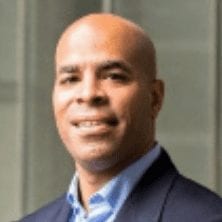
Jonathan Townsley is a global procurement practitioner and supply management enthusiast. He is a senior level leader and strategic business partner working in the areas of Supply Management, Procurement, Sourcing, and Process Improvement with 15+ years of successful experience in diverse industries that do business locally and across the globe. Jonathan enjoys engaging with people to help them embrace change as they take innovative steps to create and drive value for their organizations. He’s held a variety of roles in industry, including Director/Global Sourcing at Ingersoll Rand and Head of Global Supply Management at Hager Companies.
